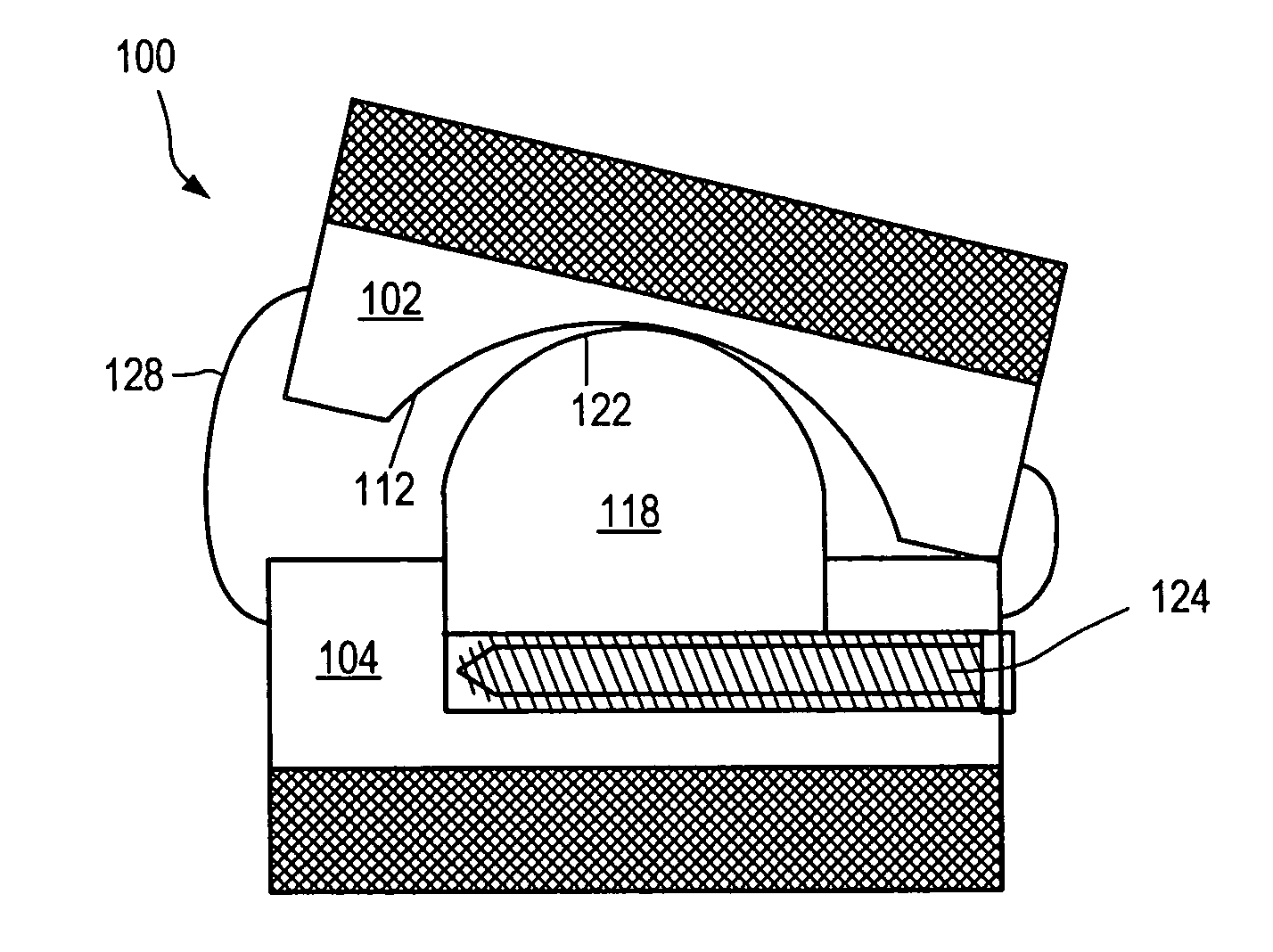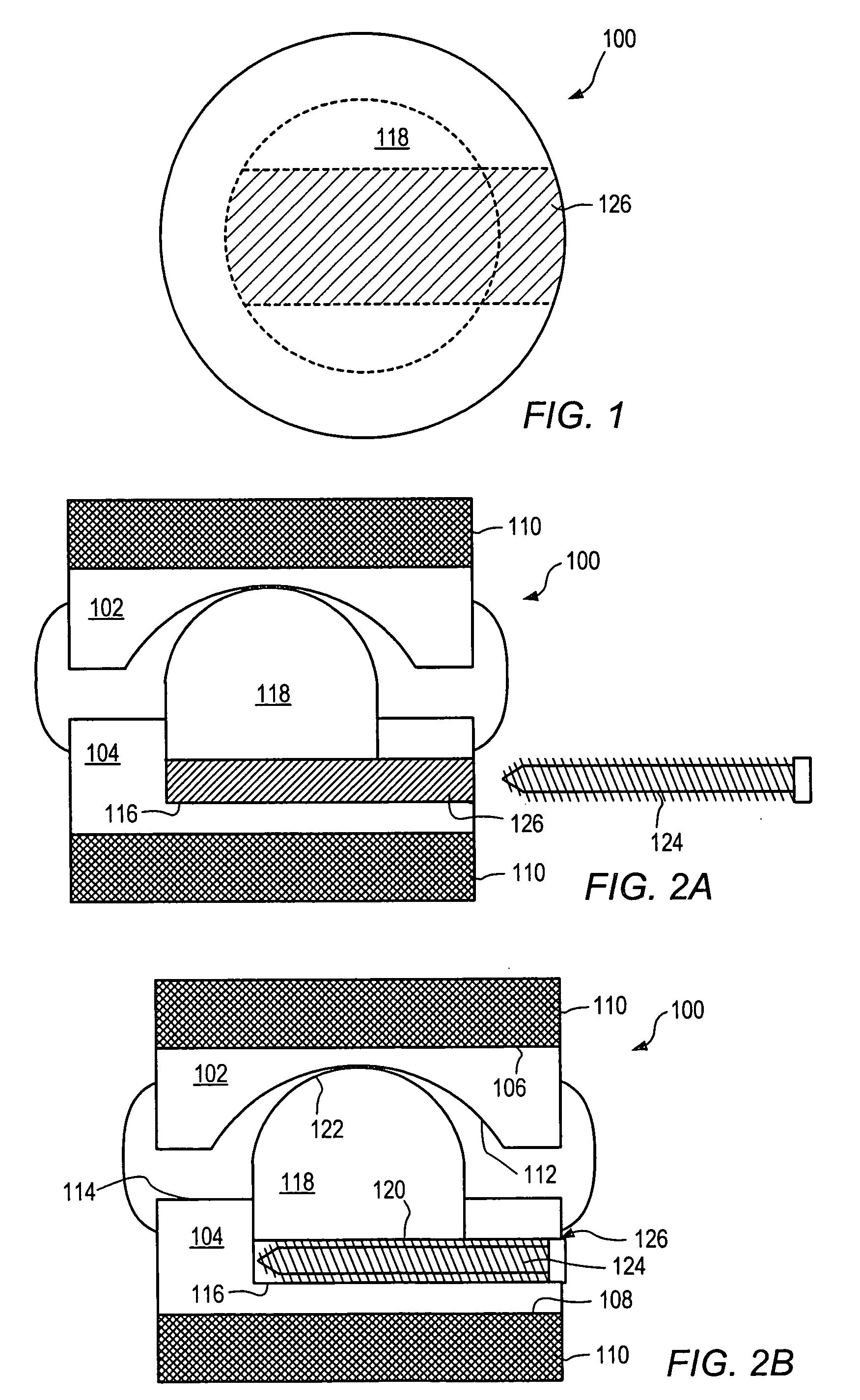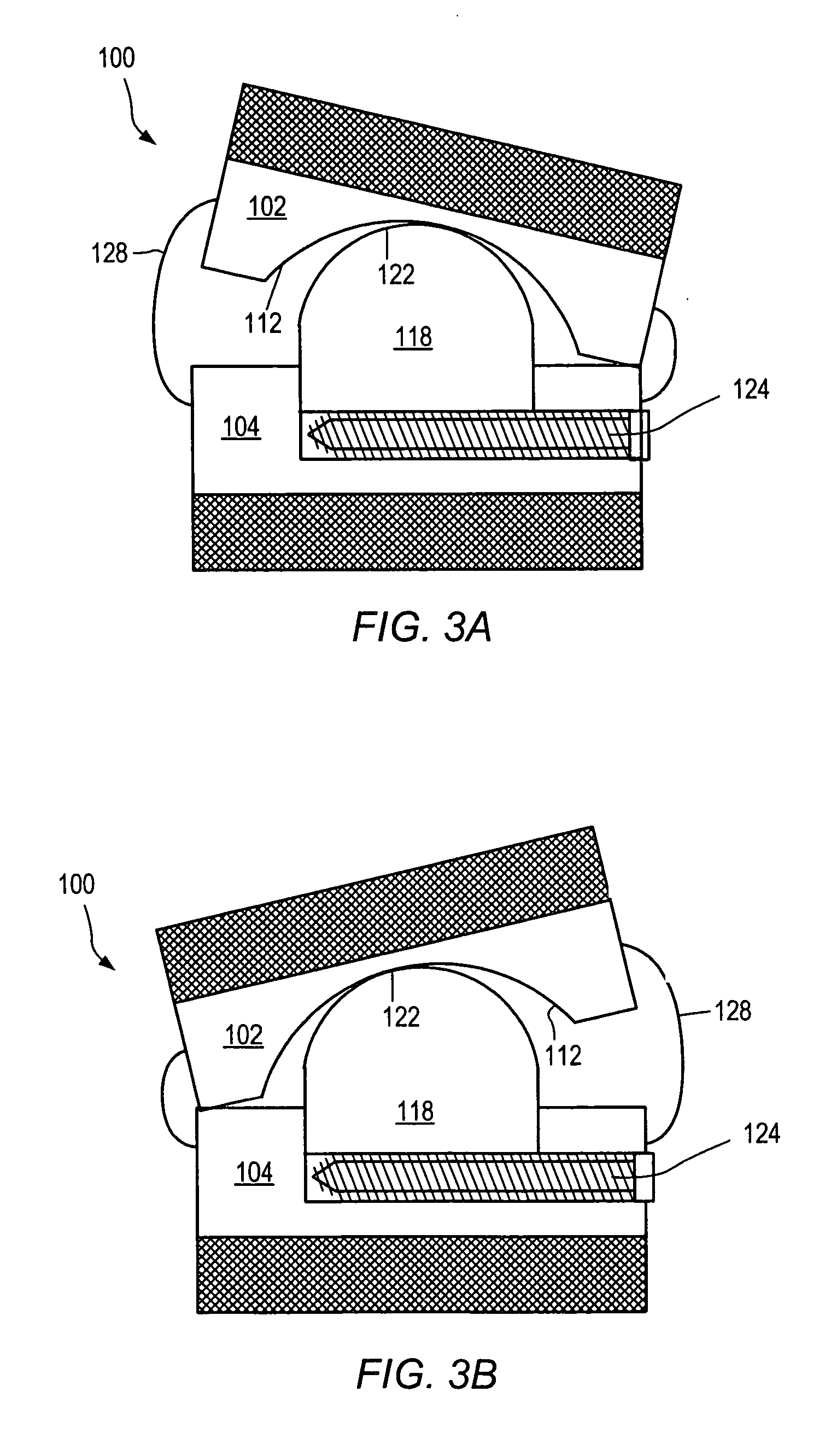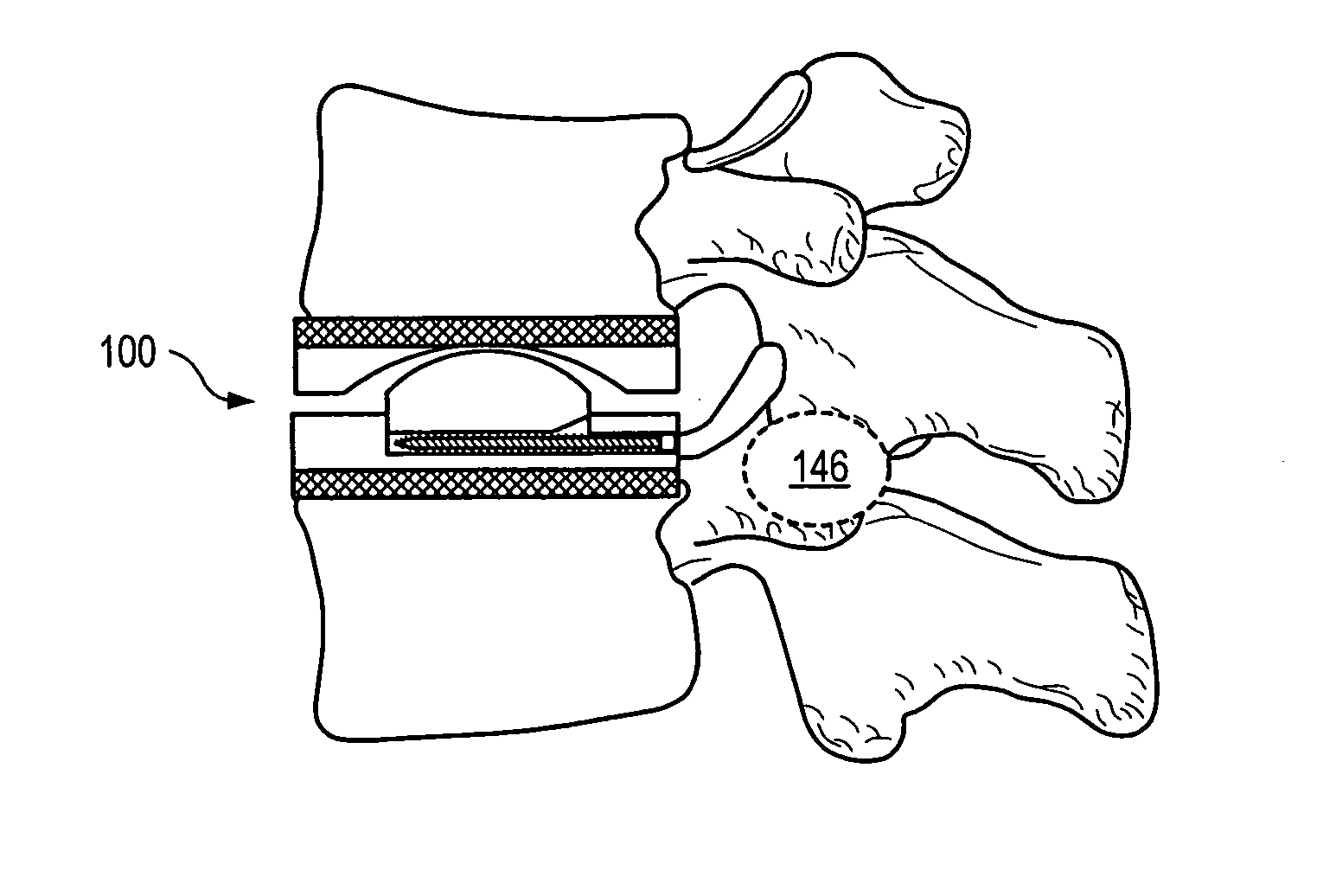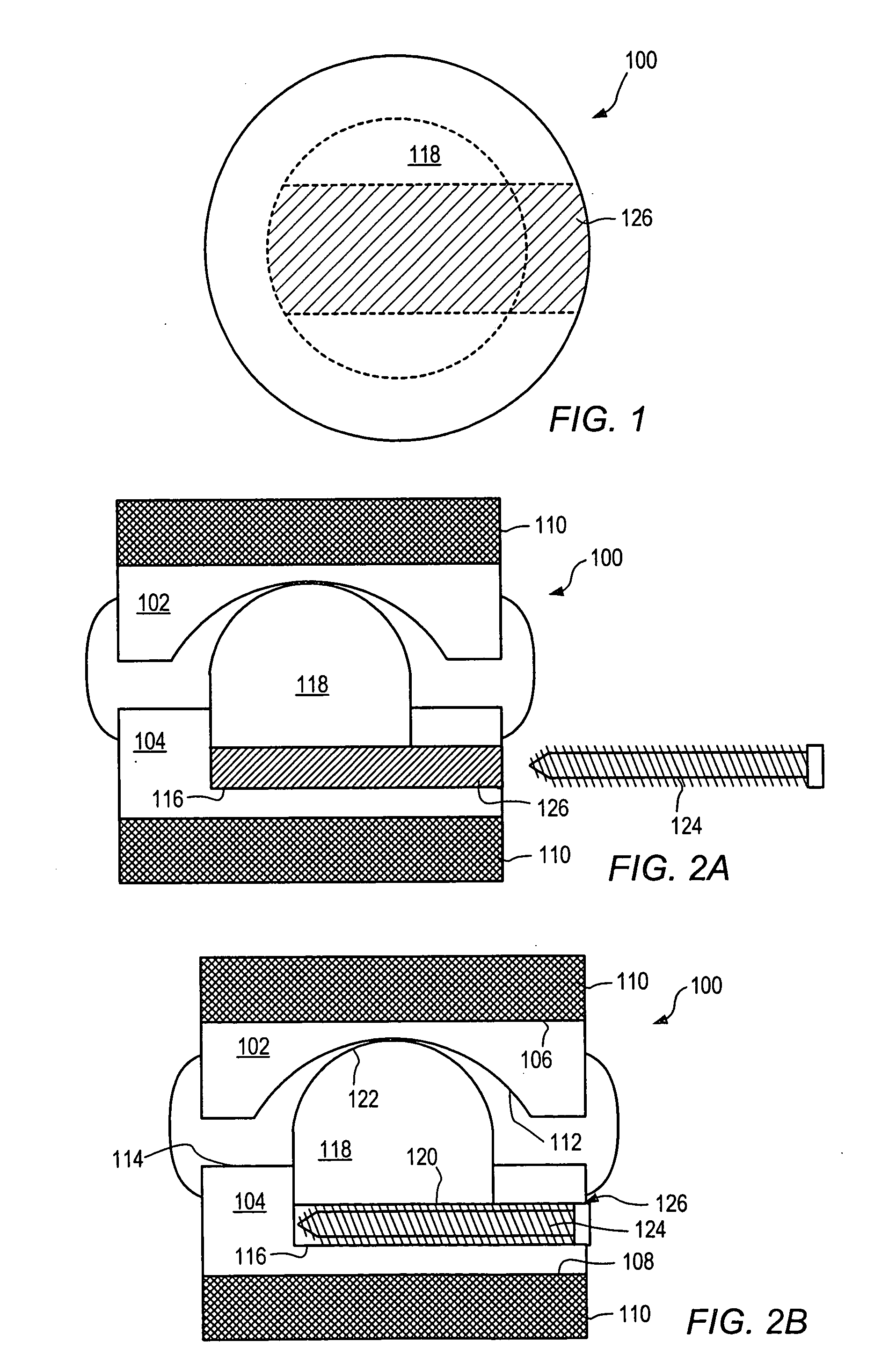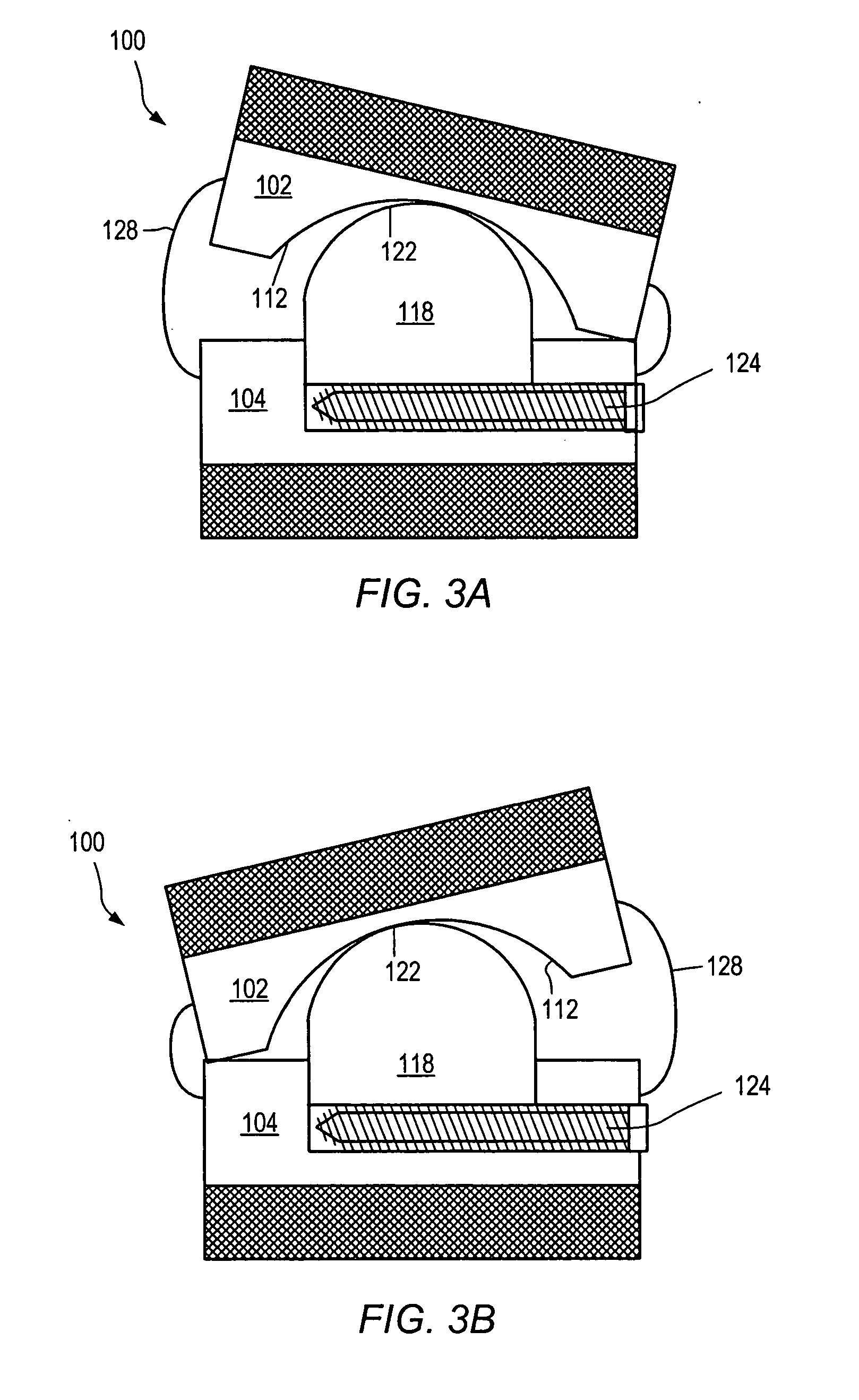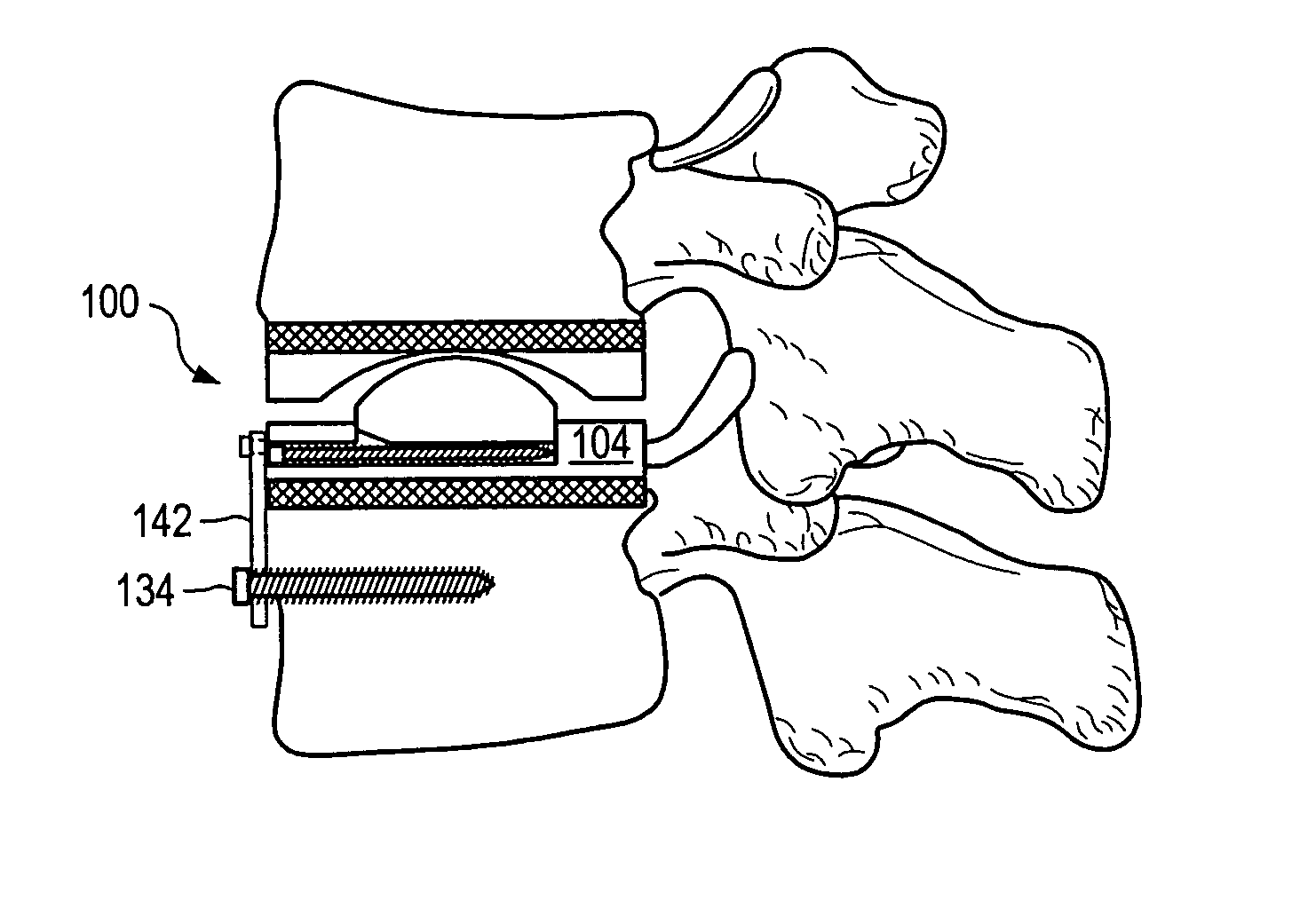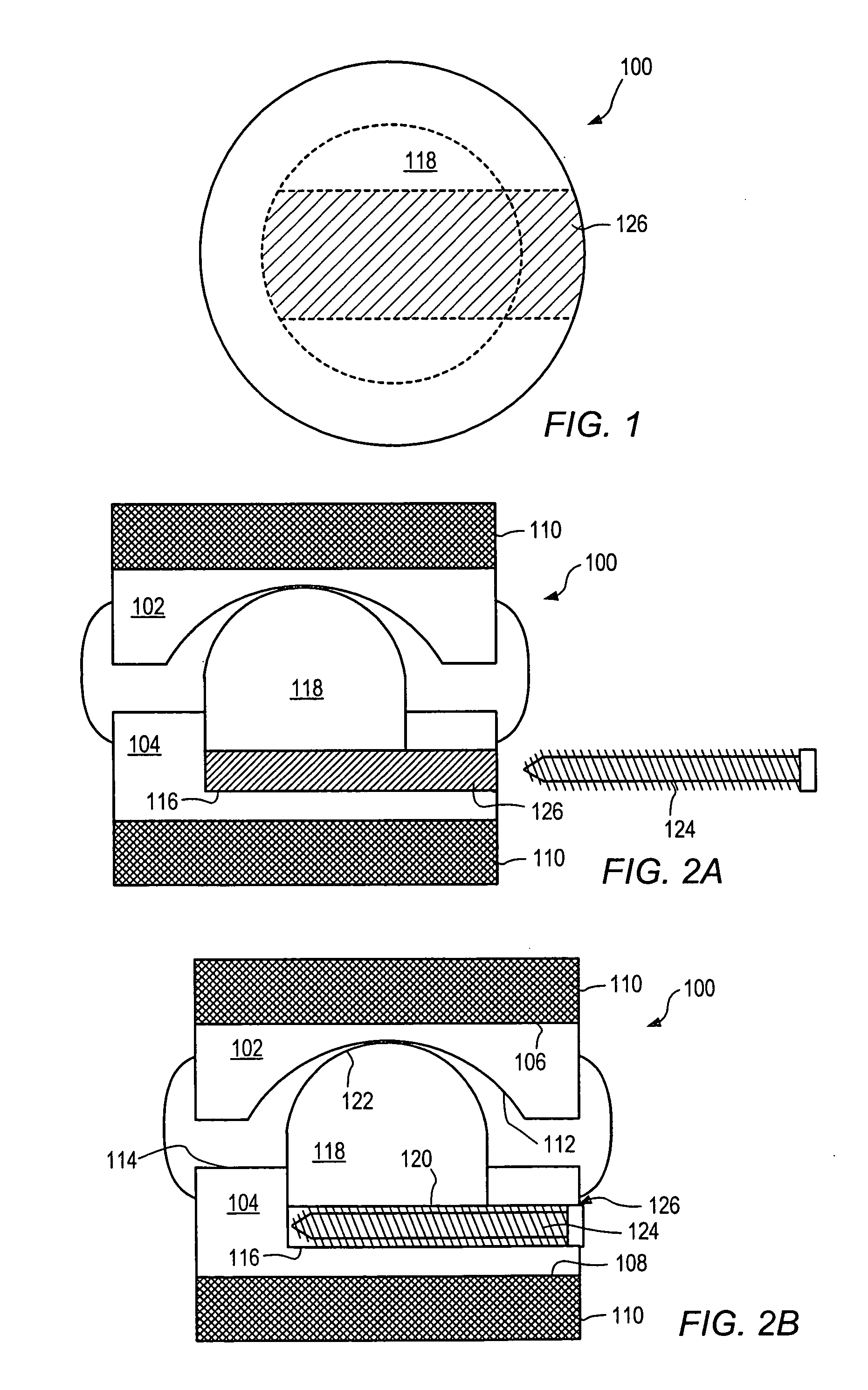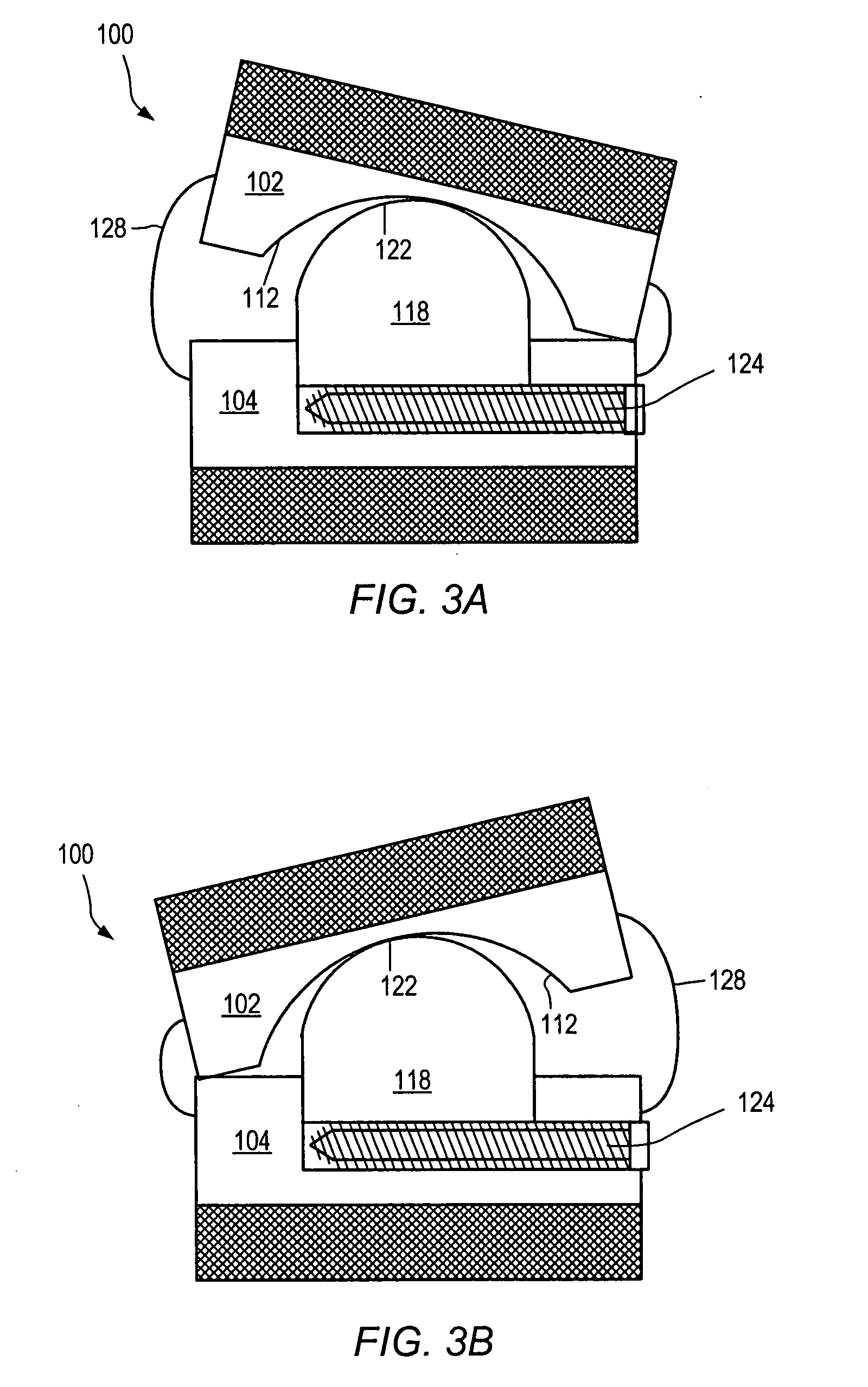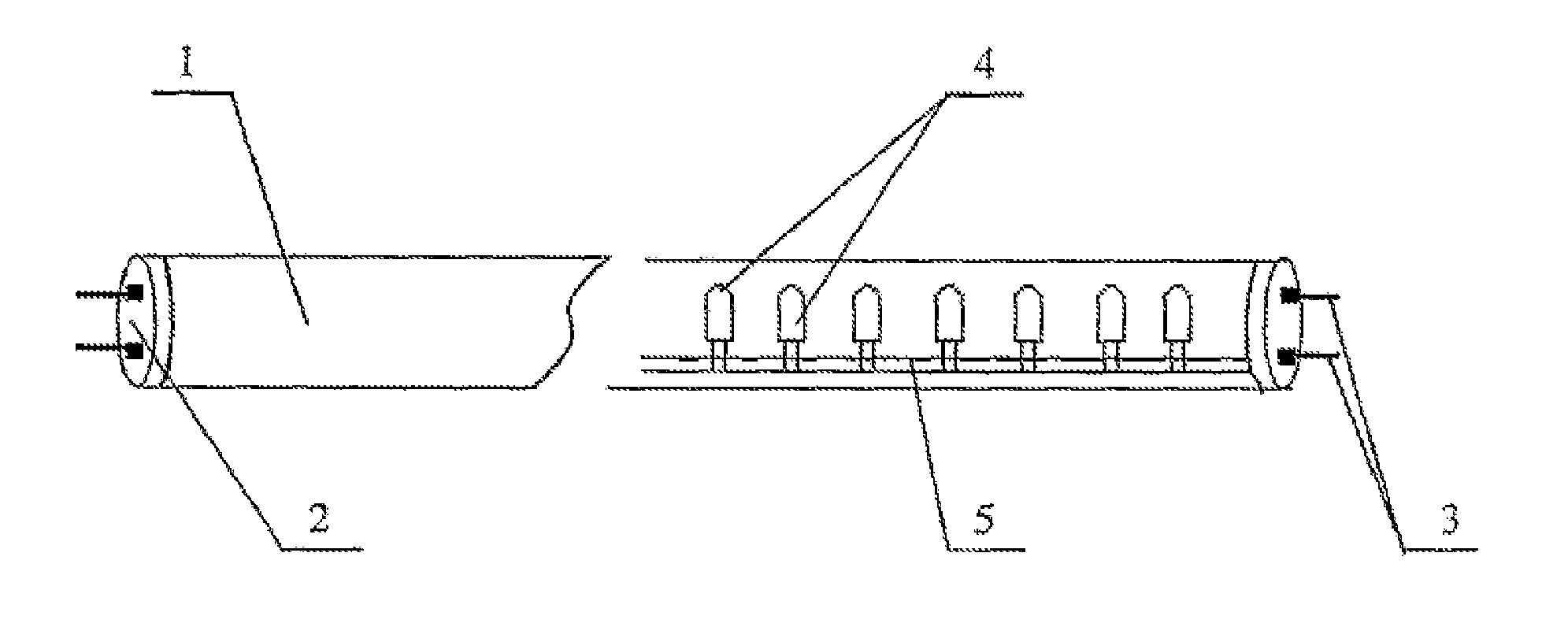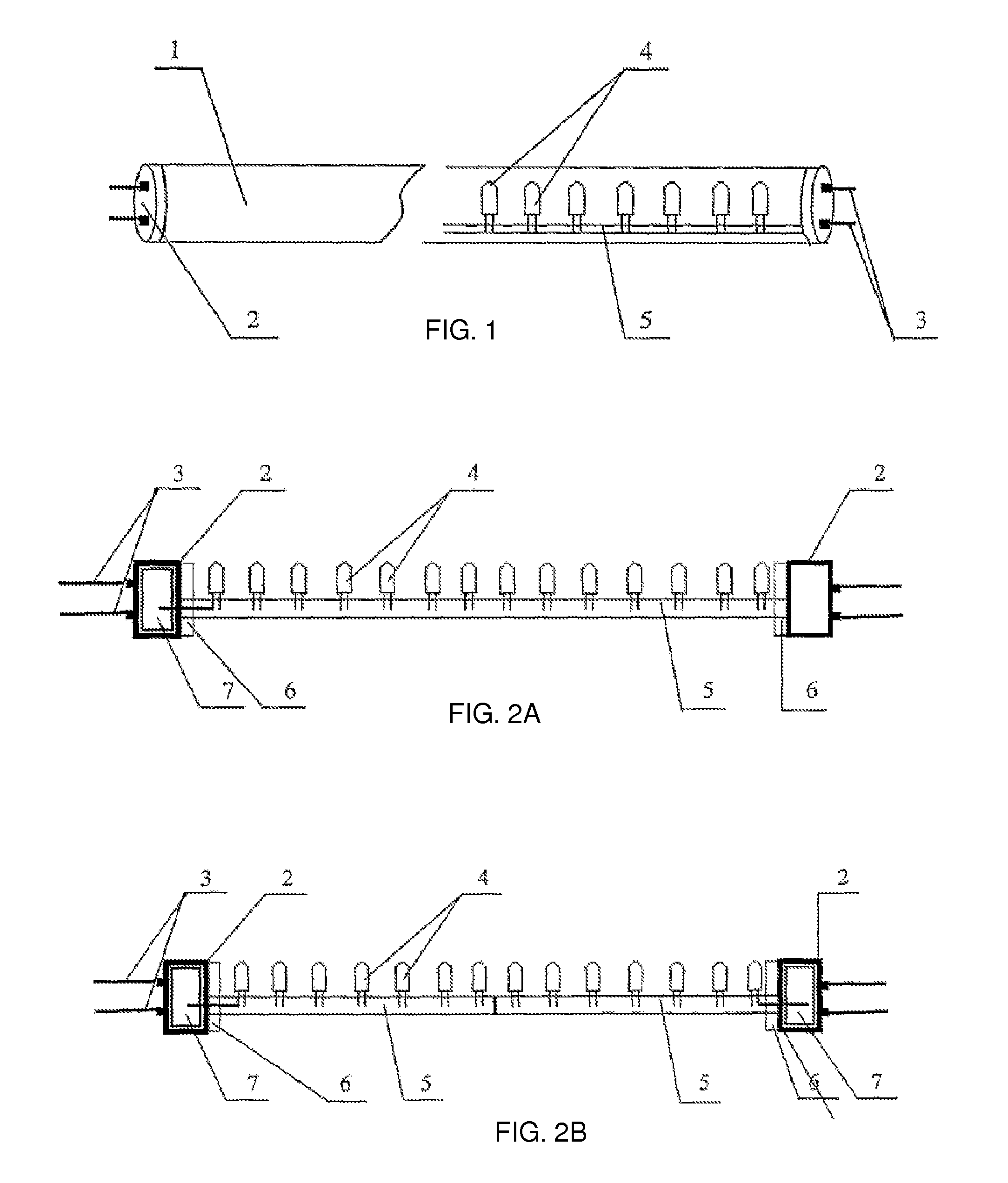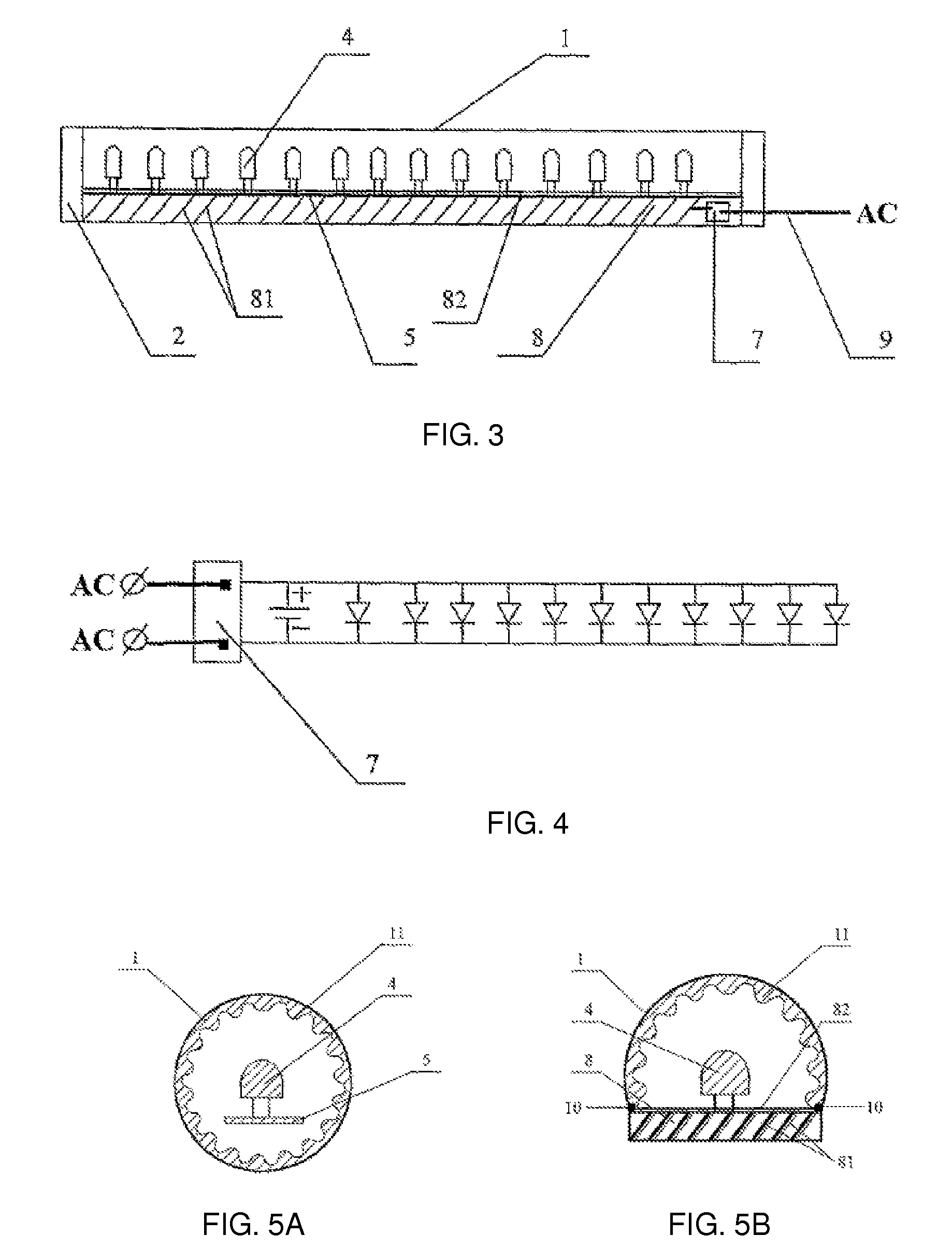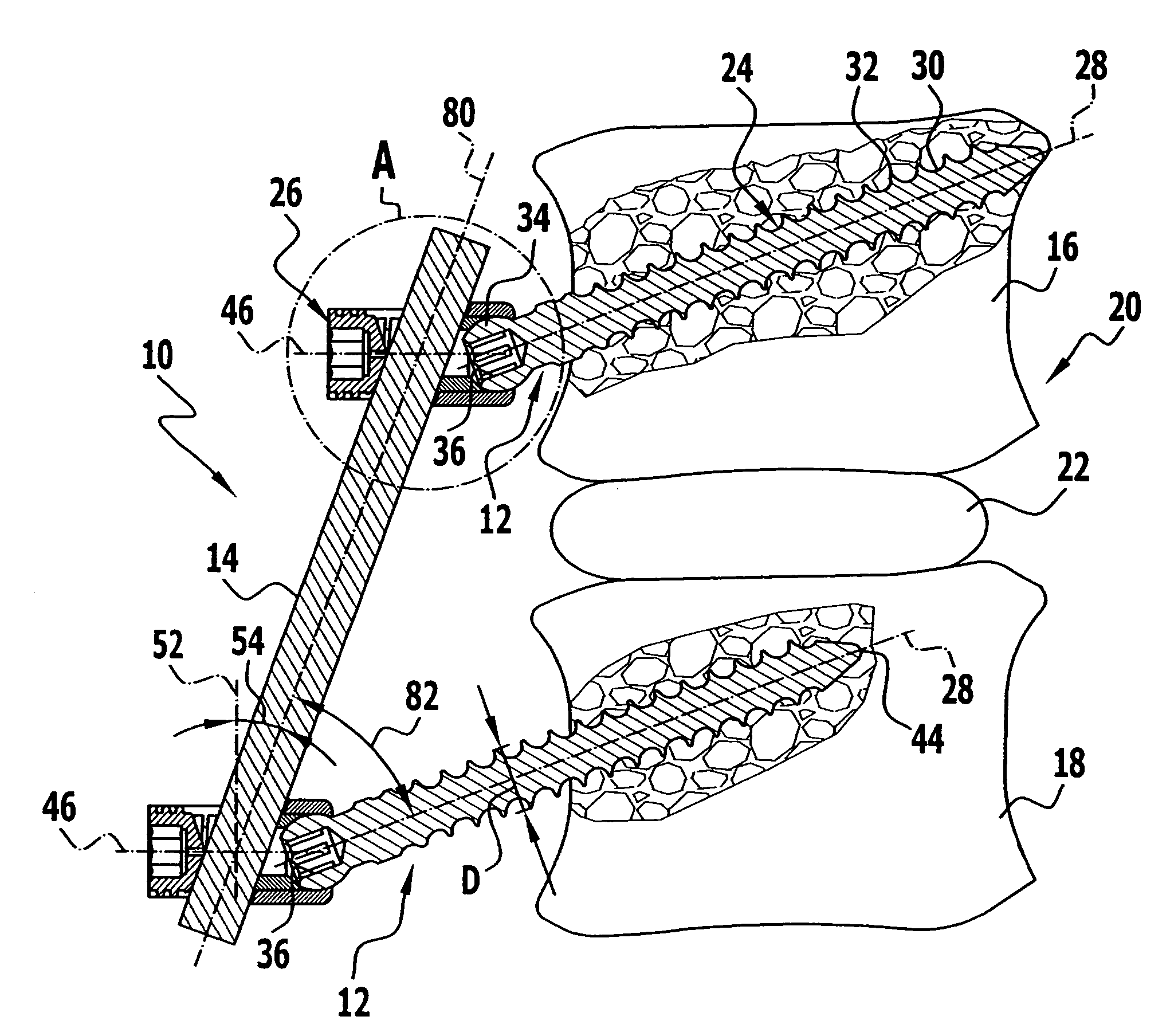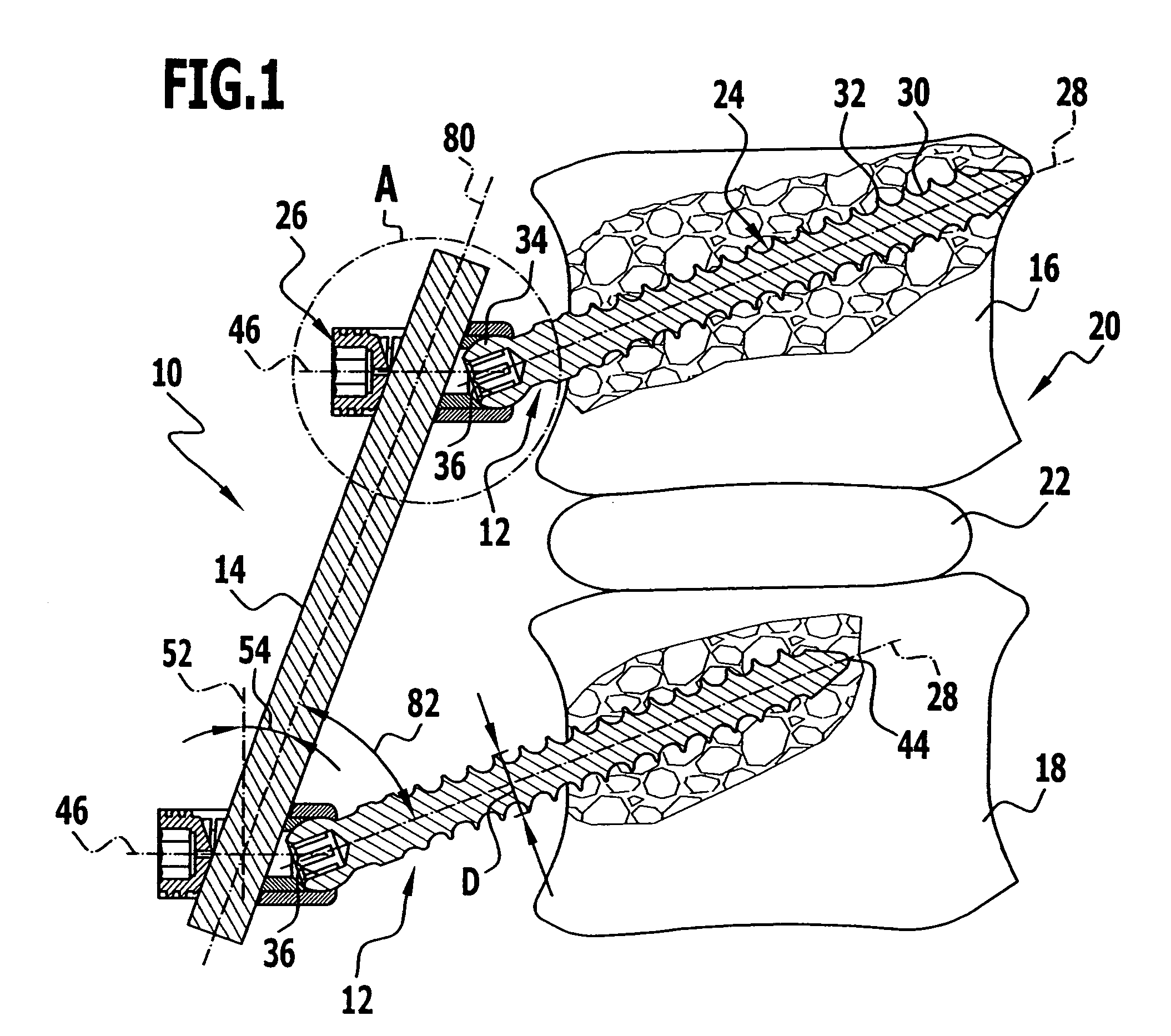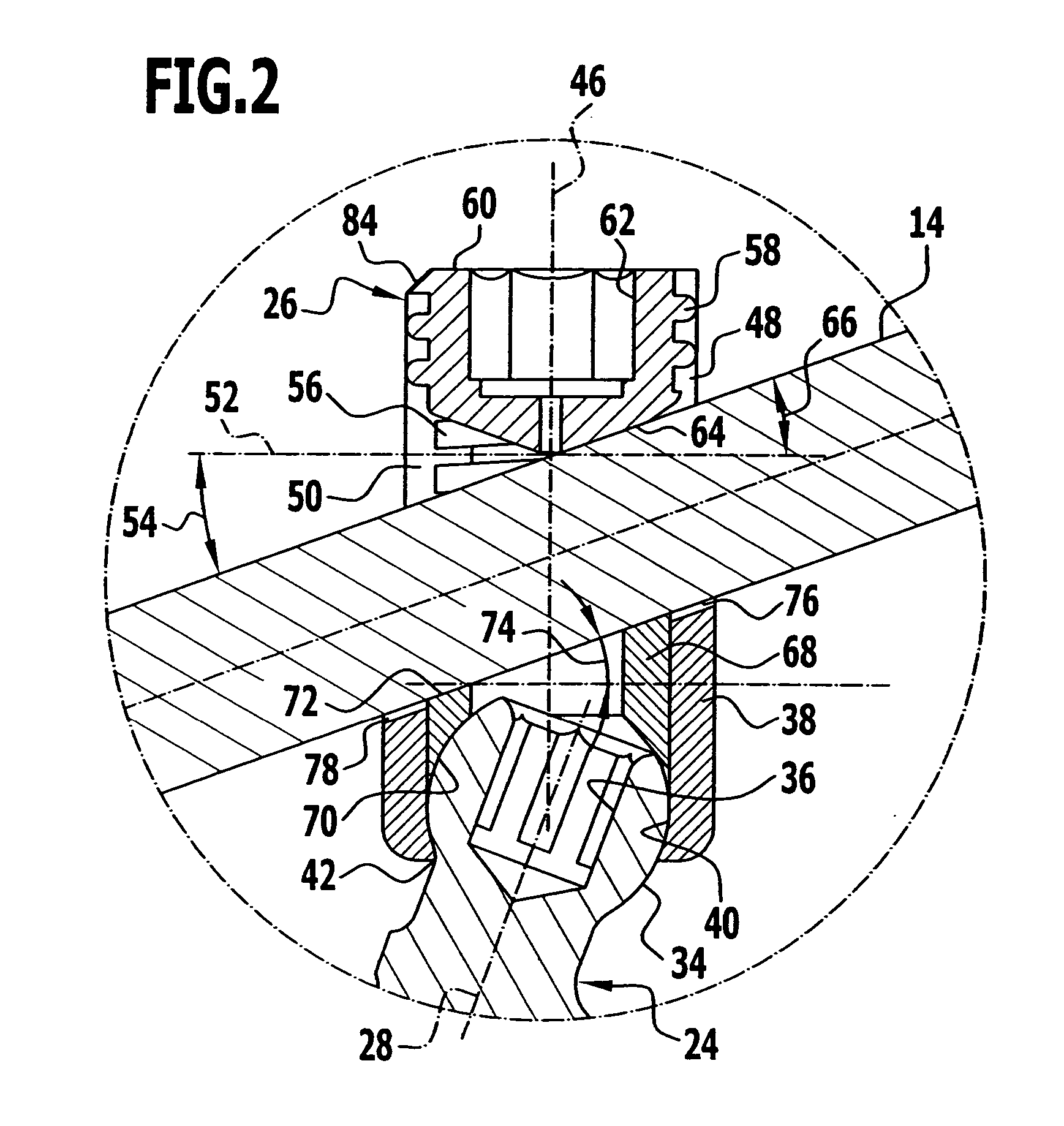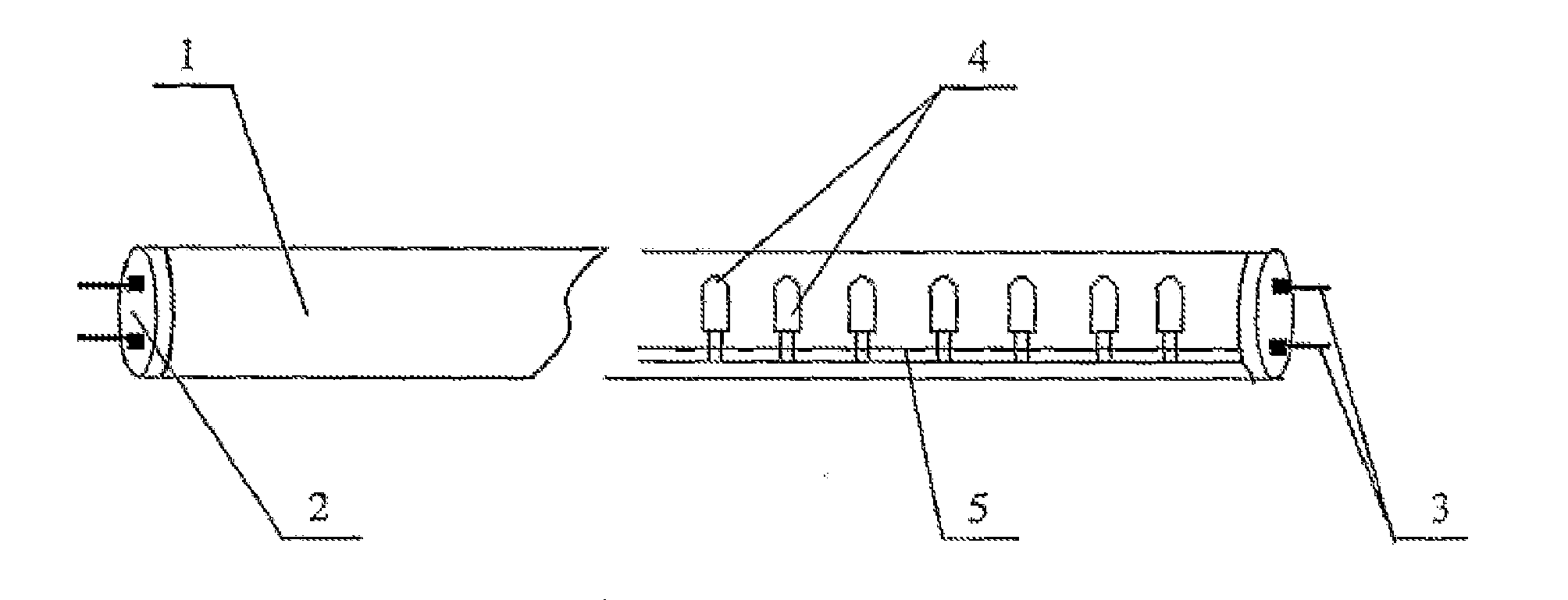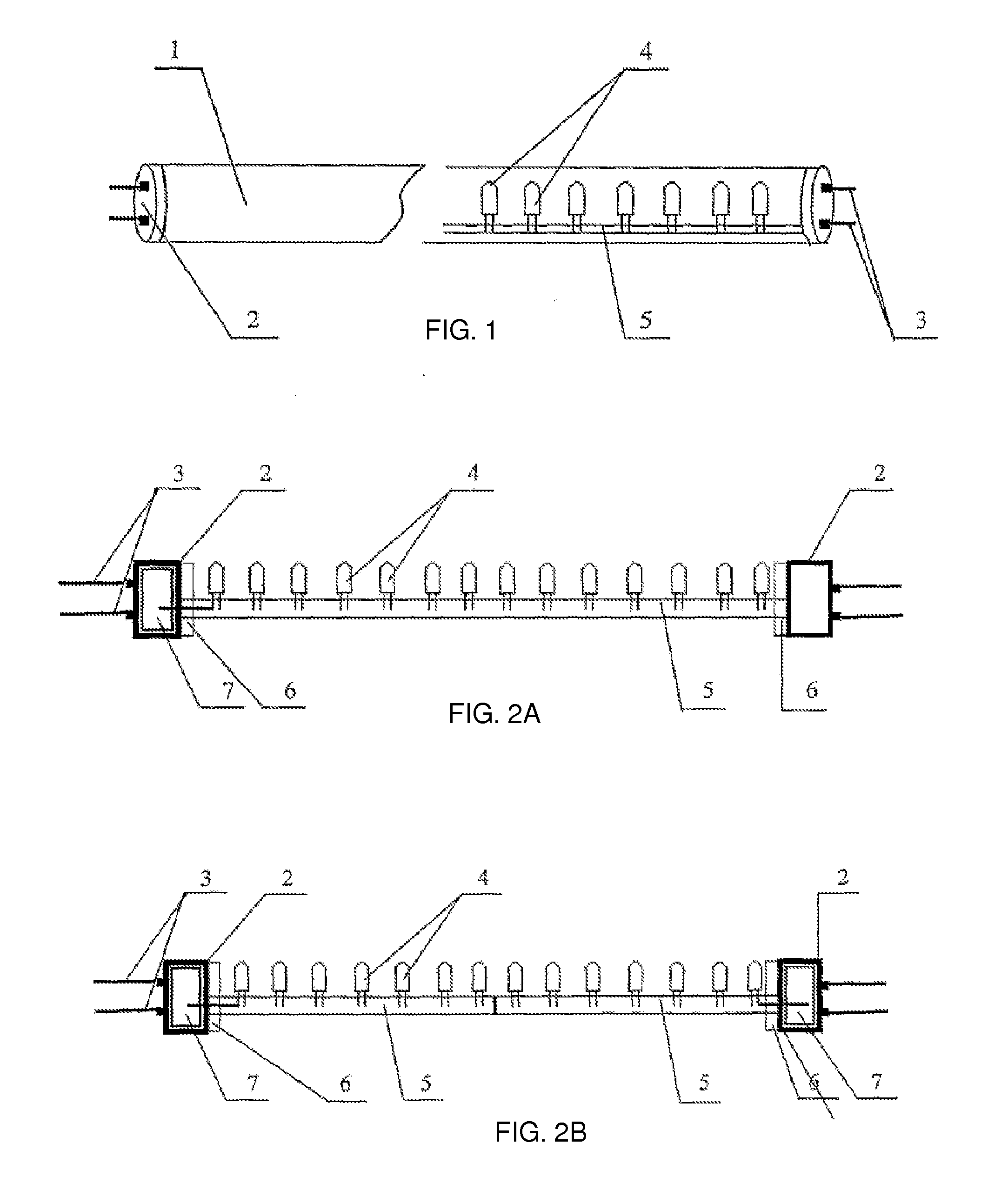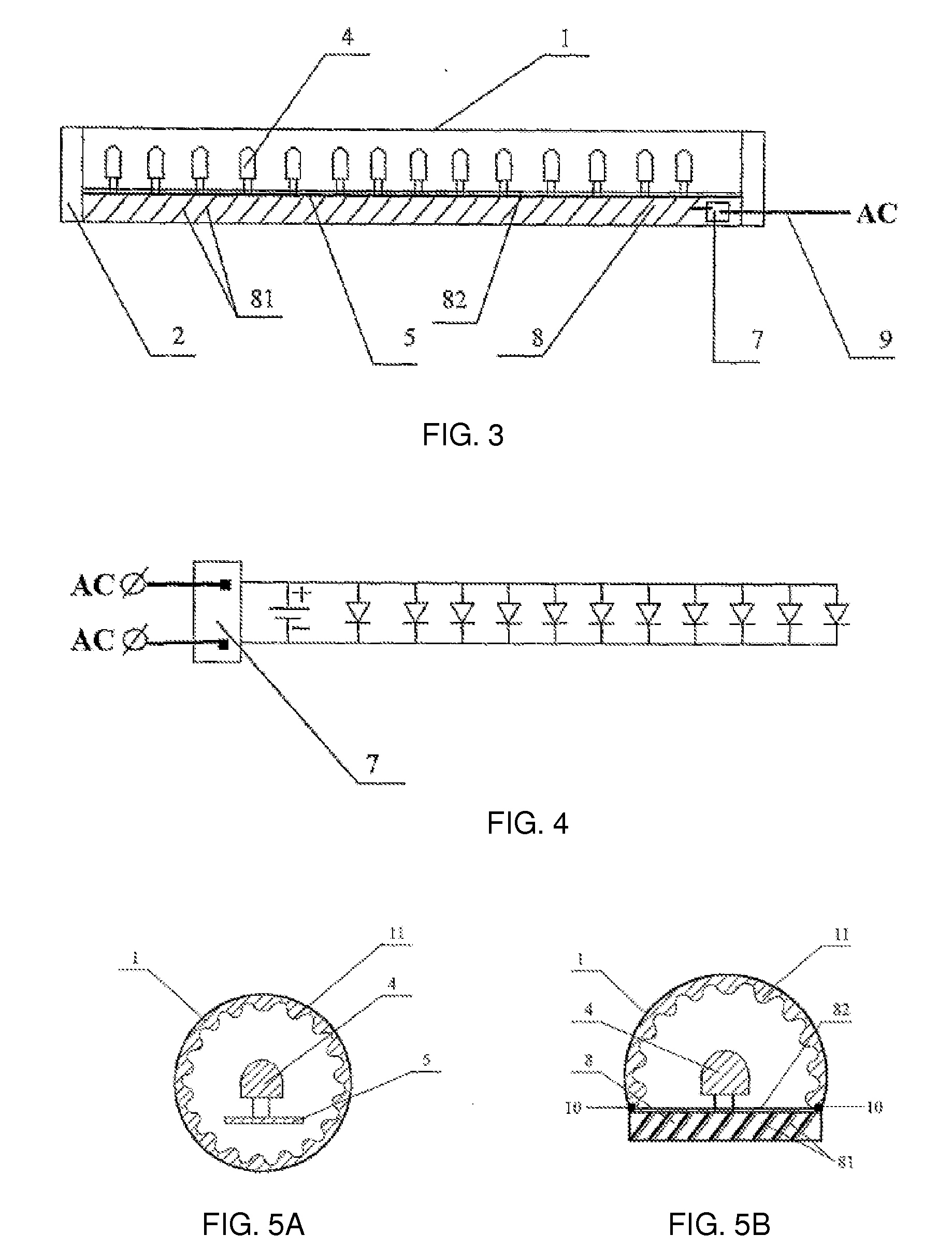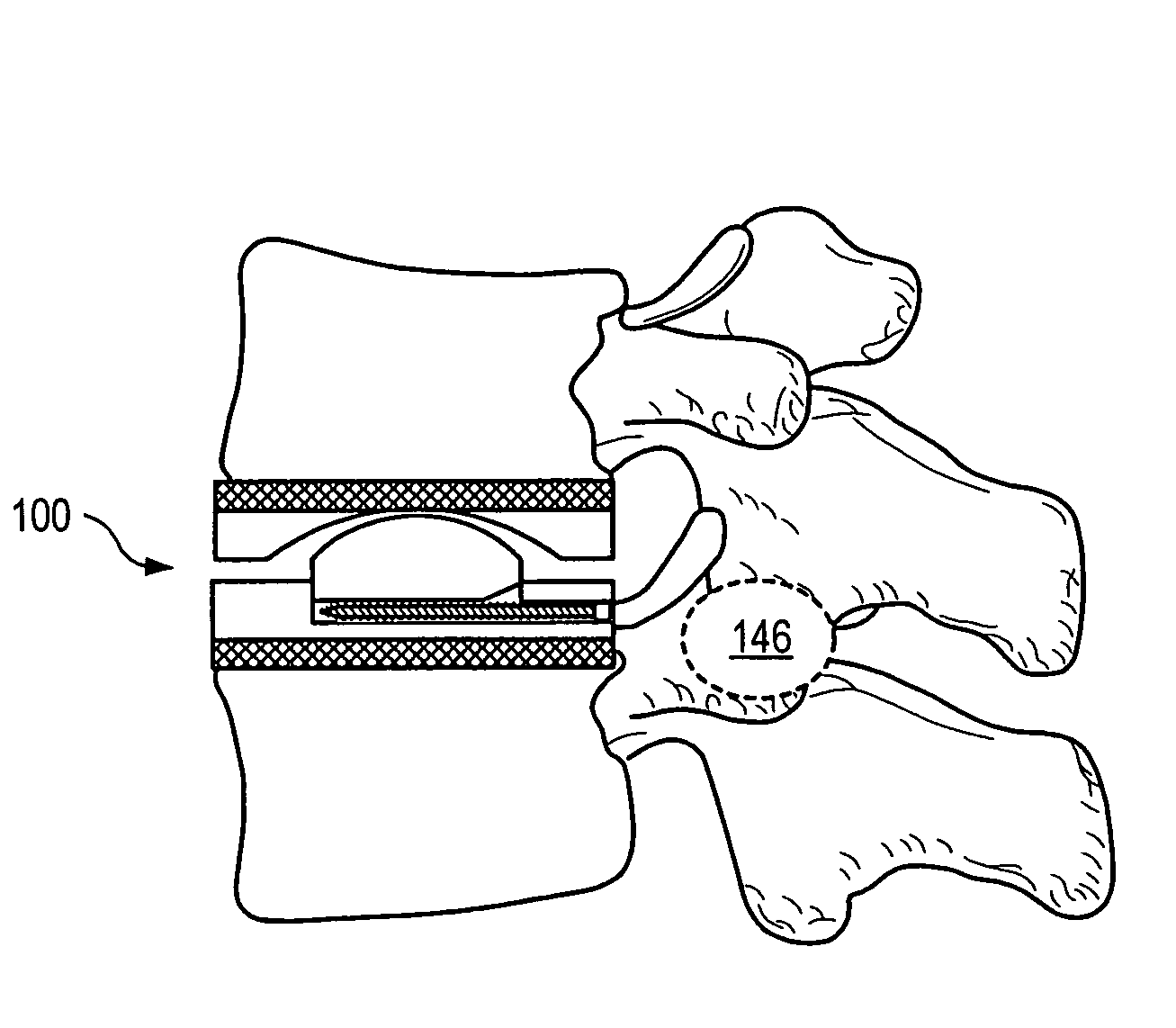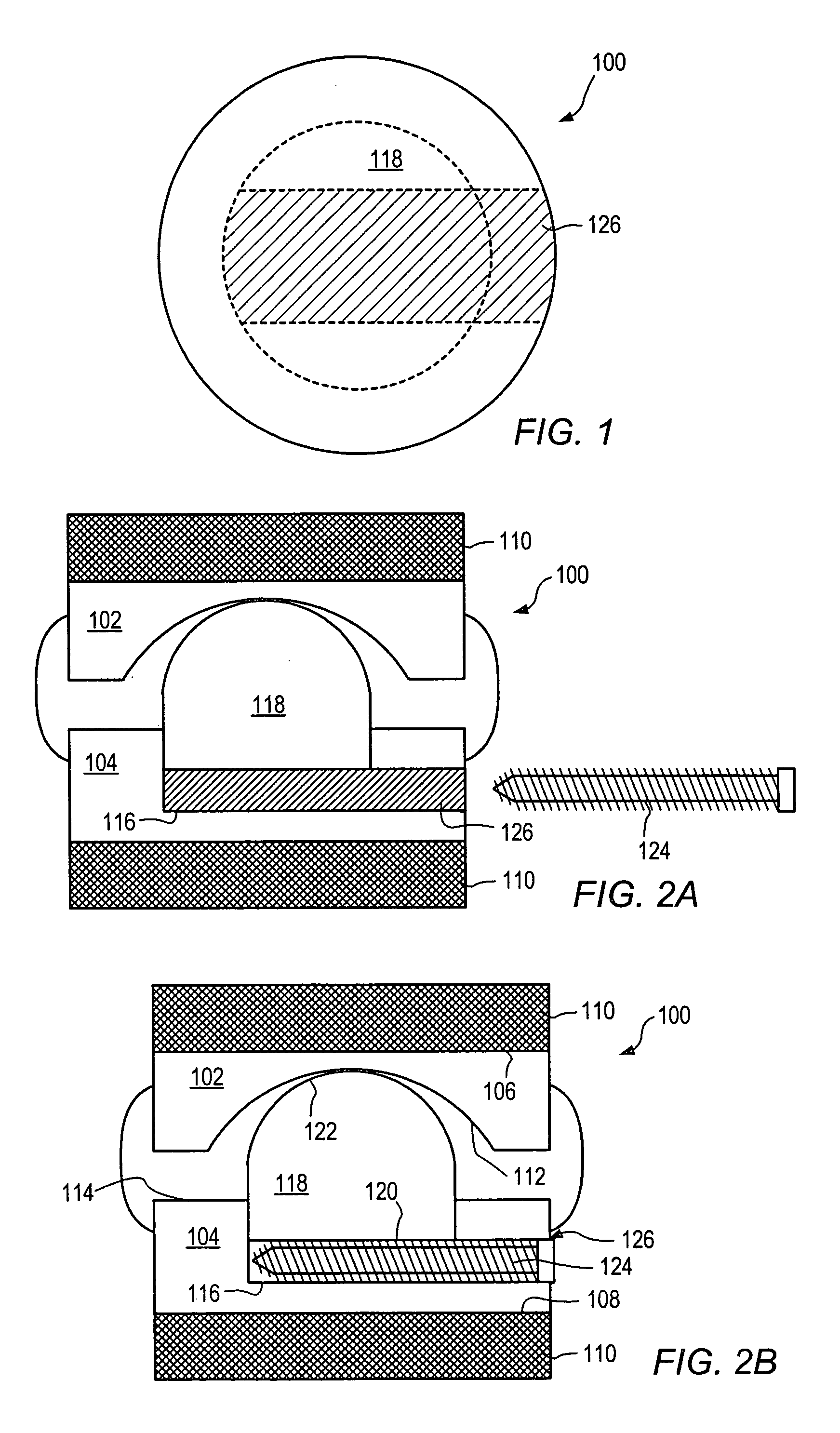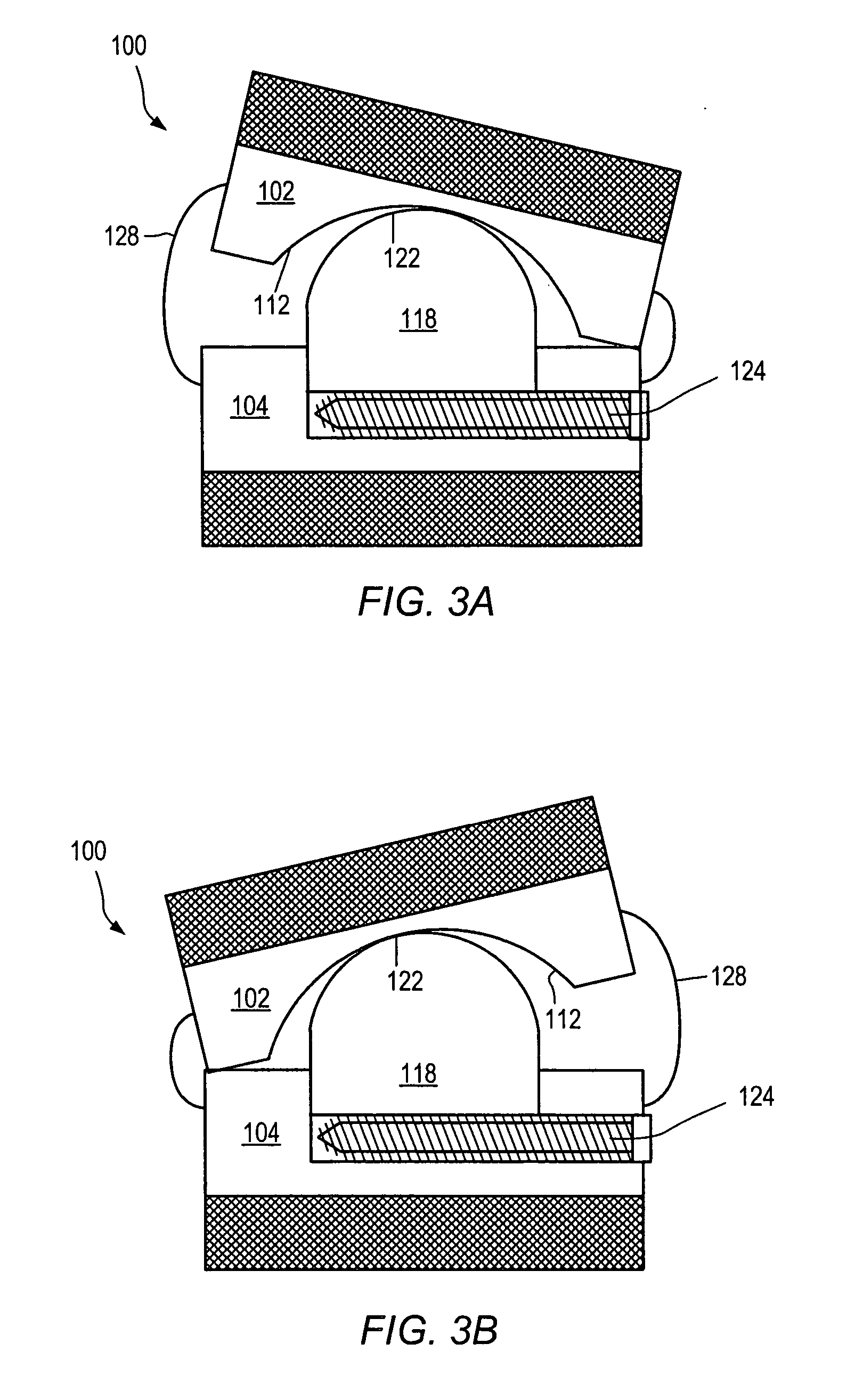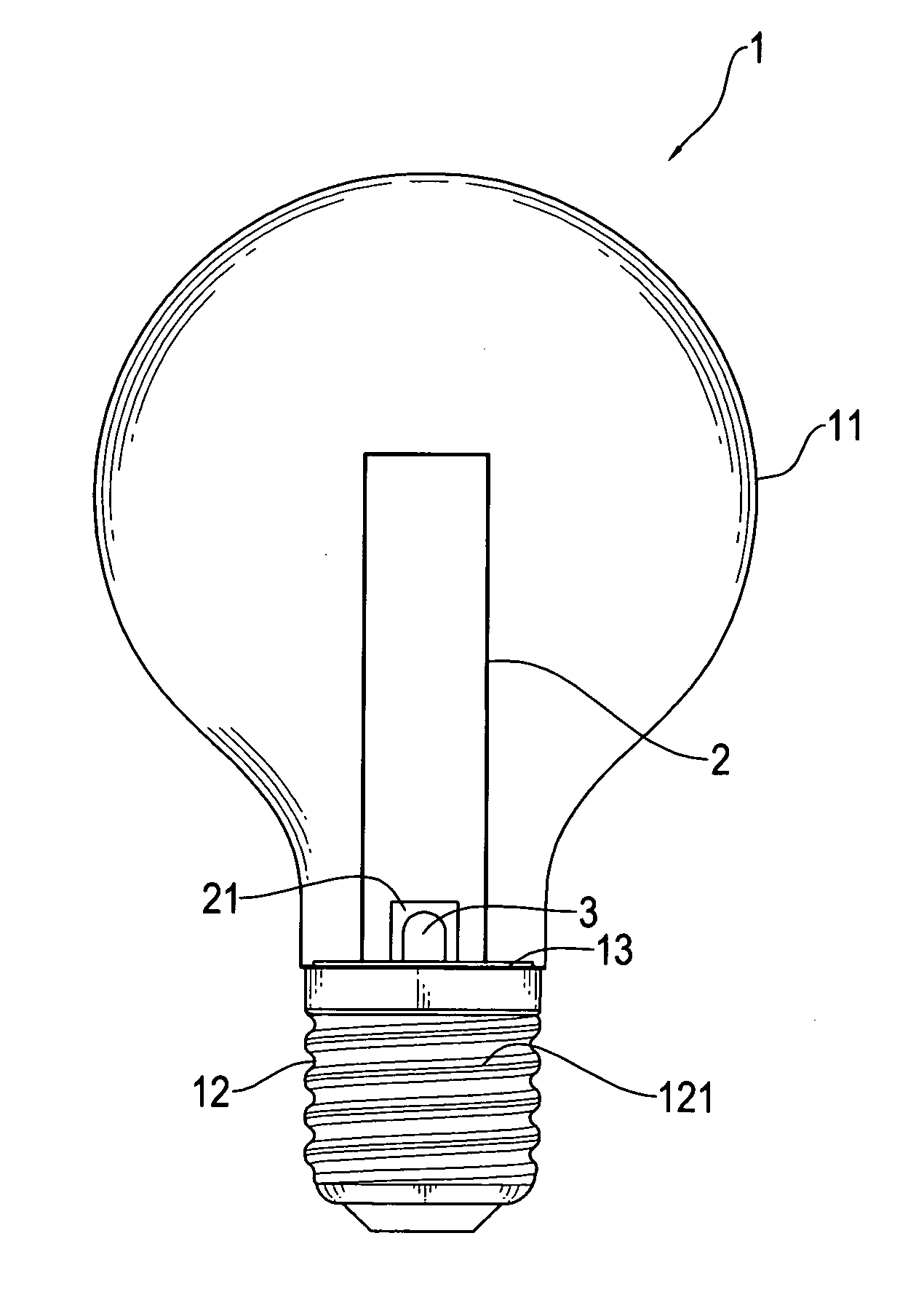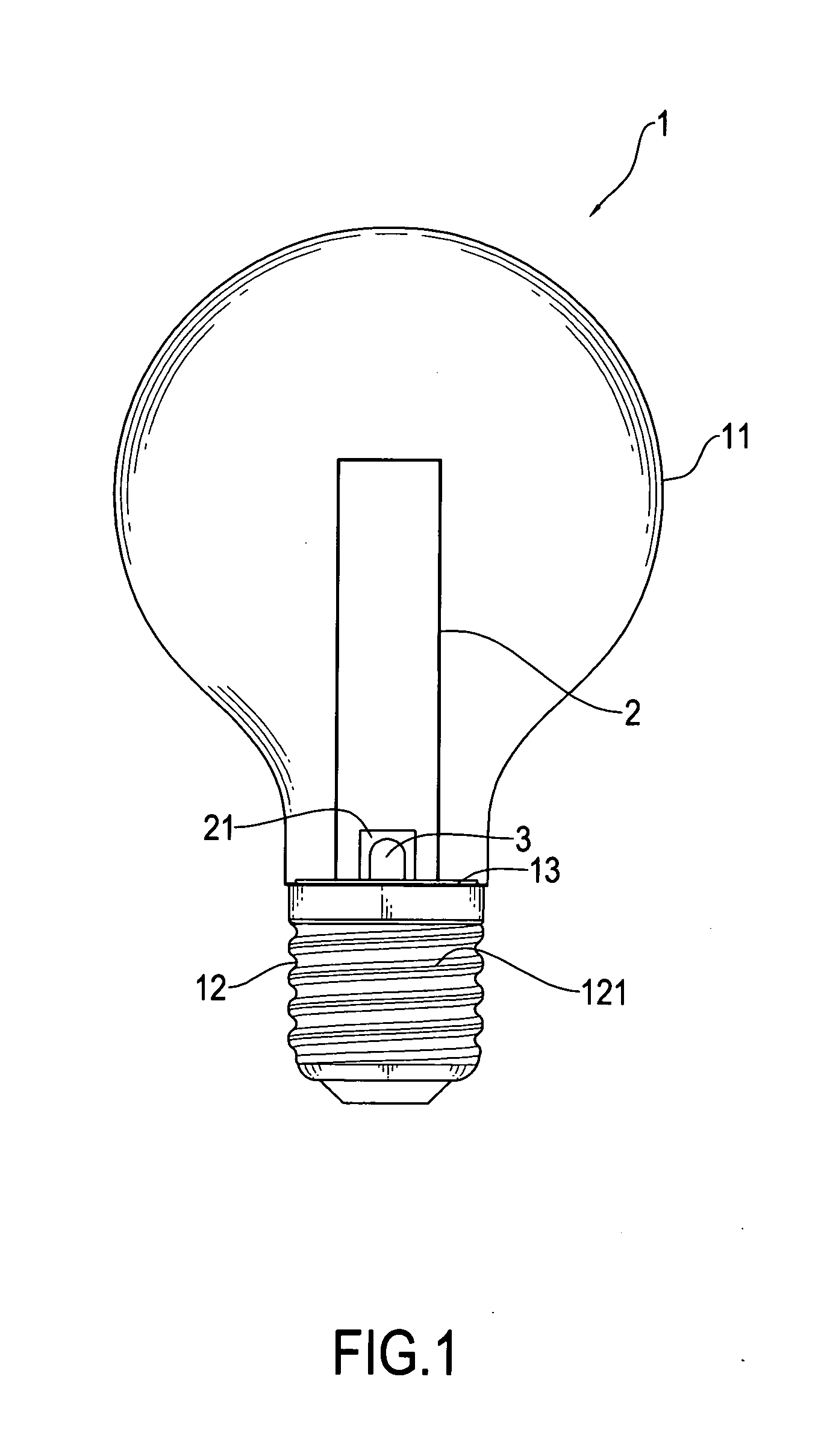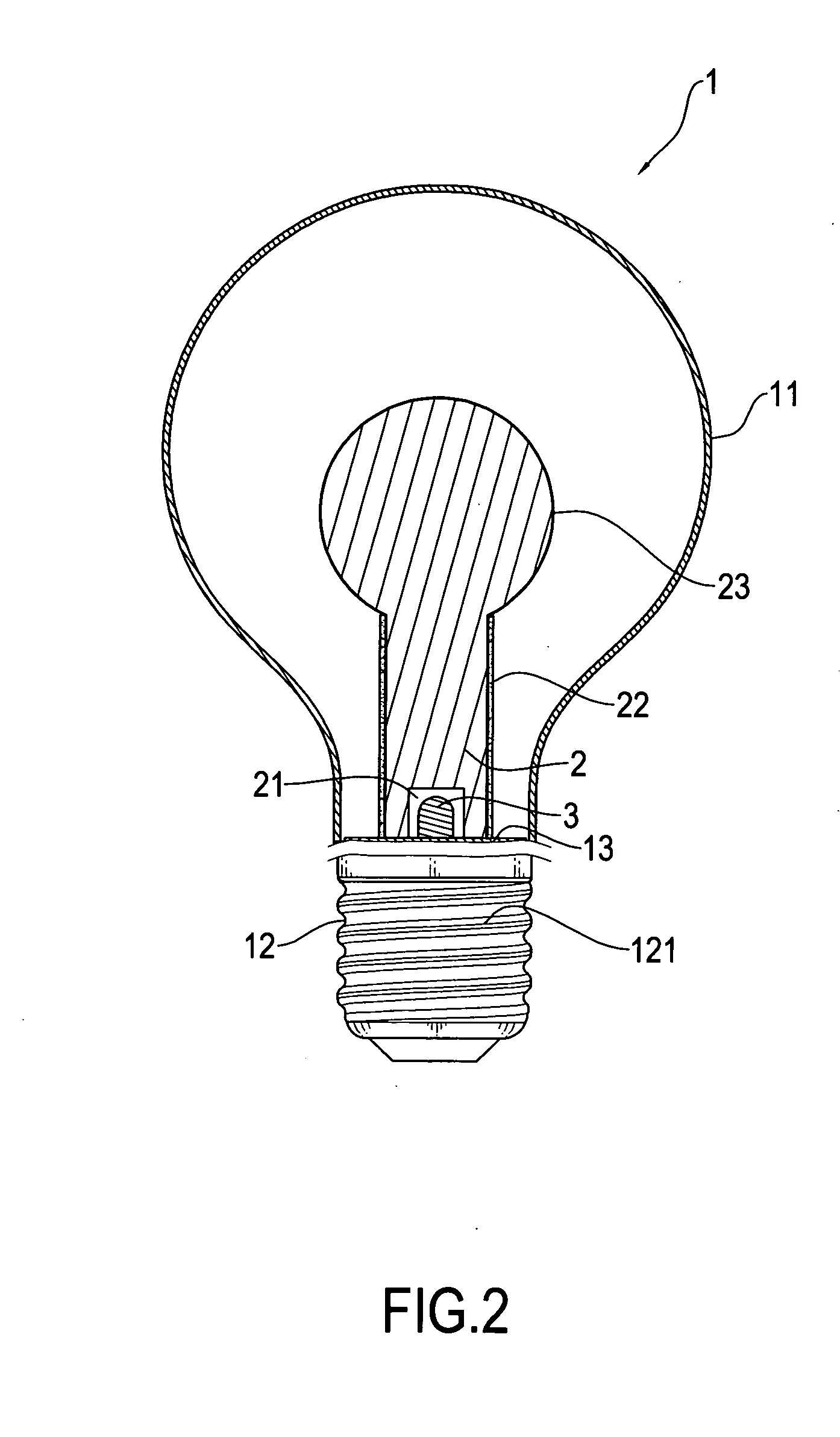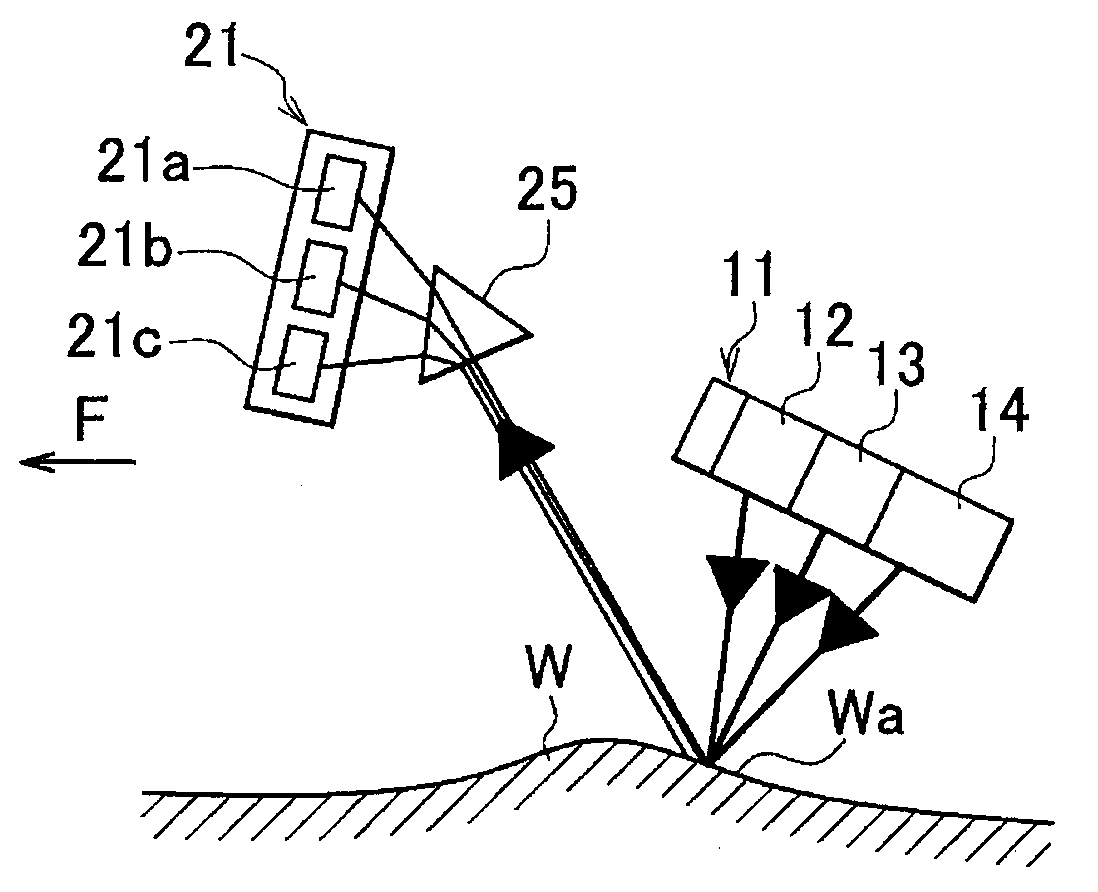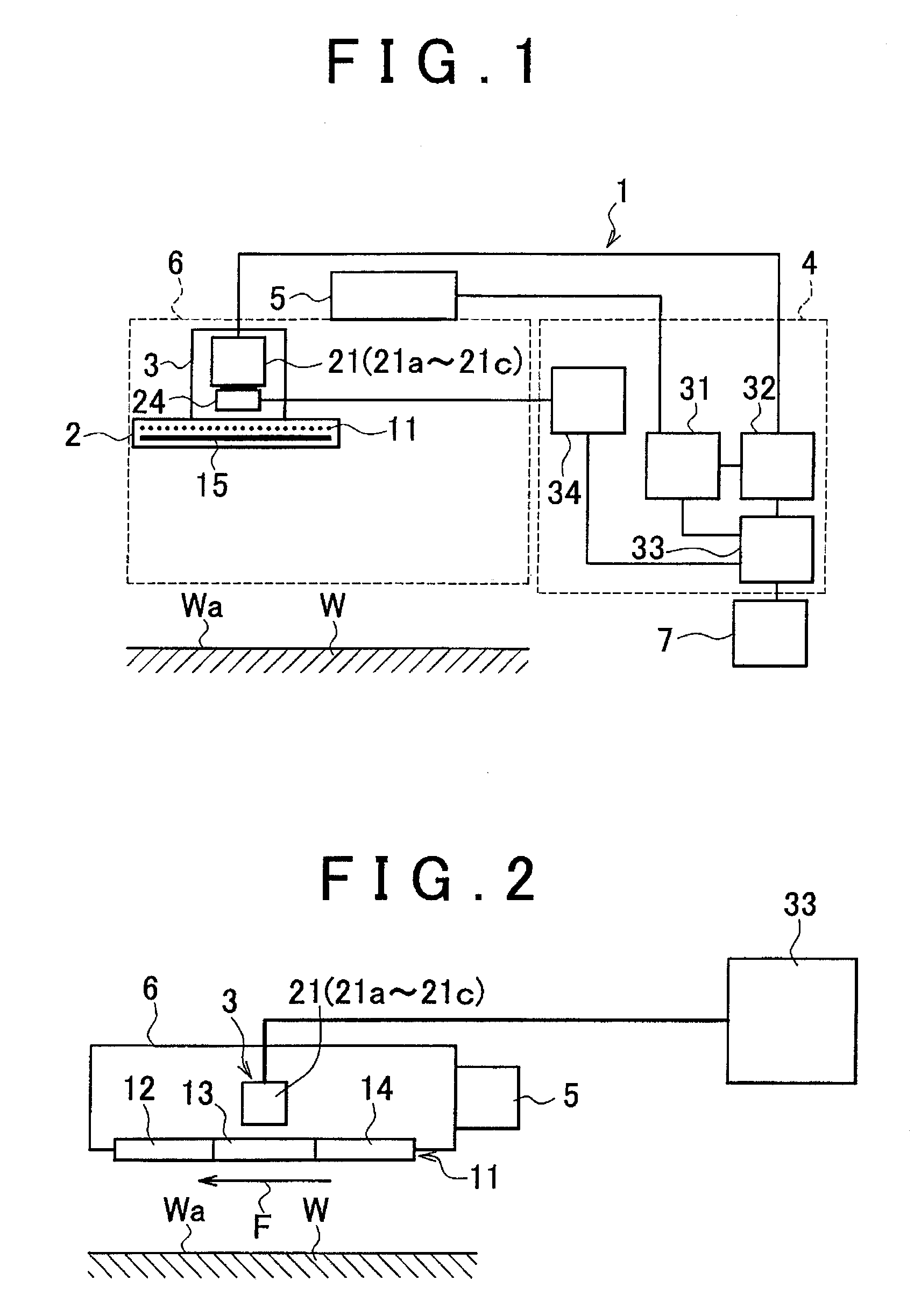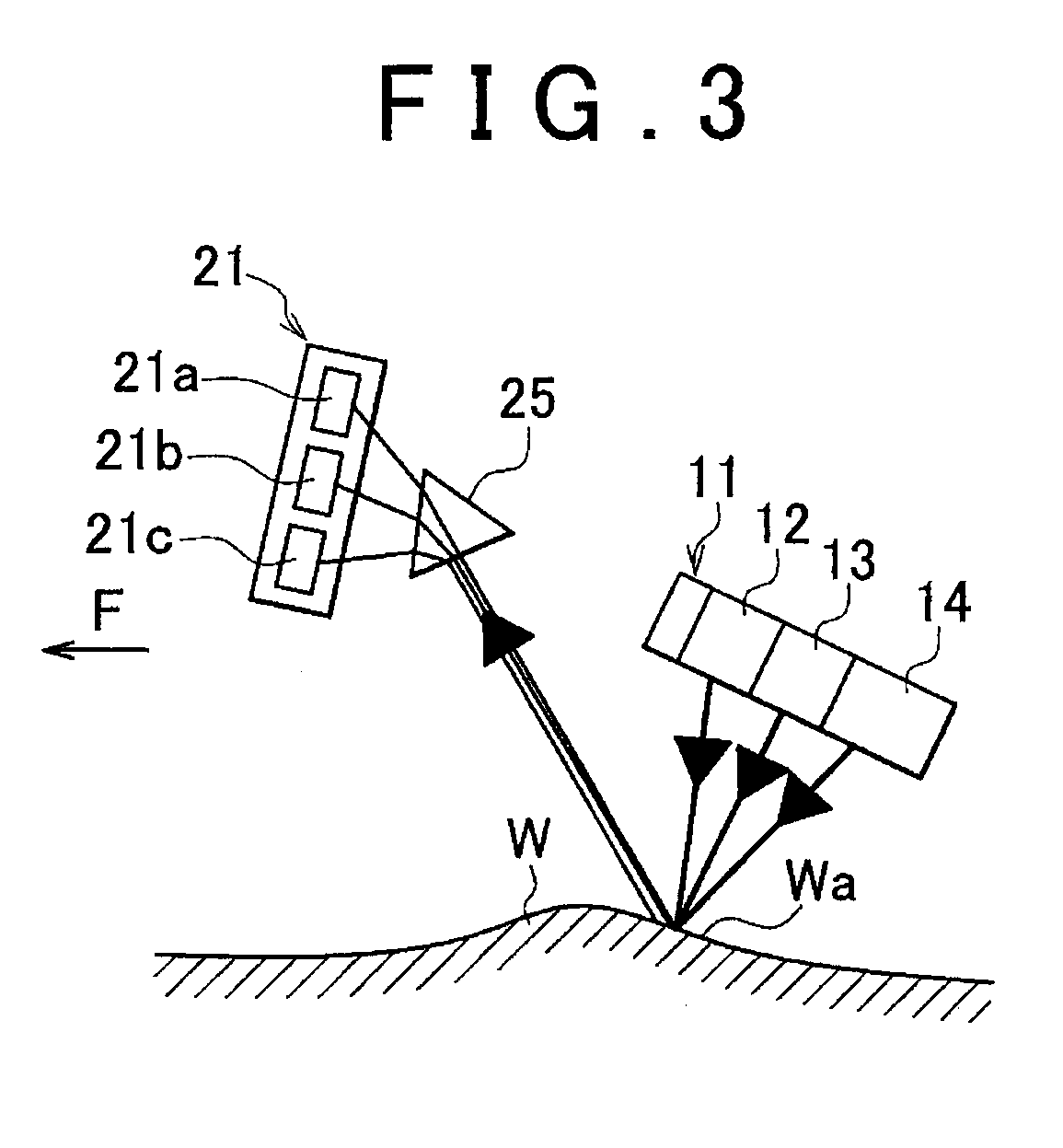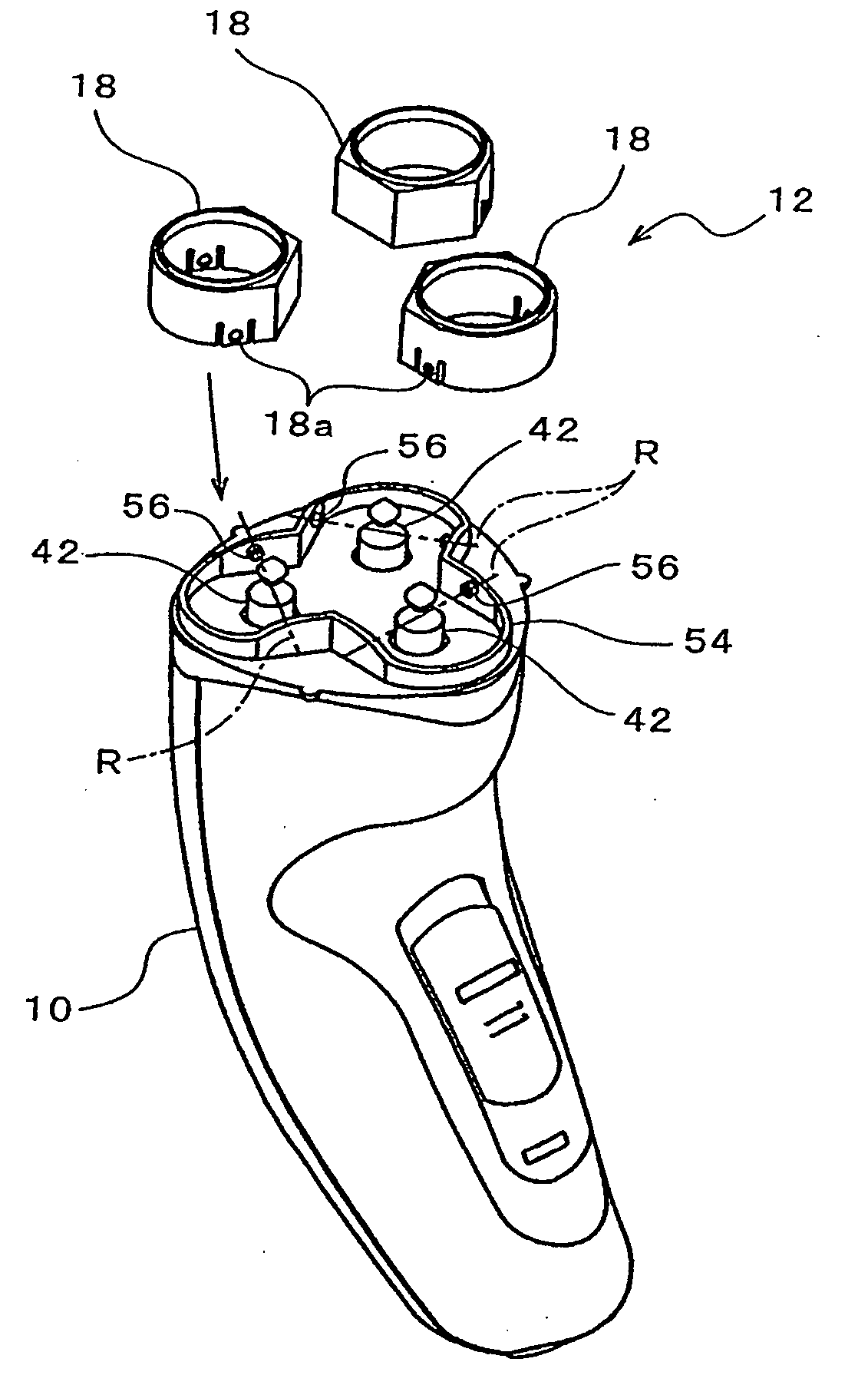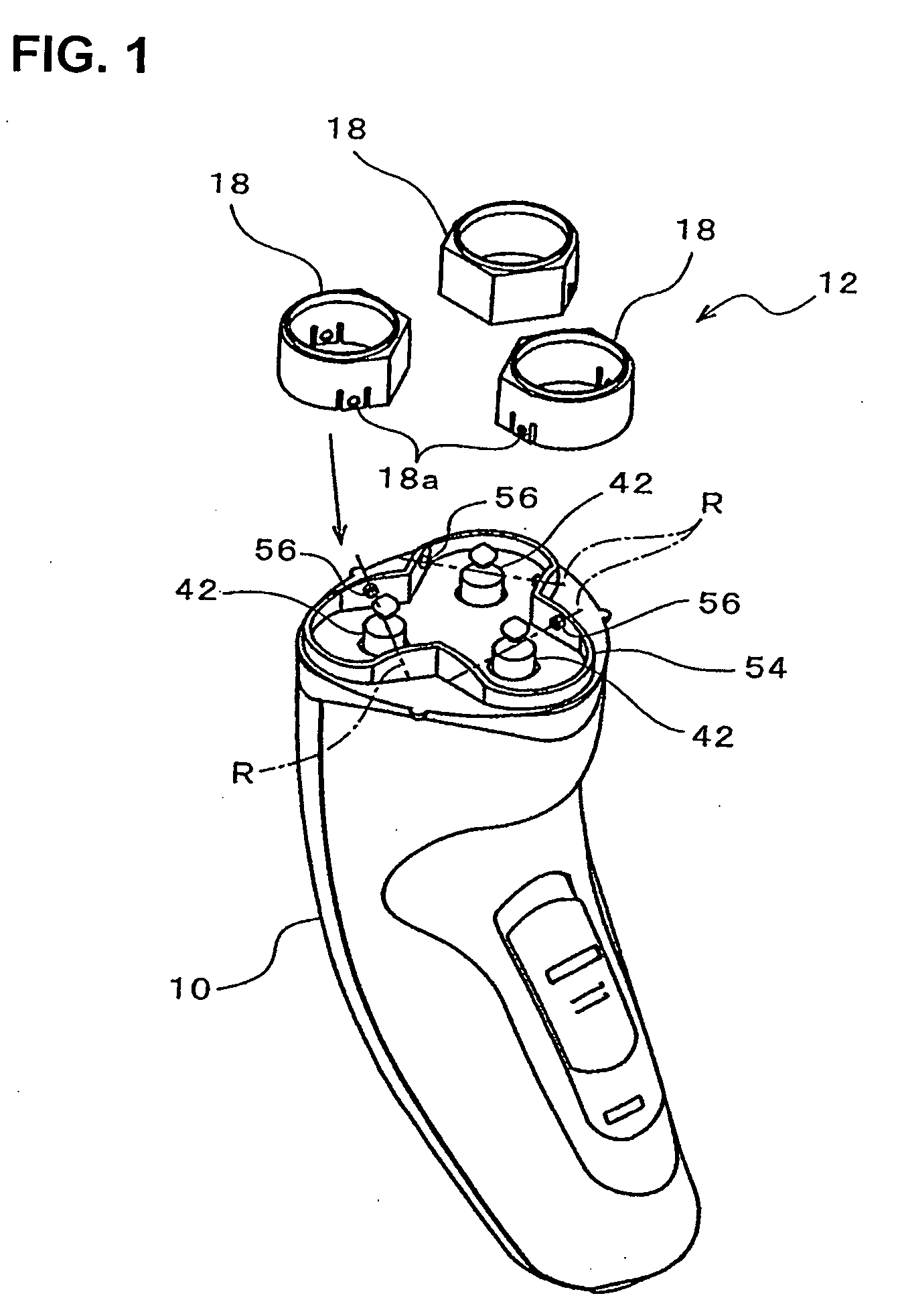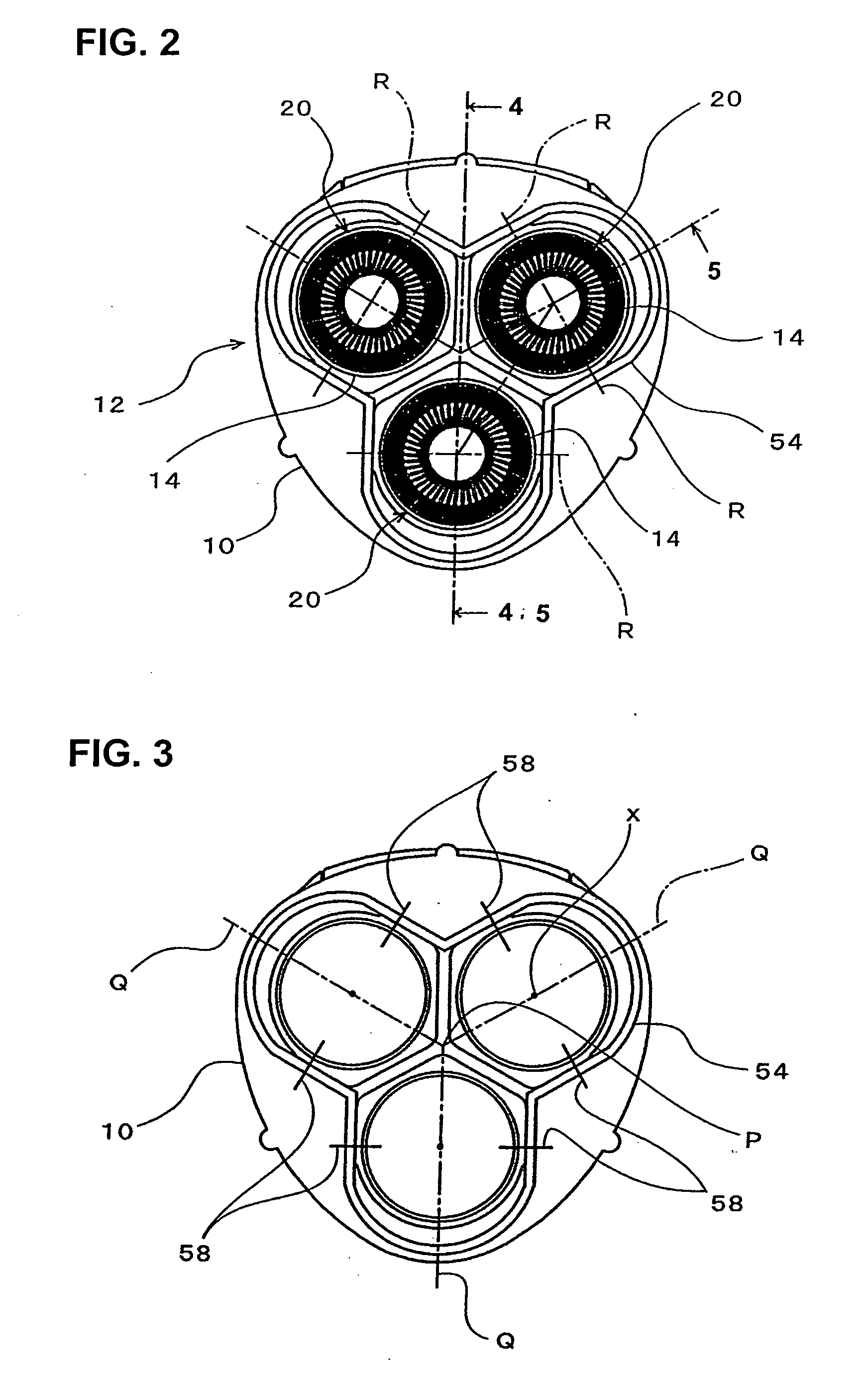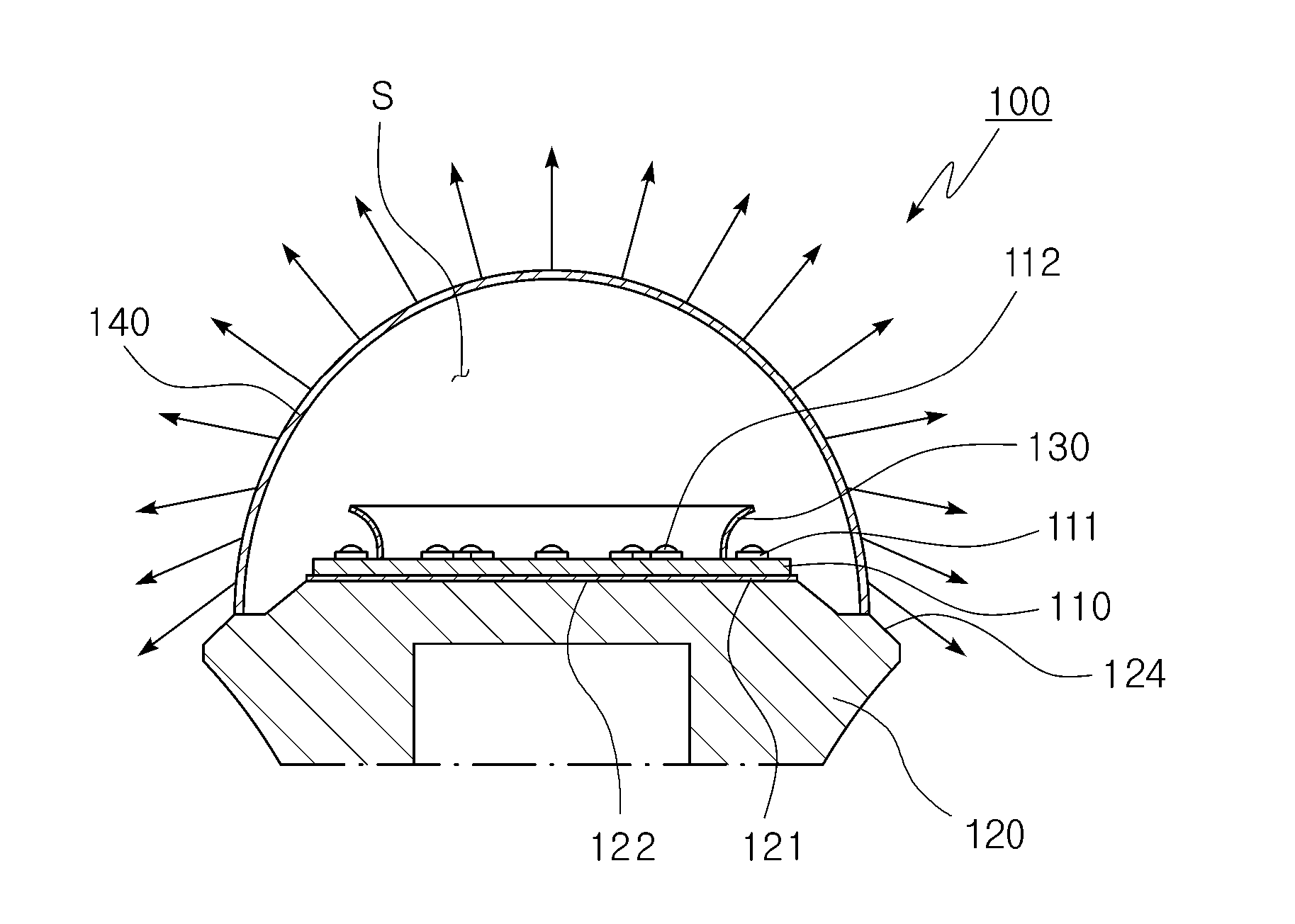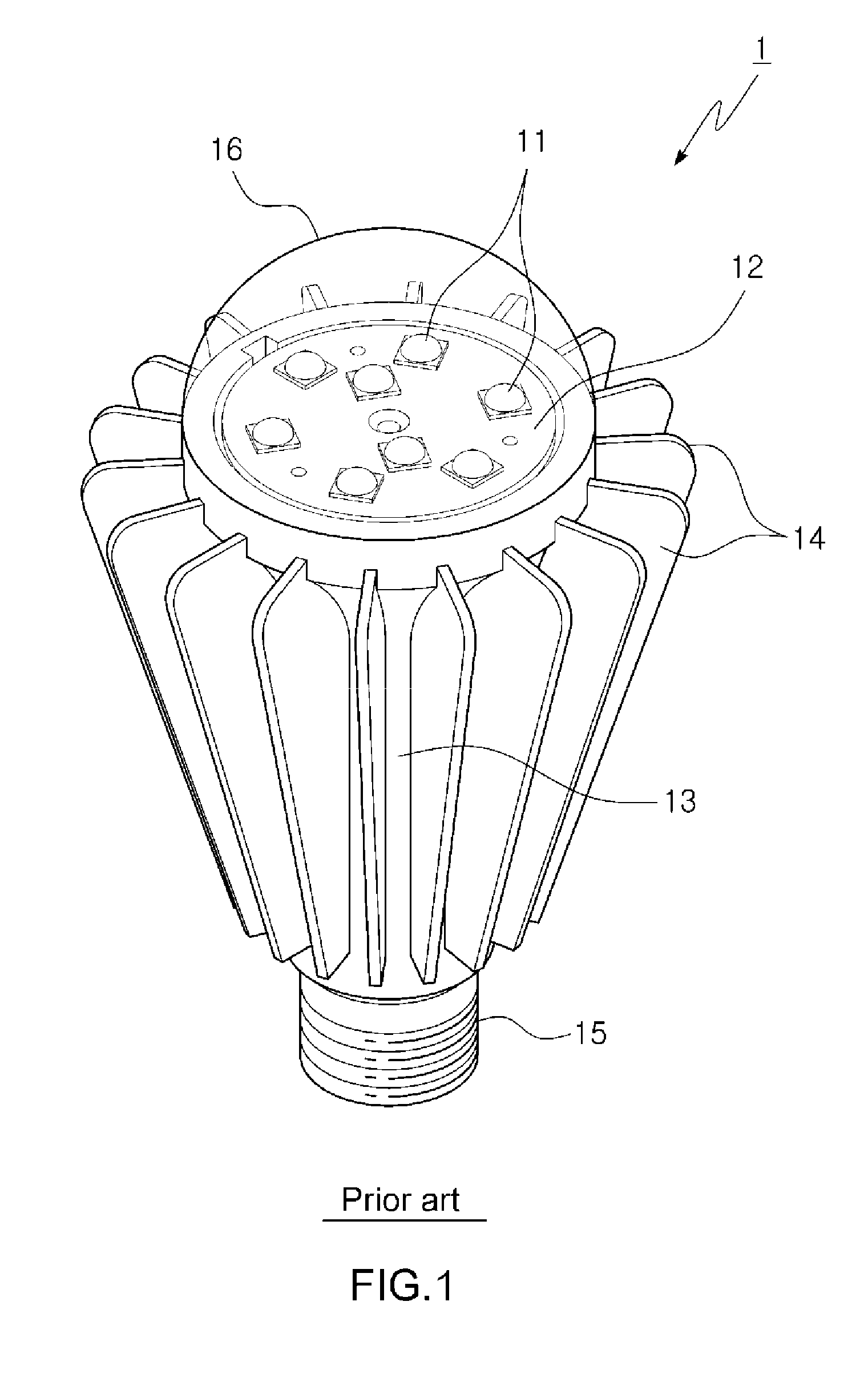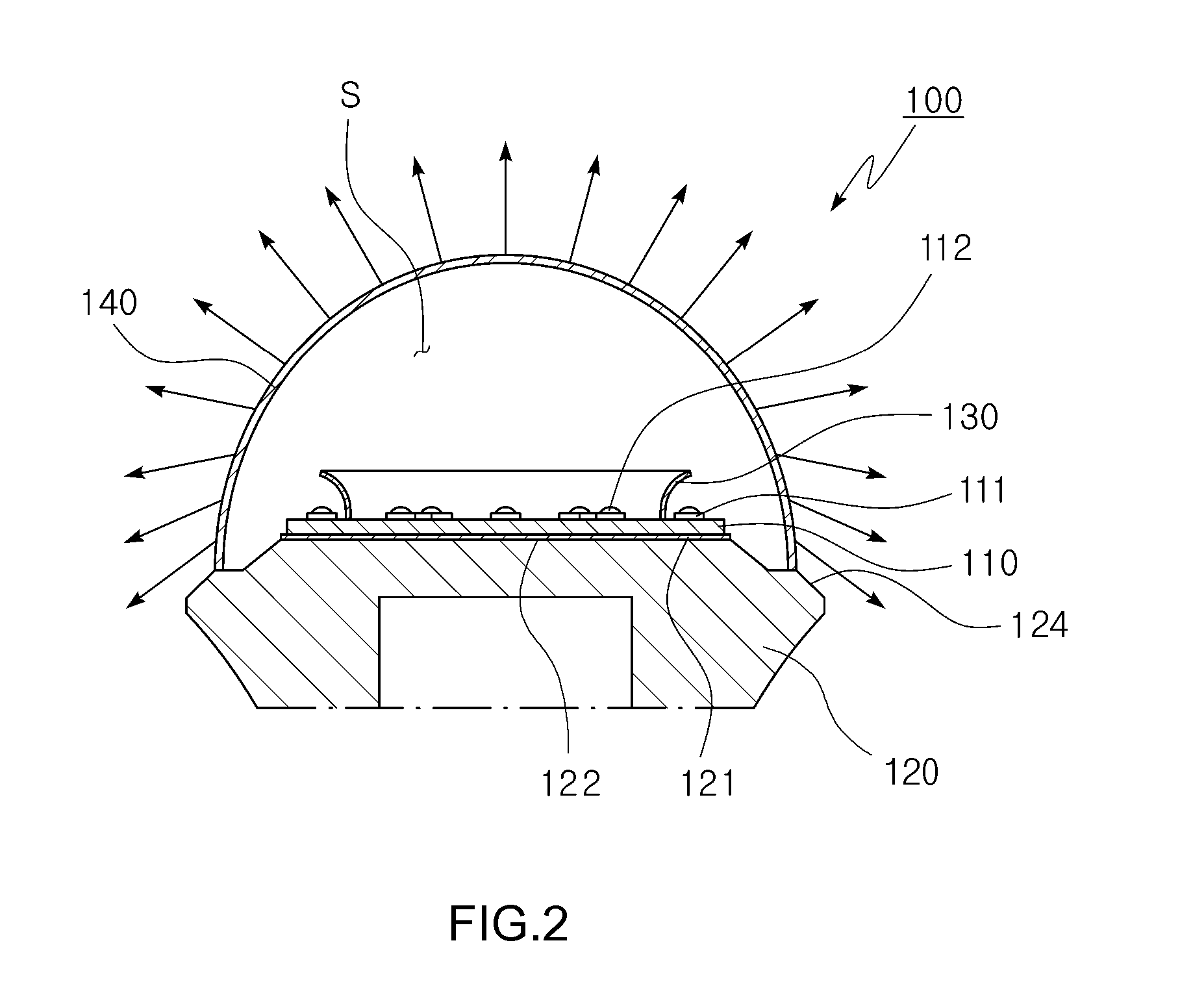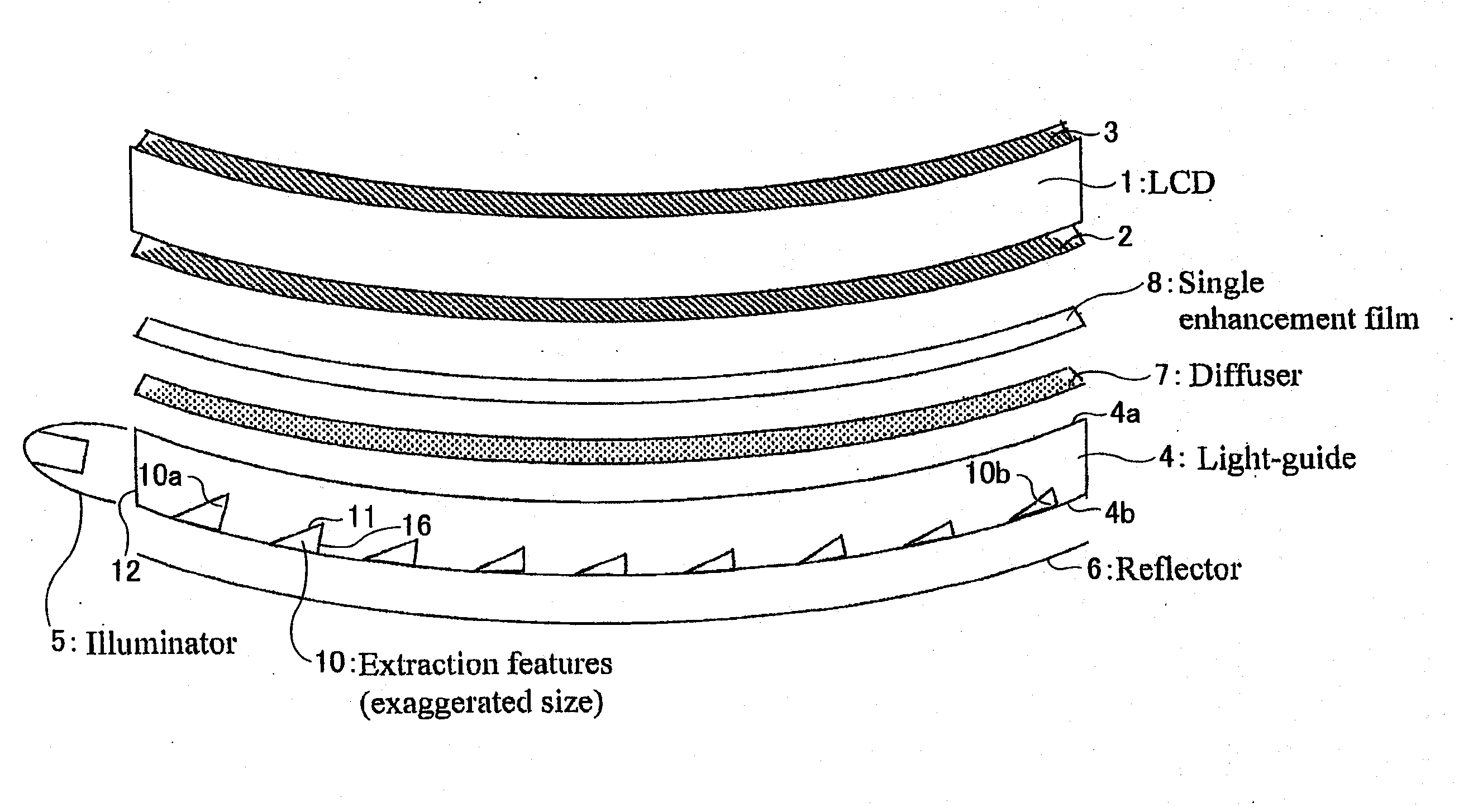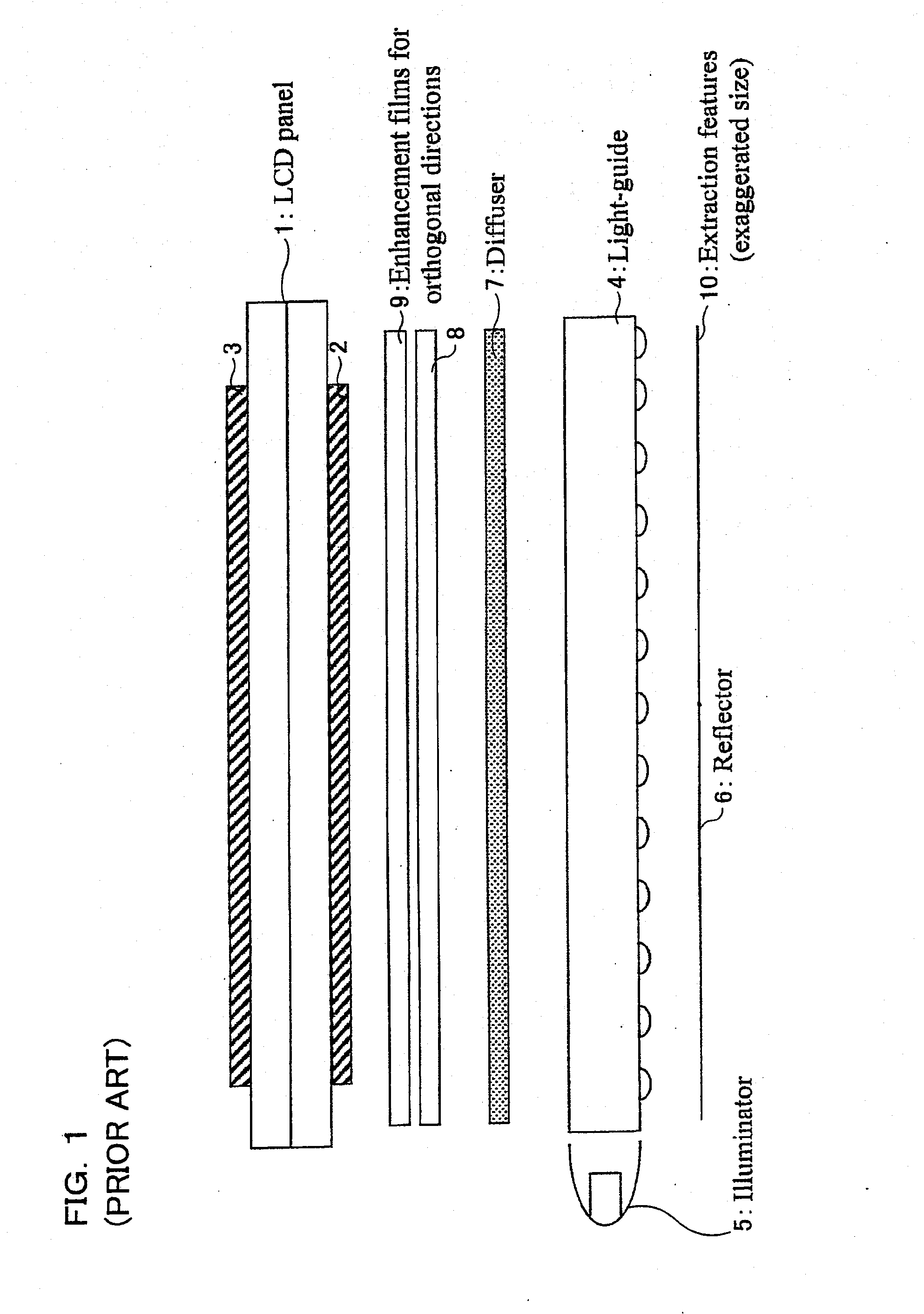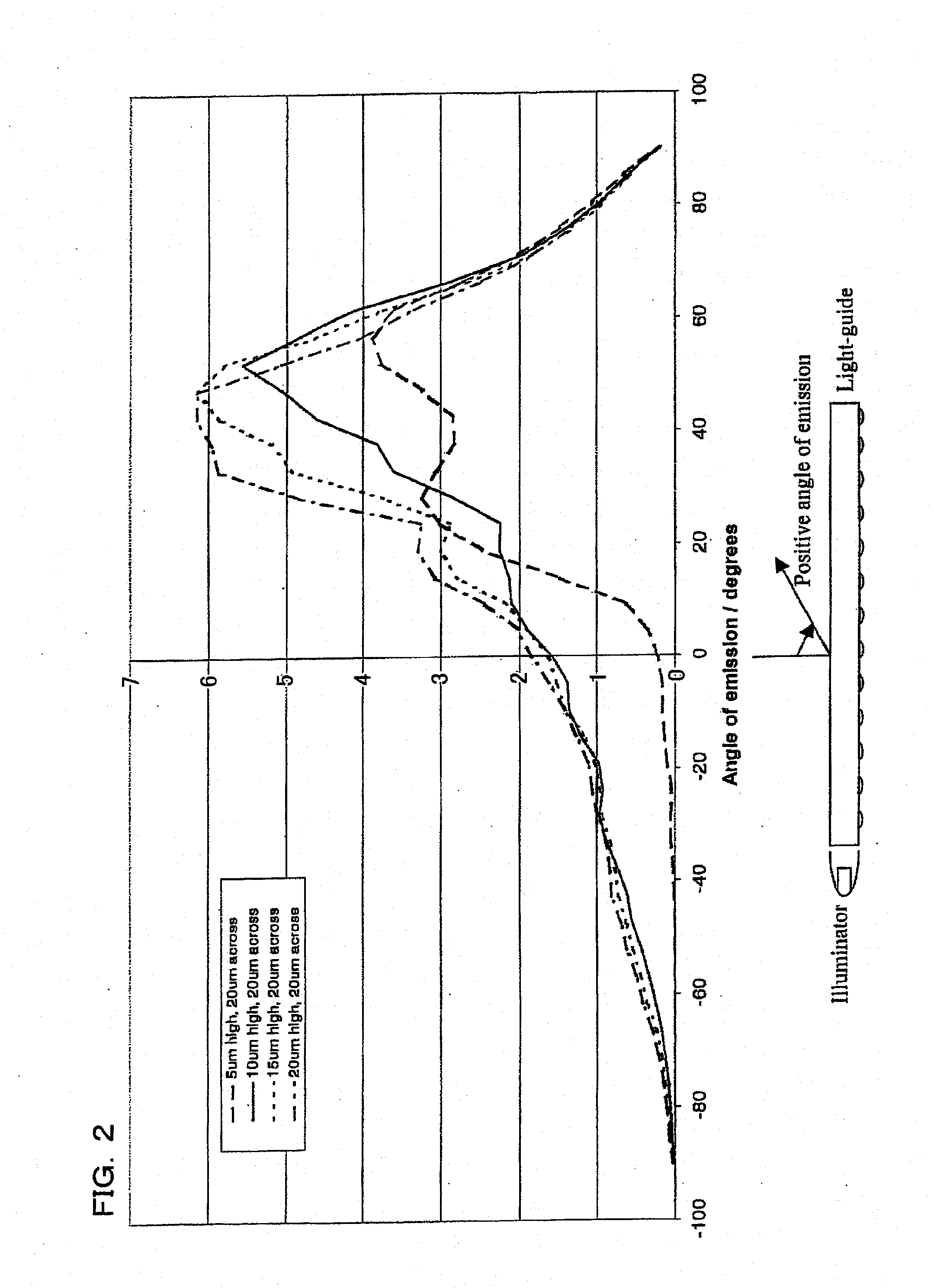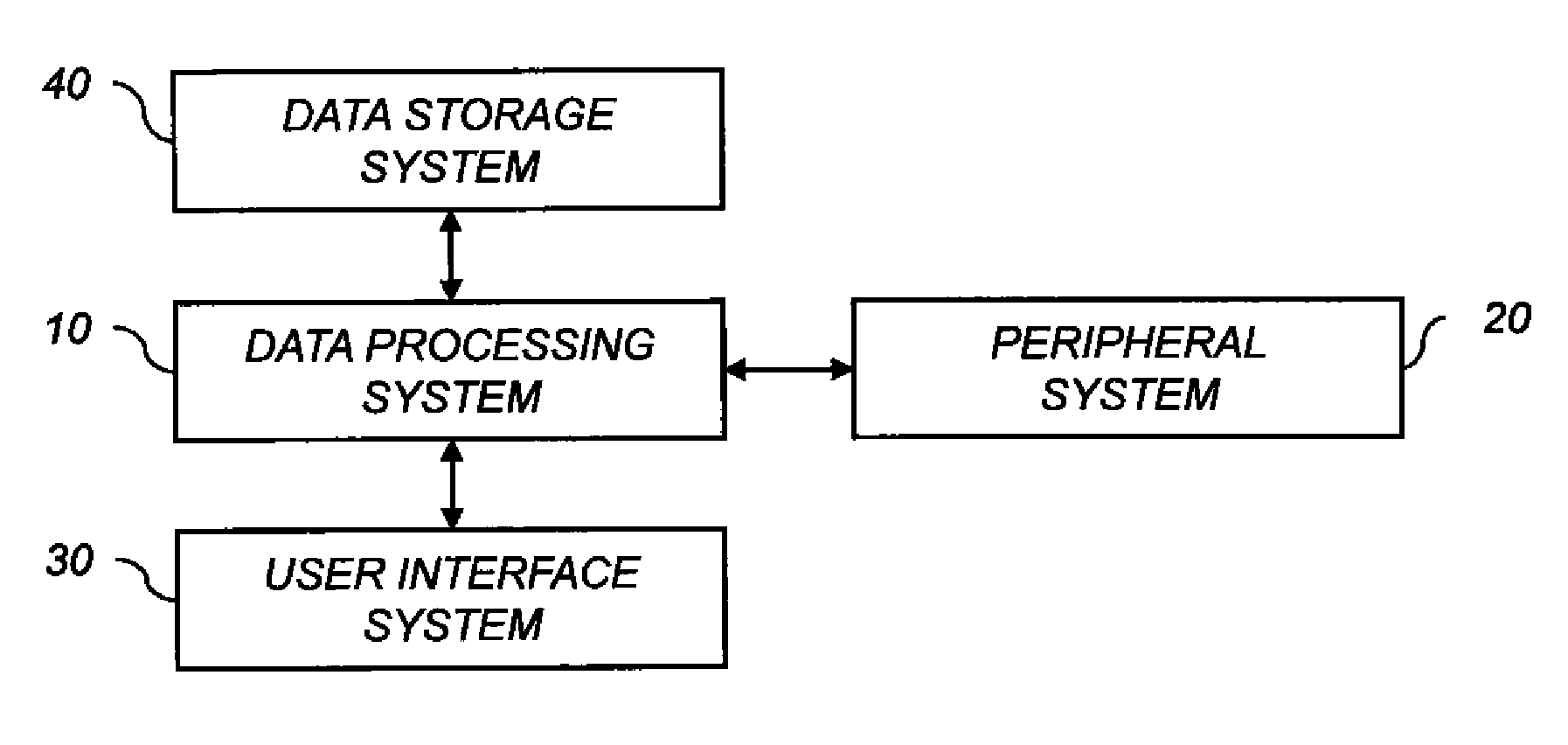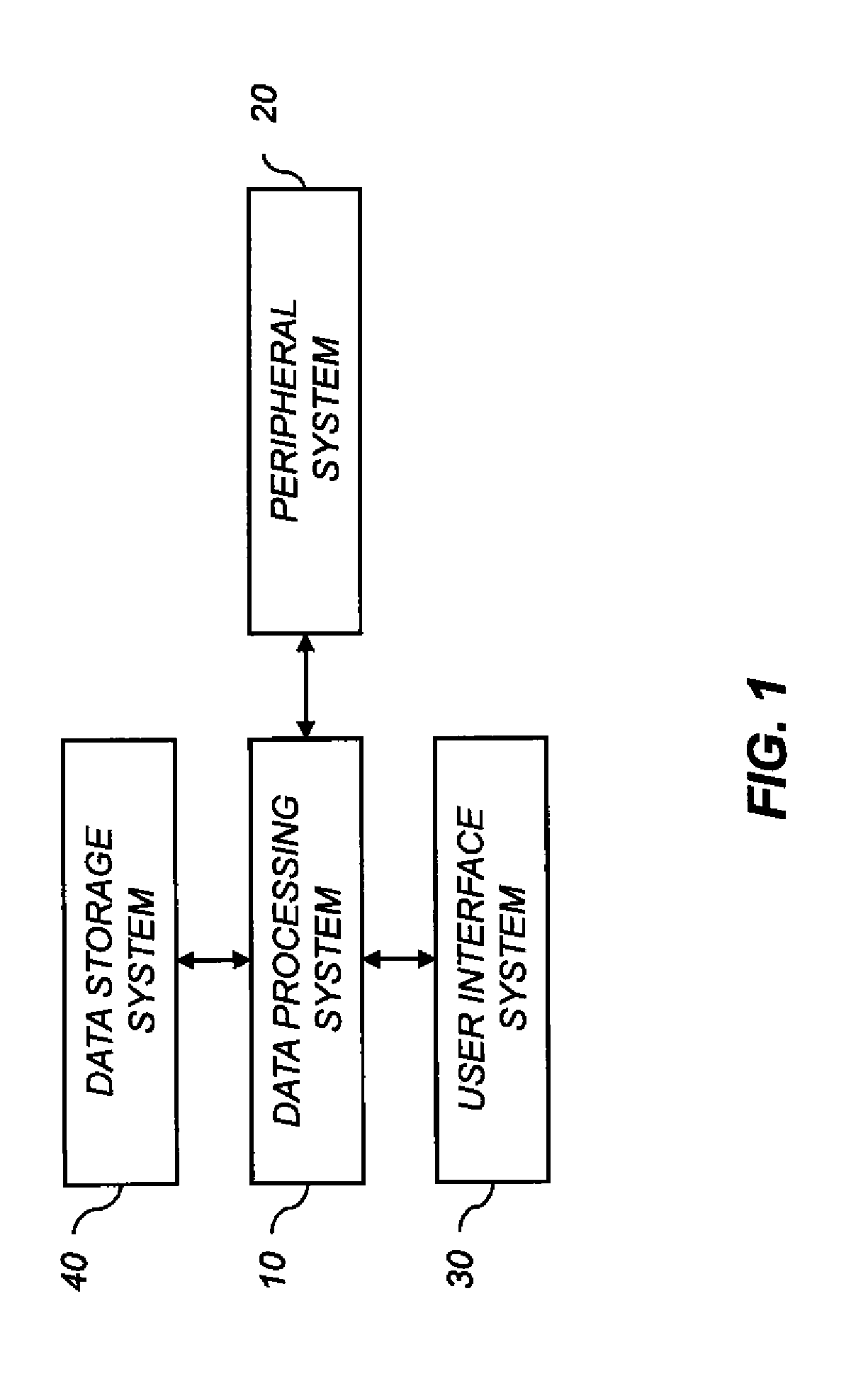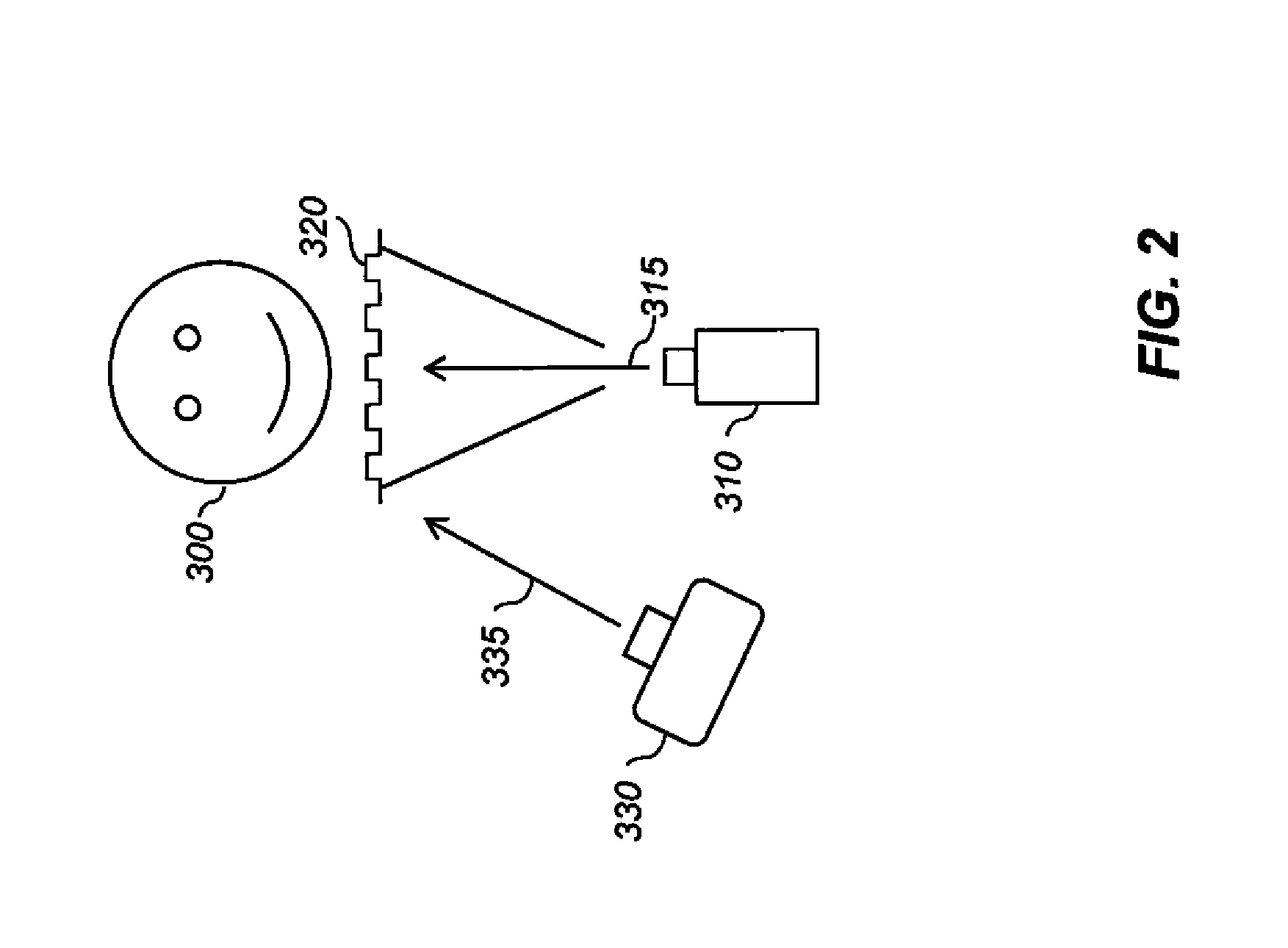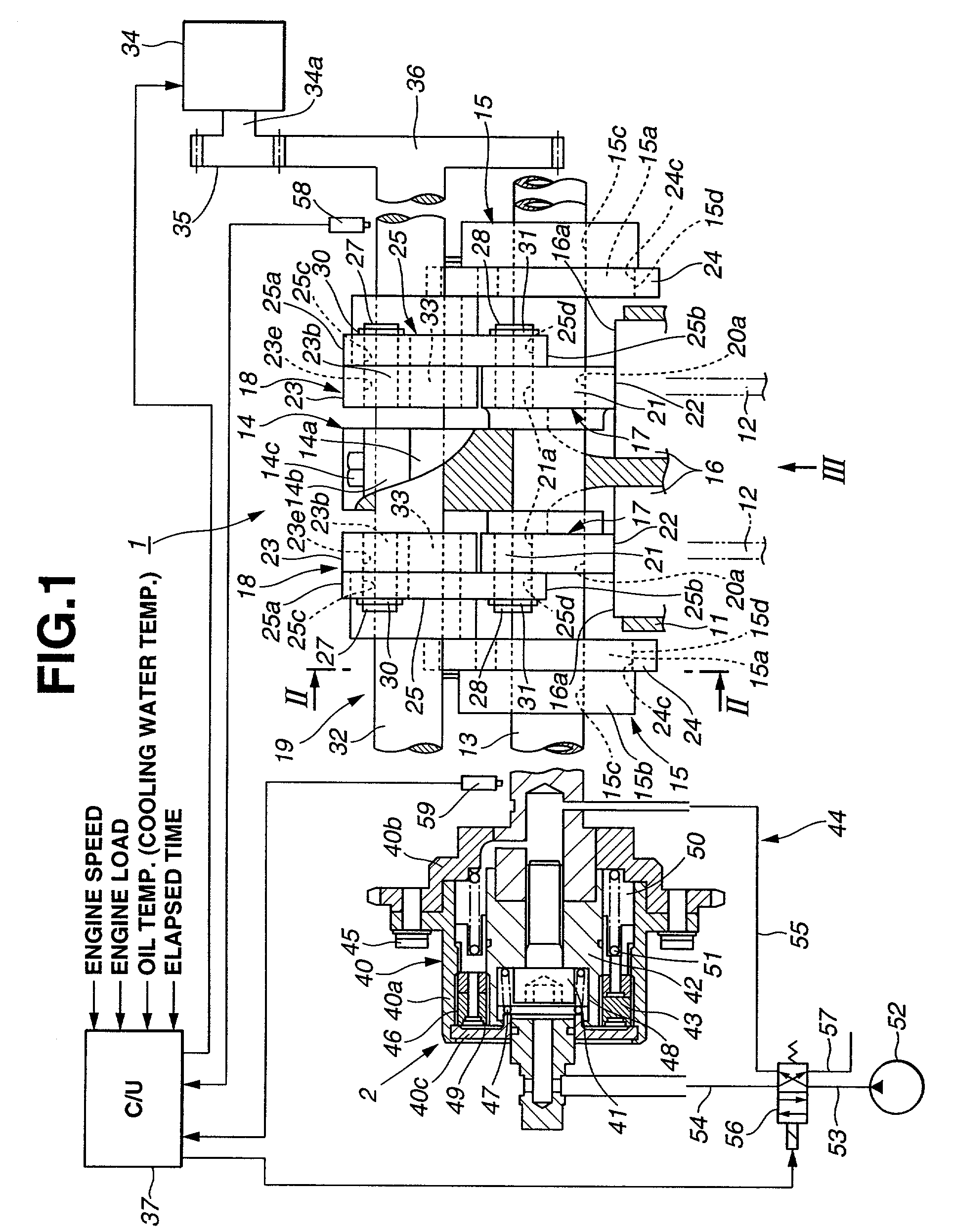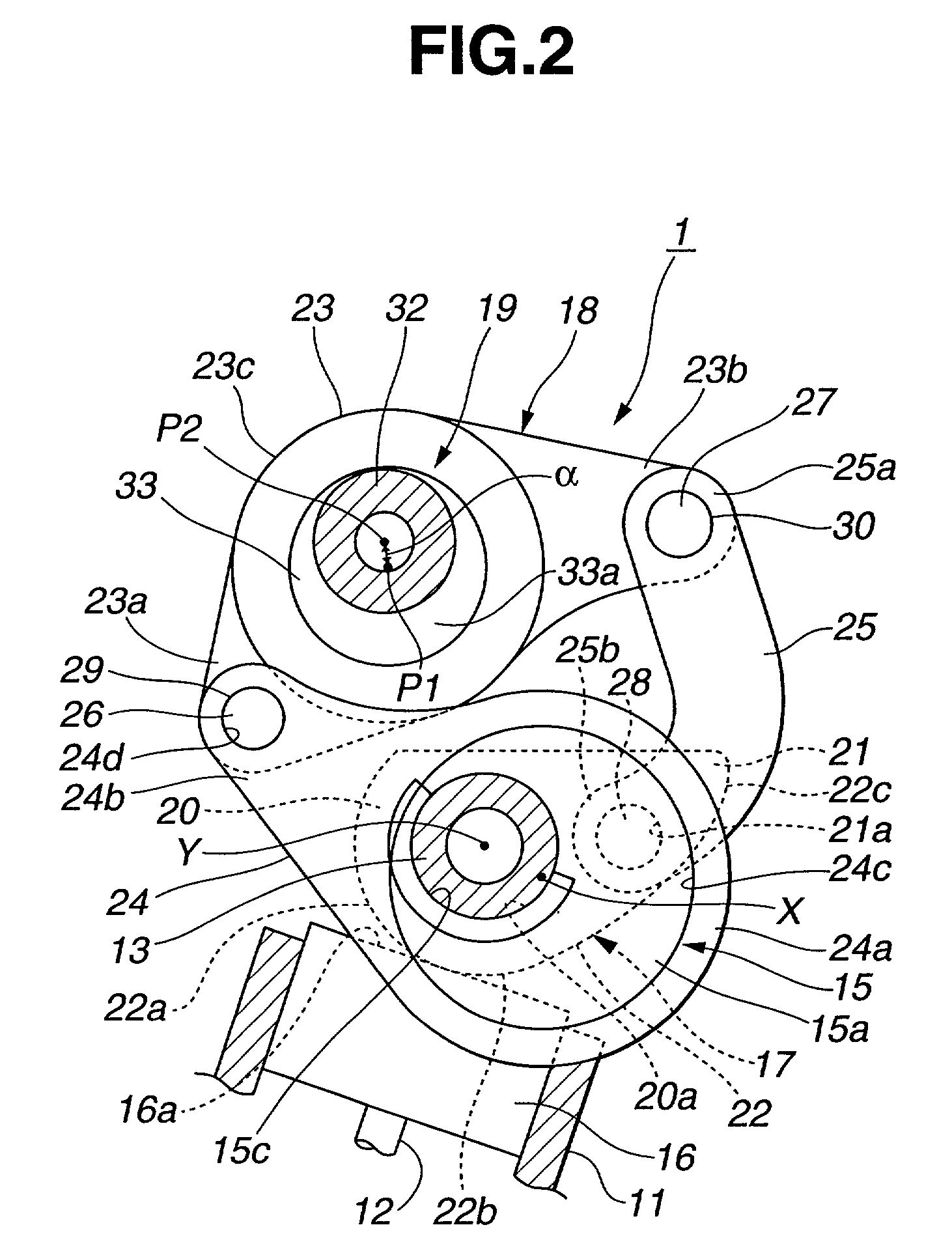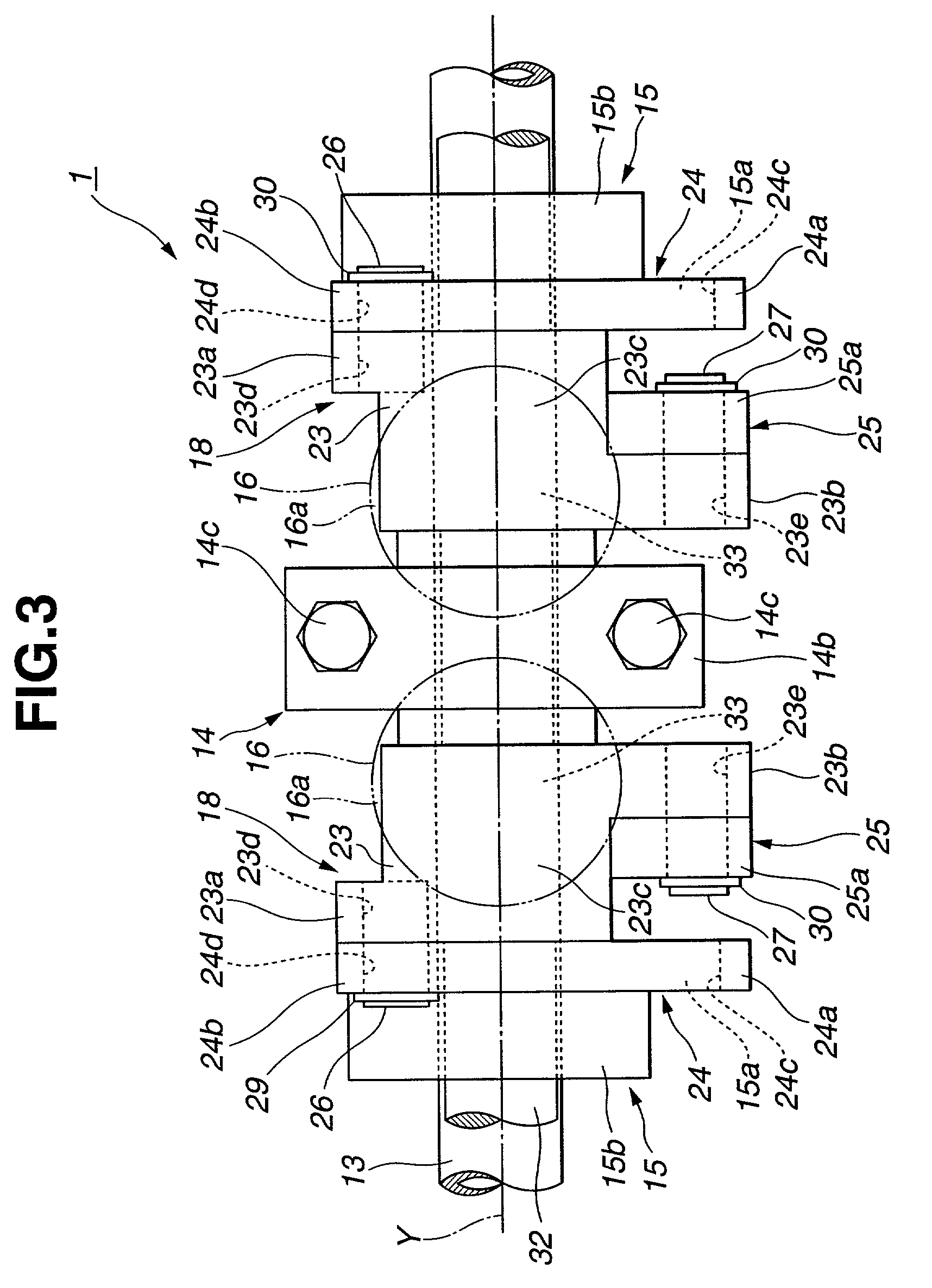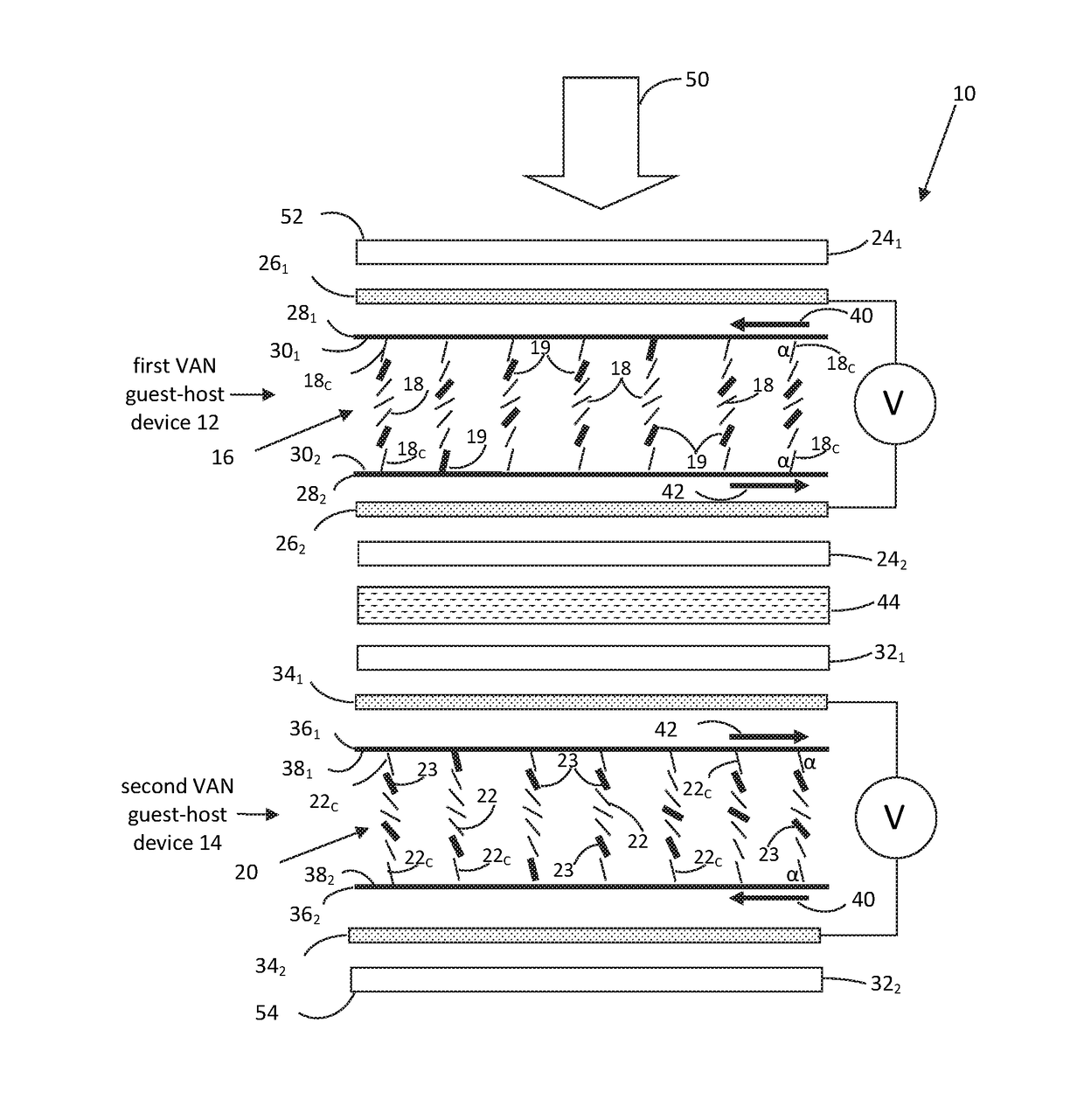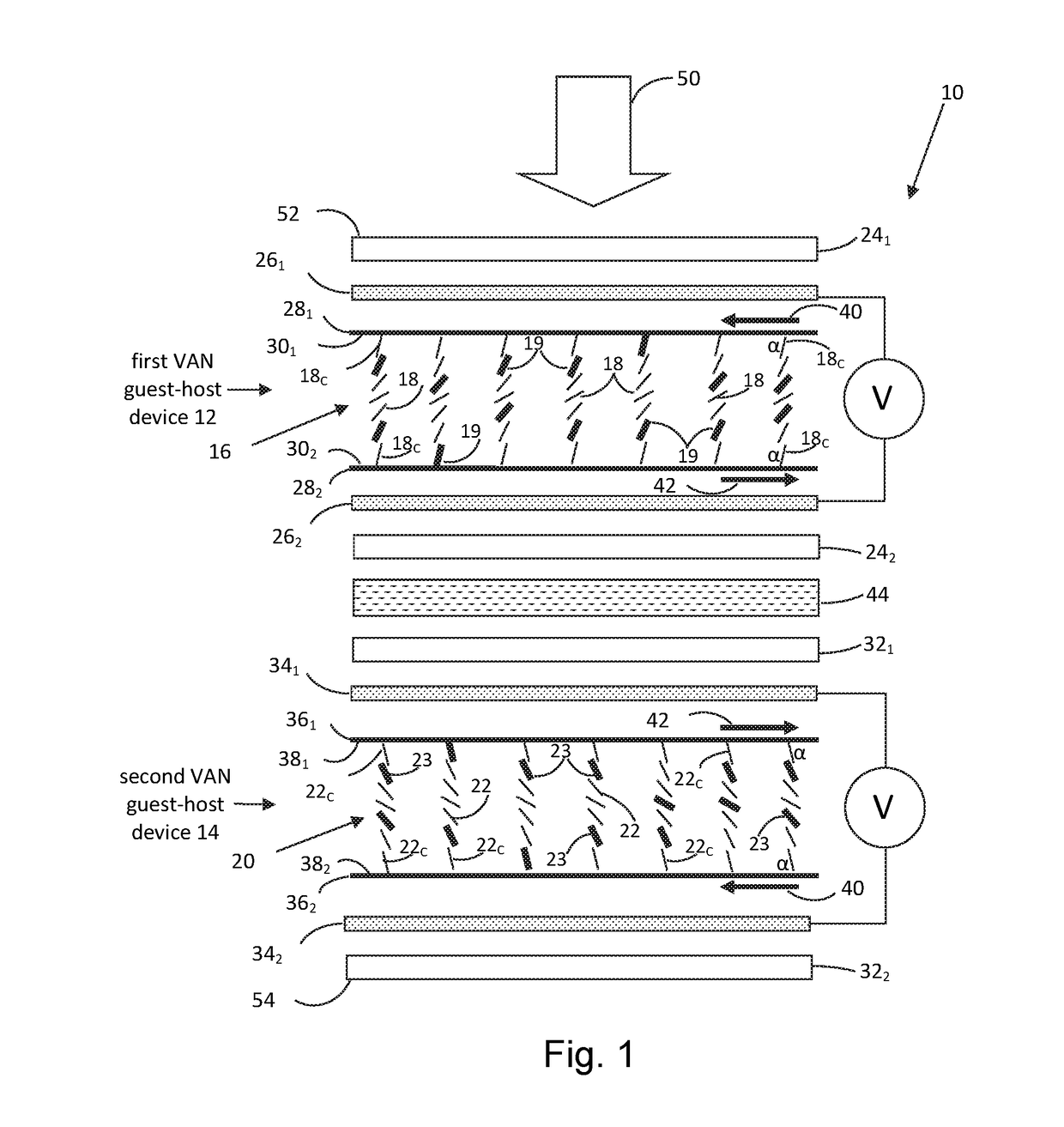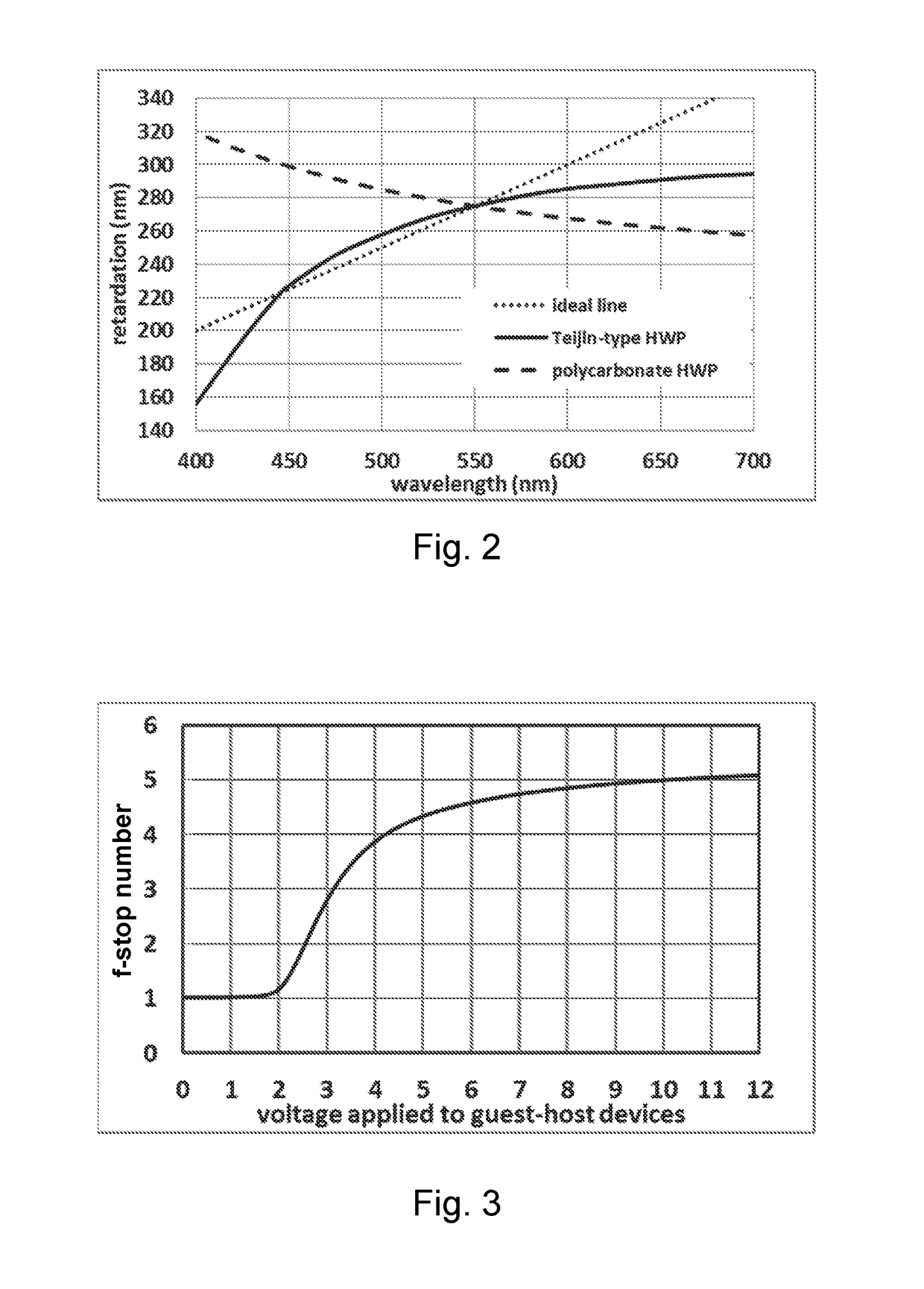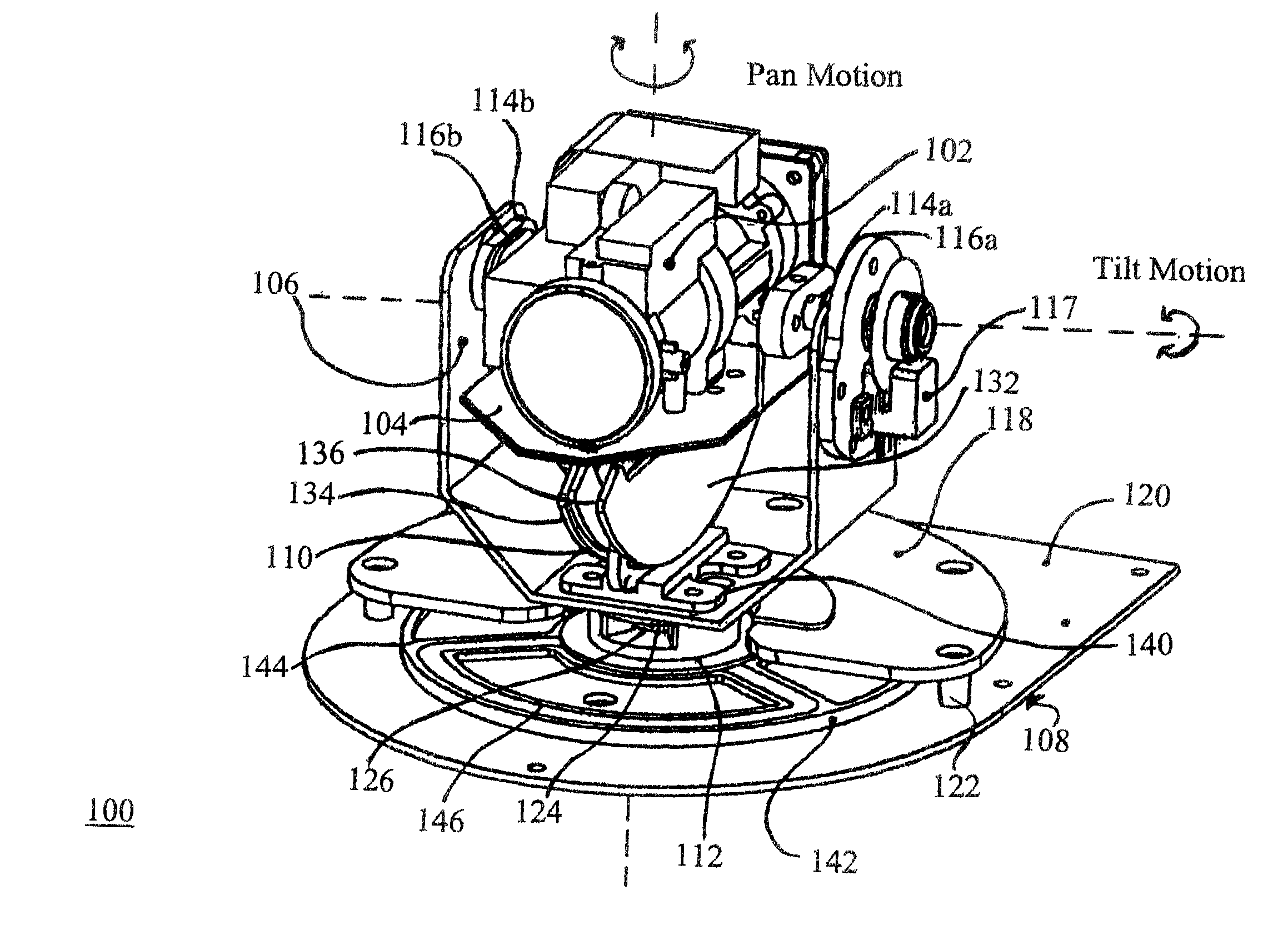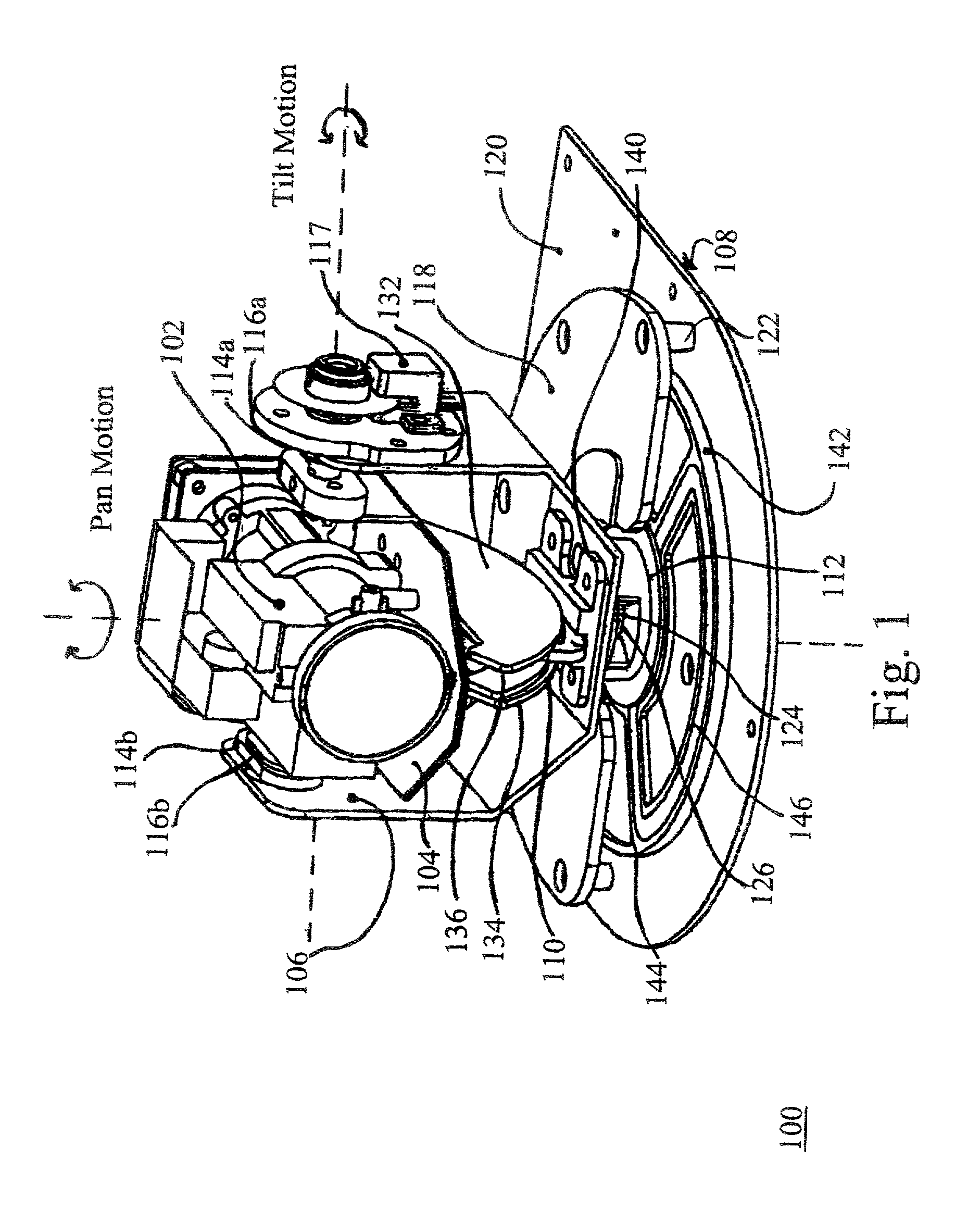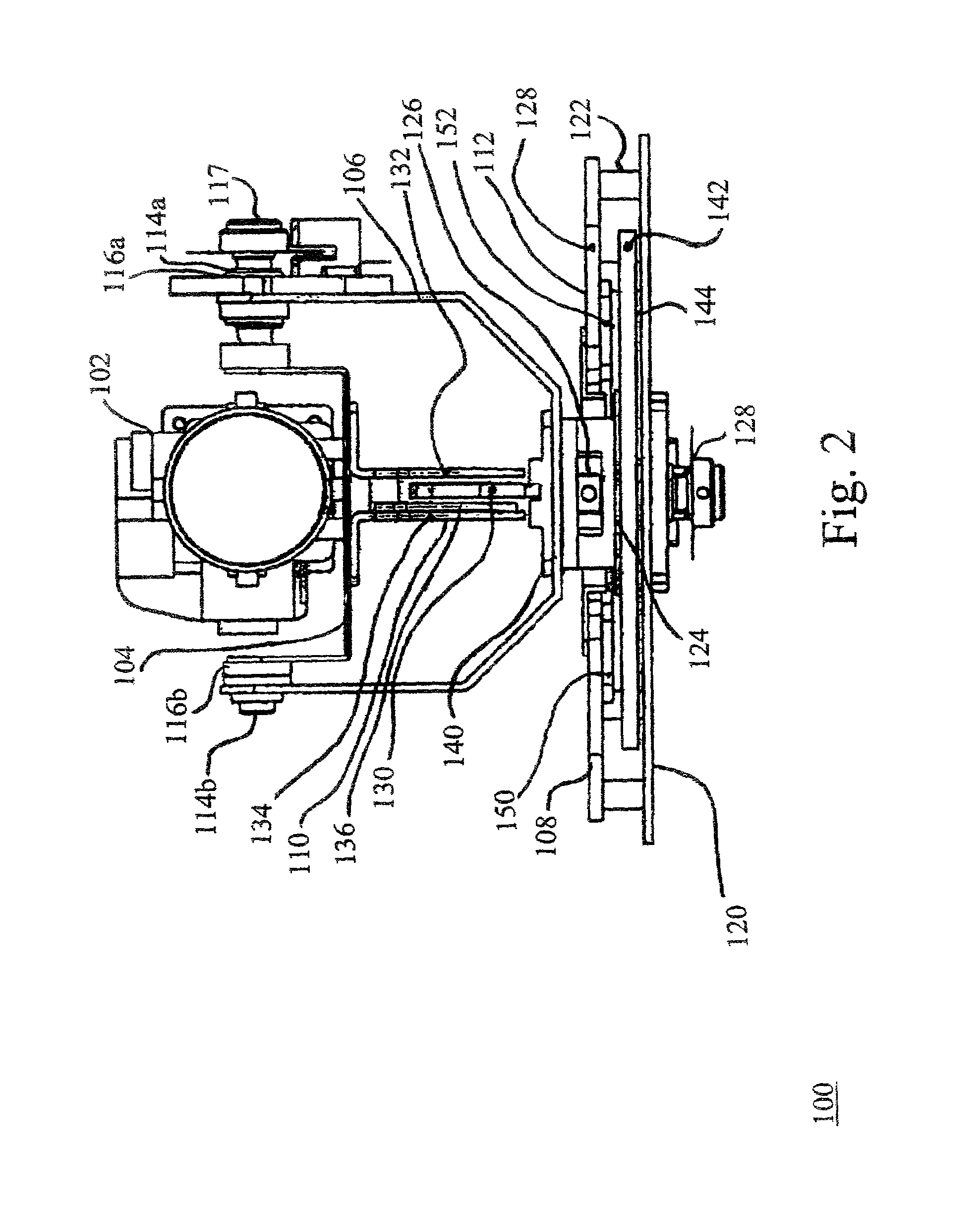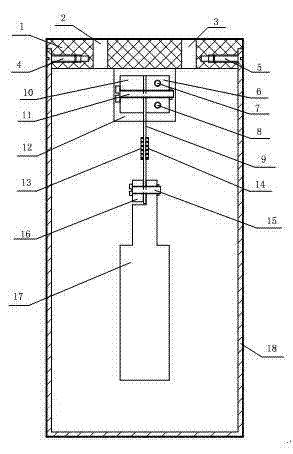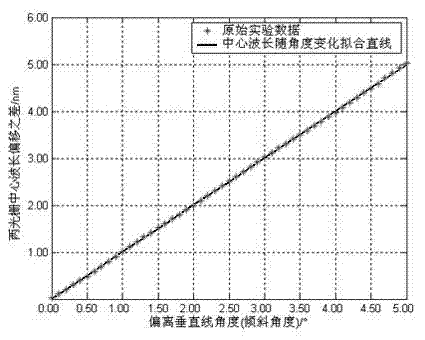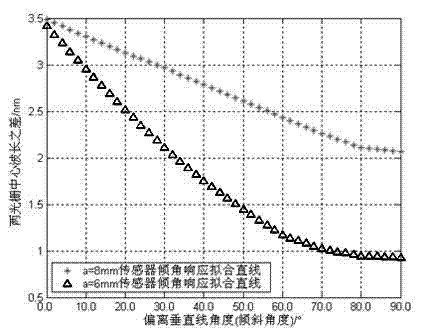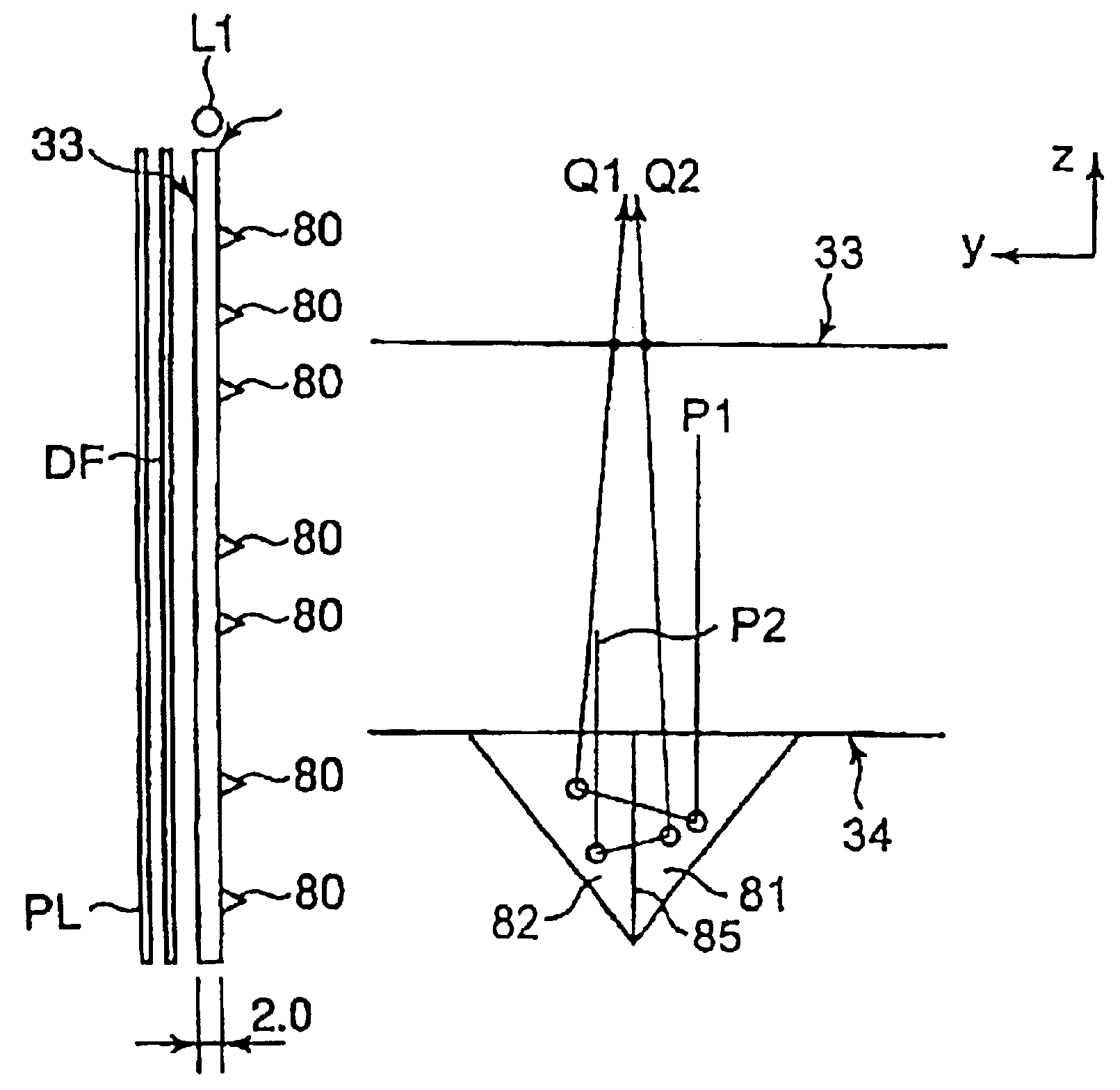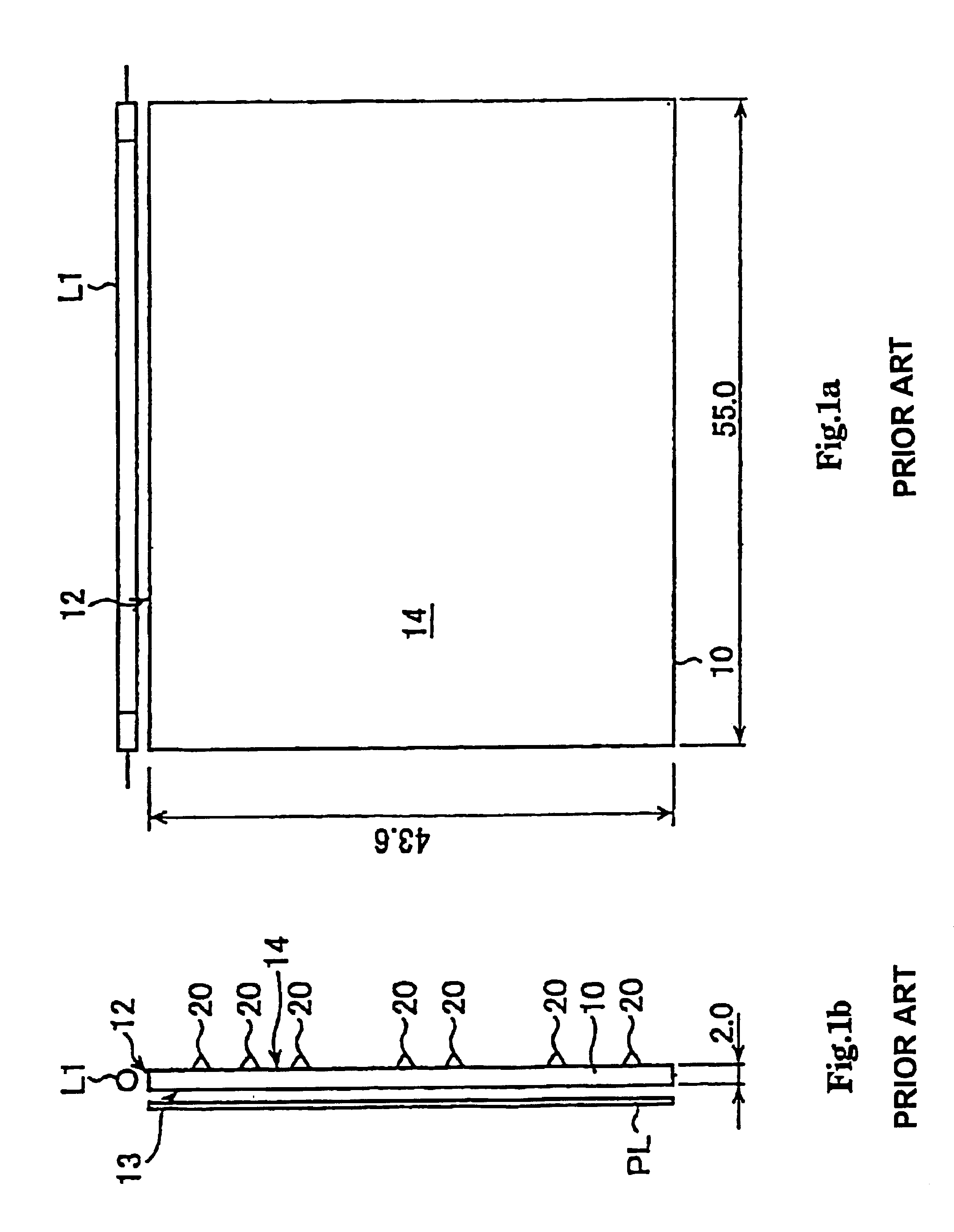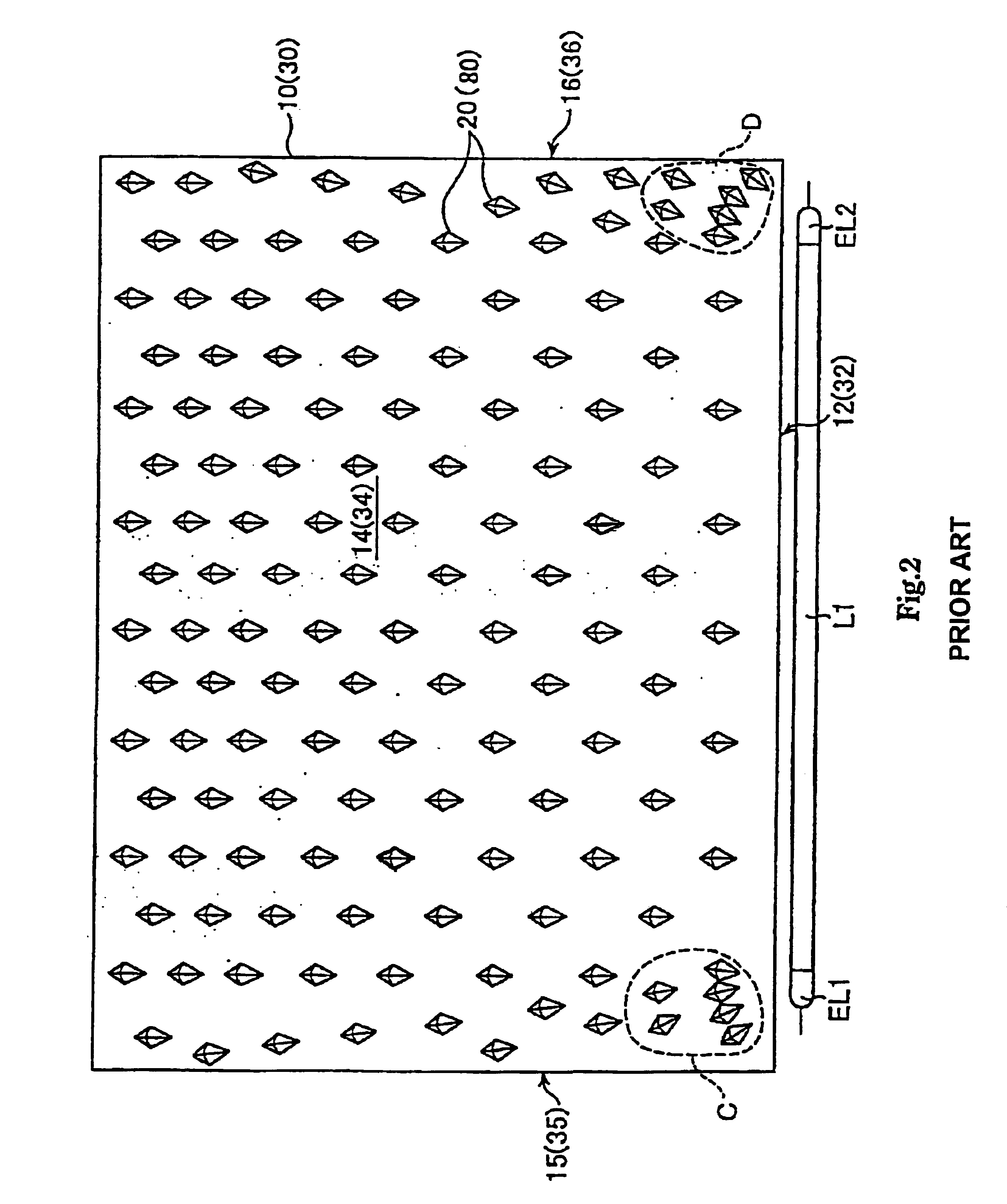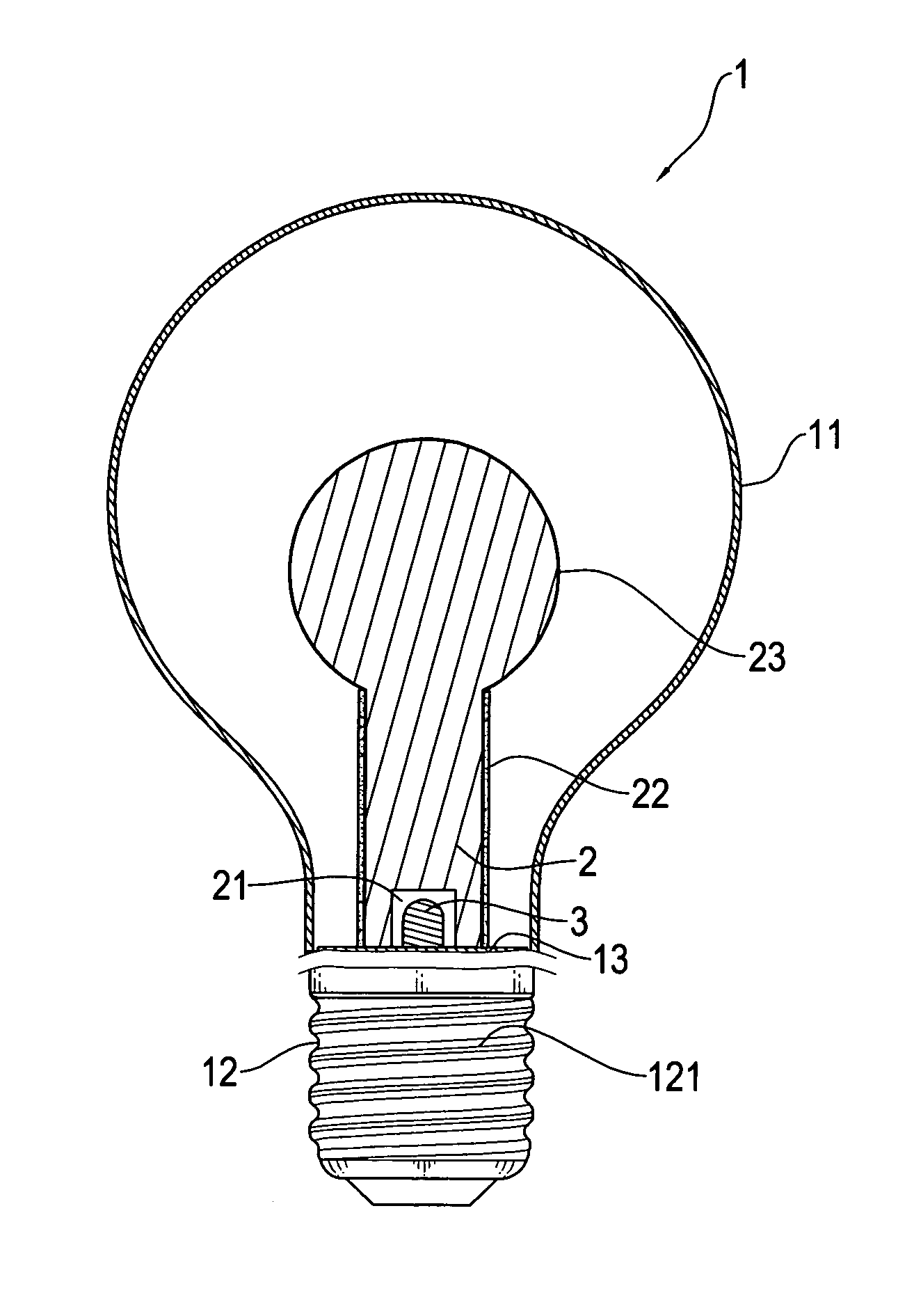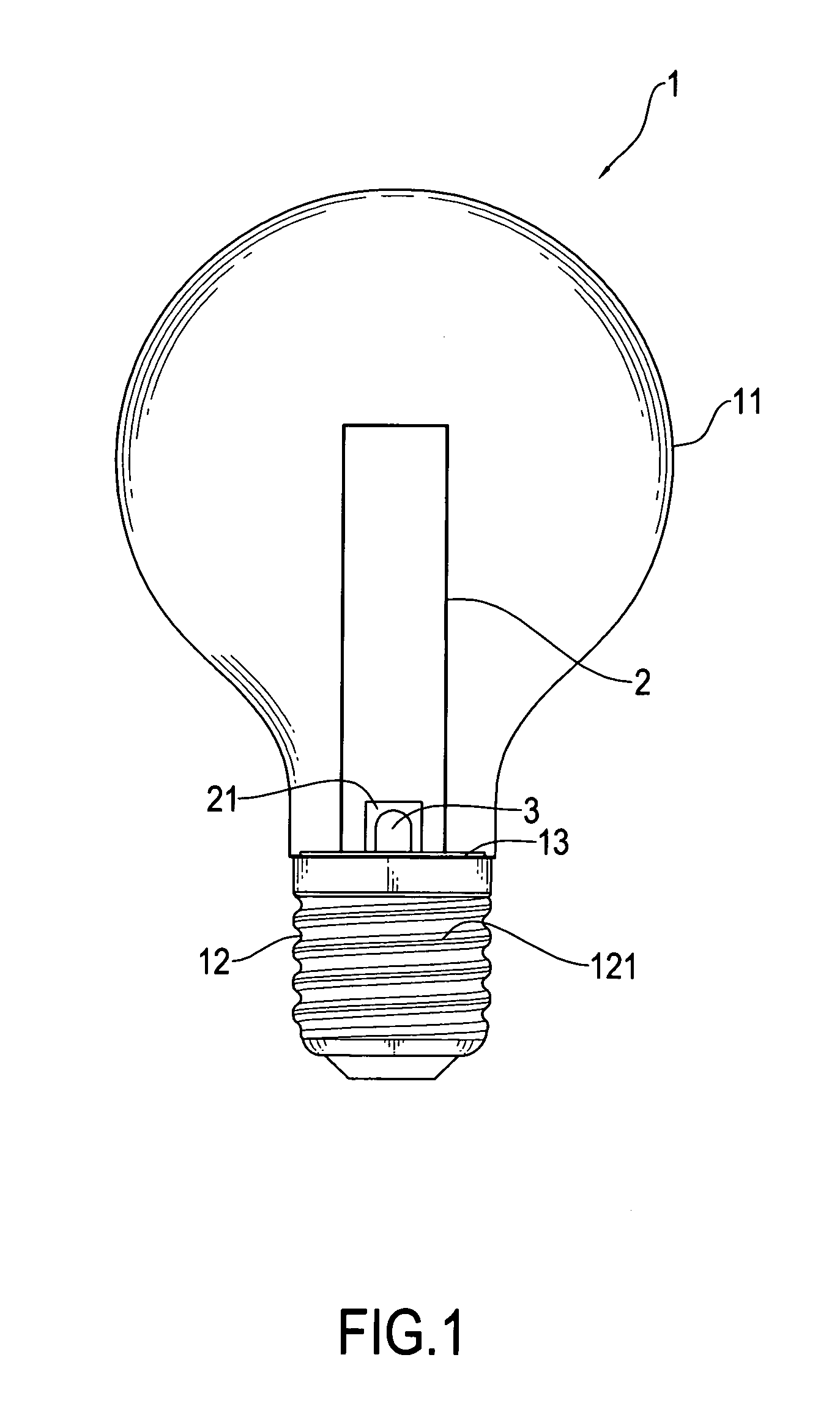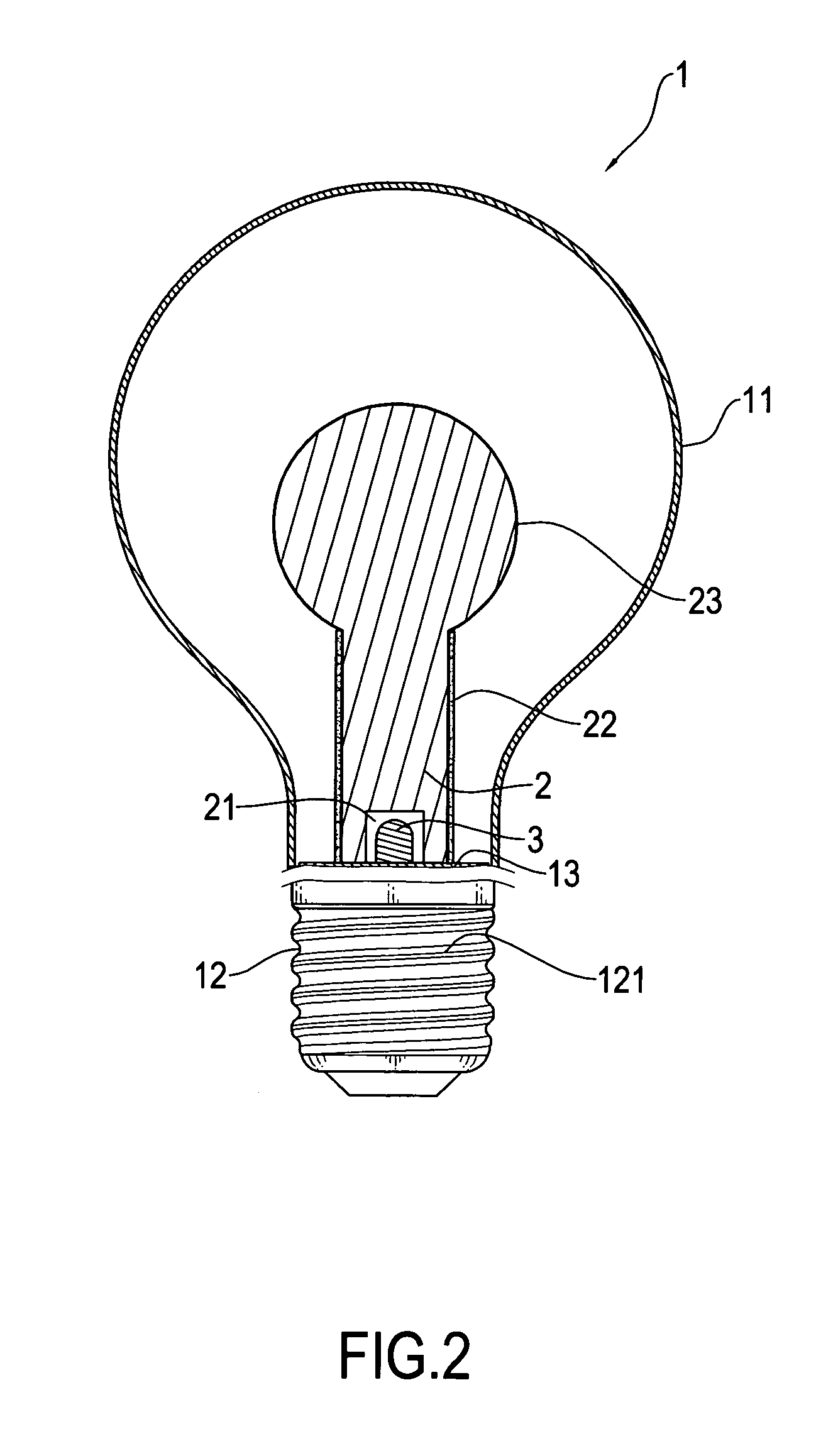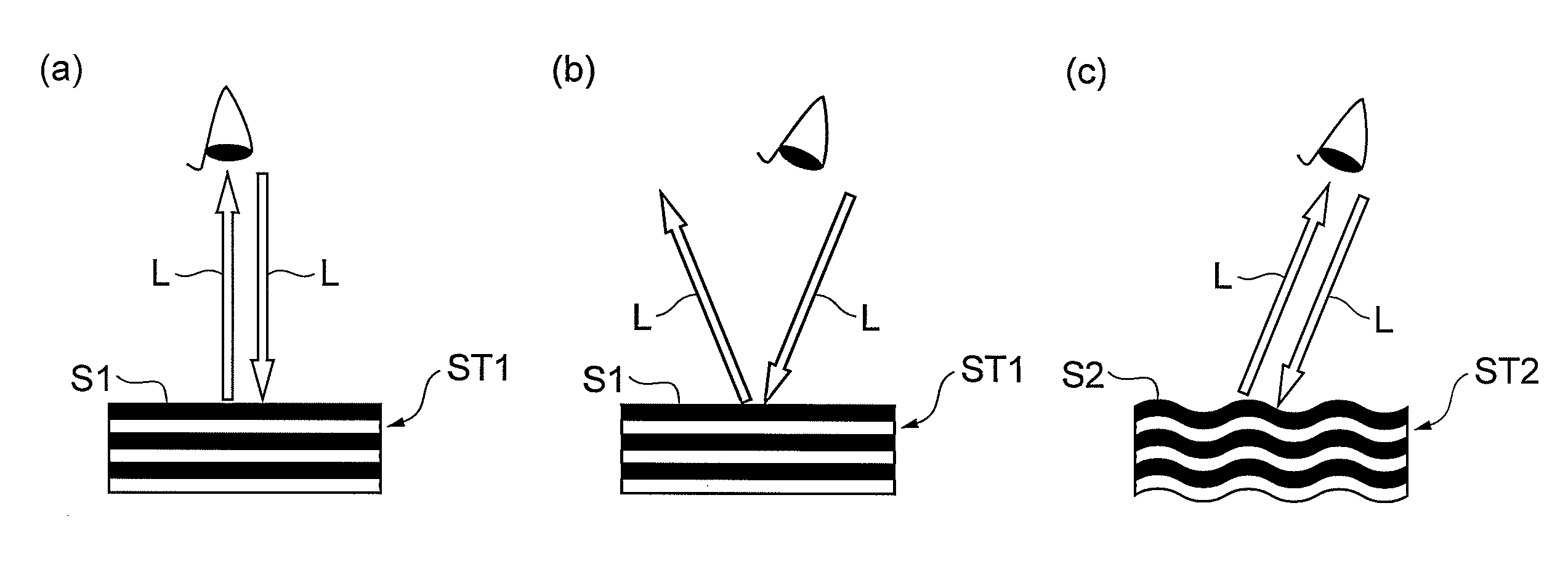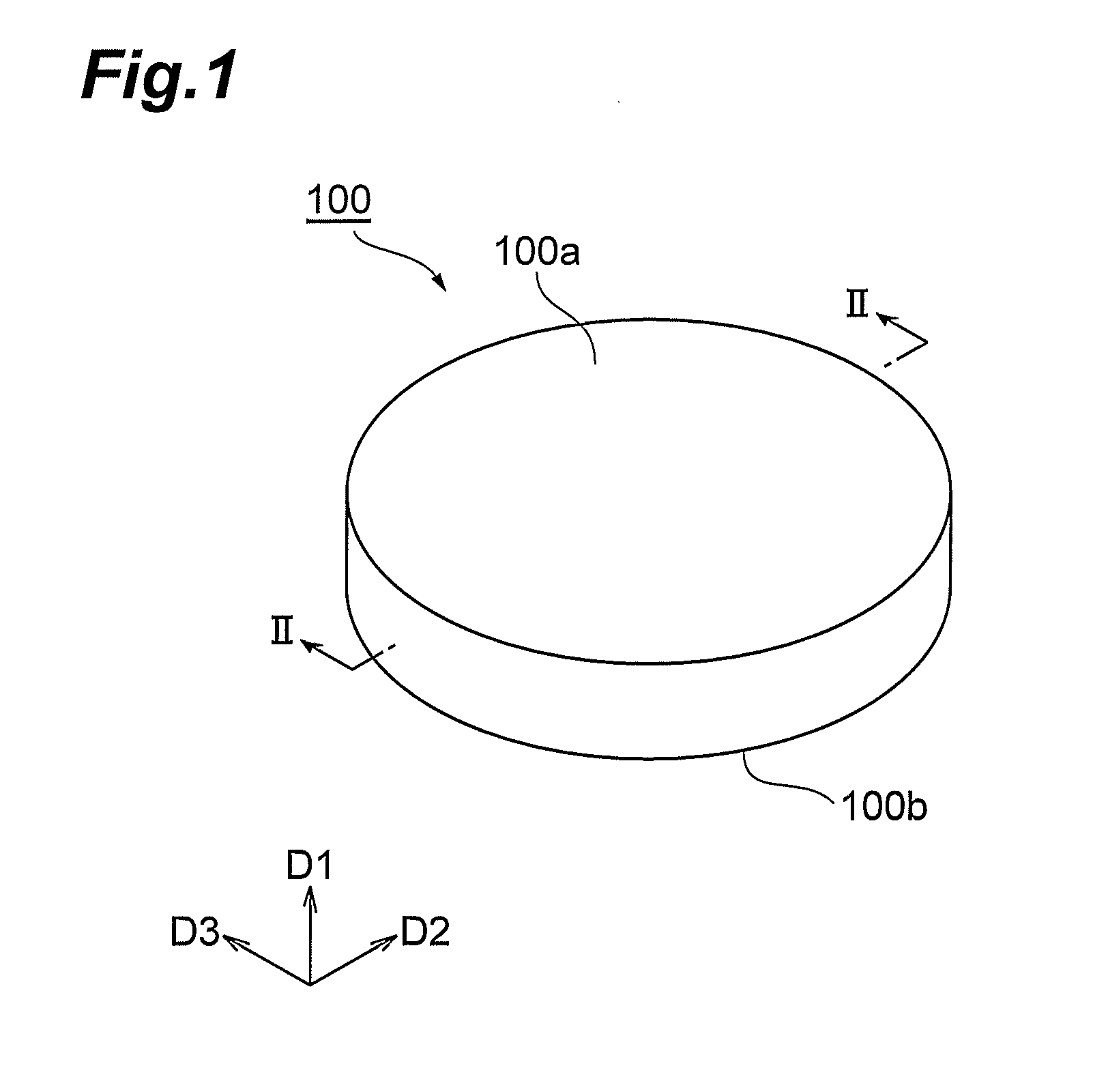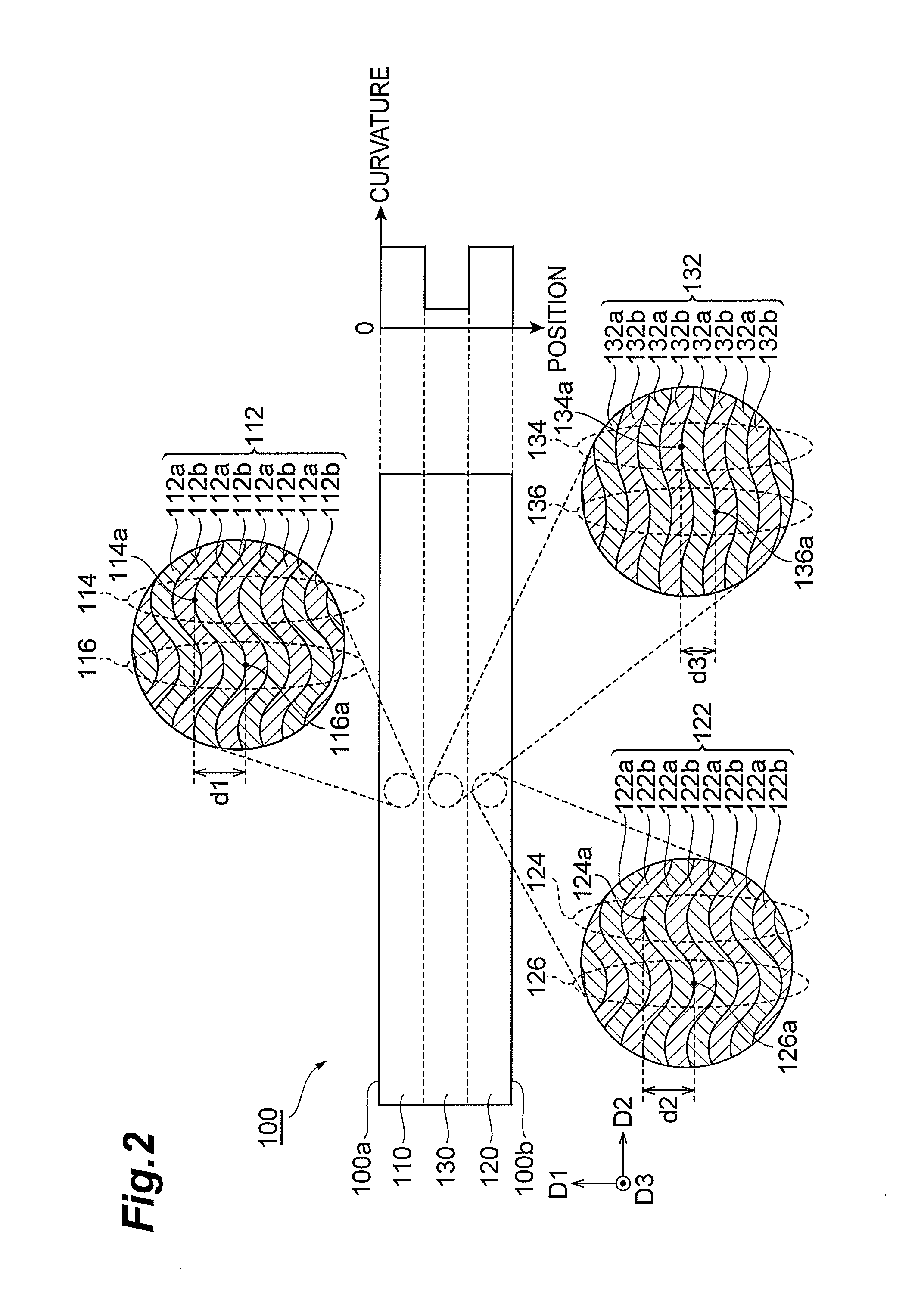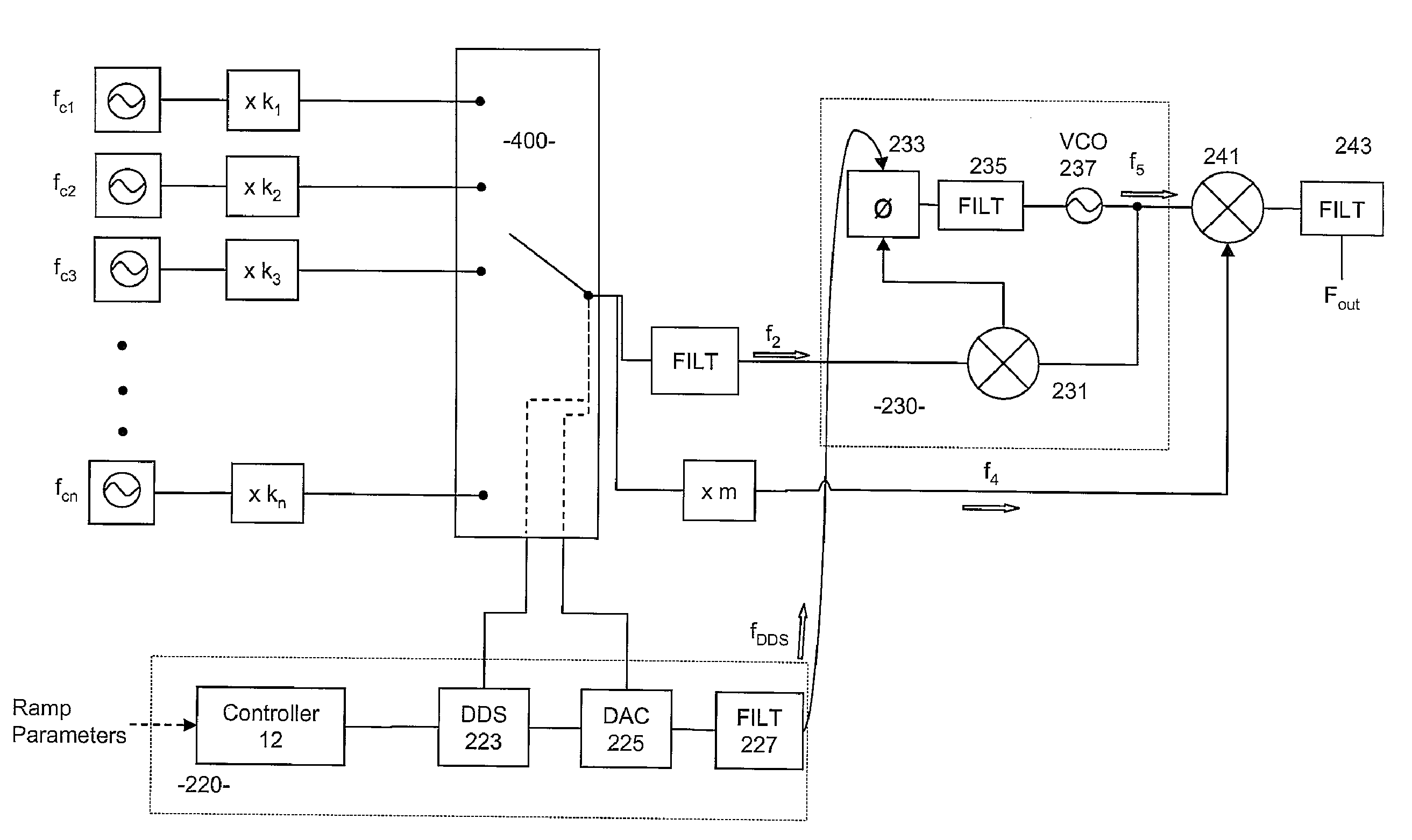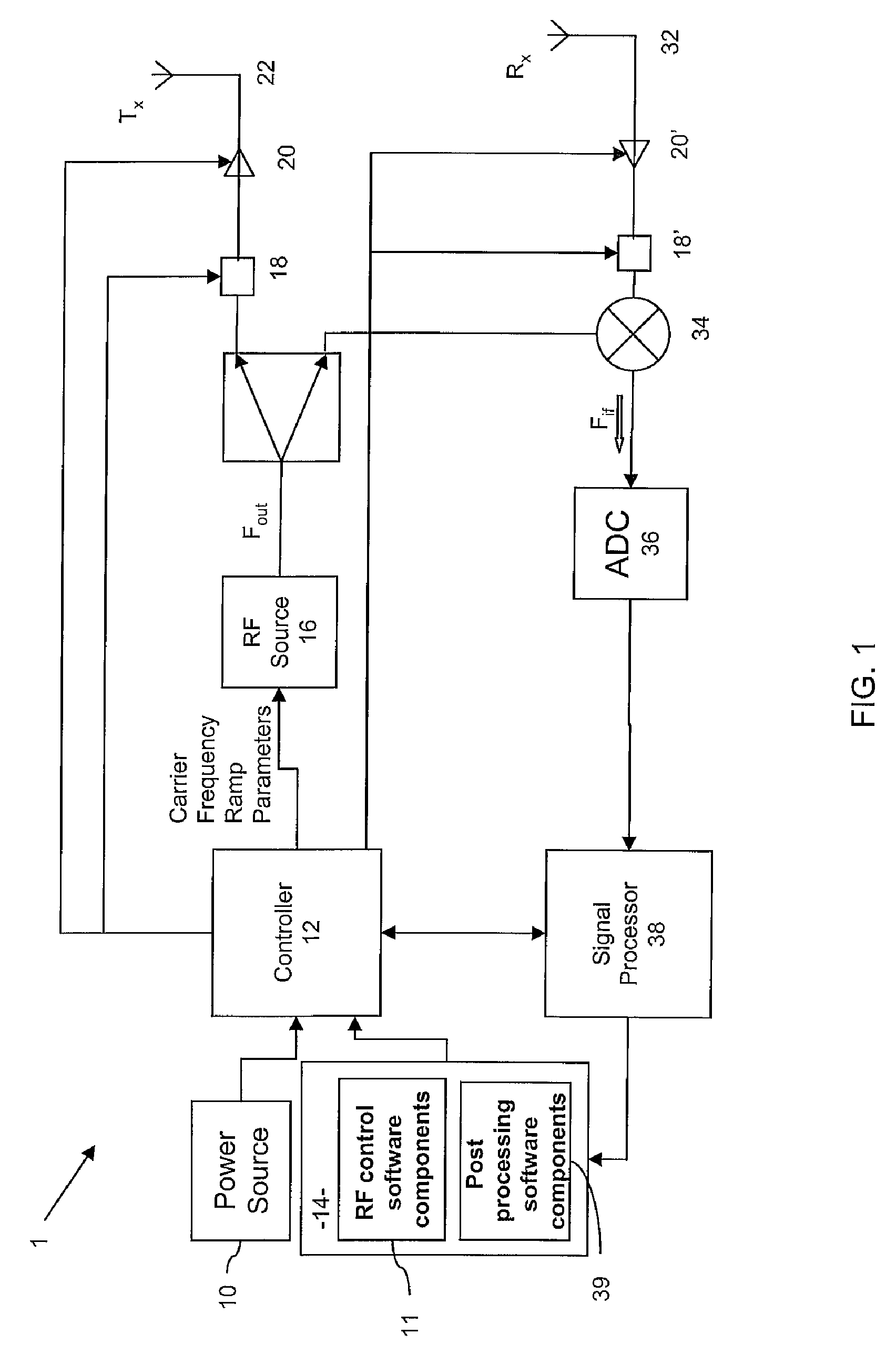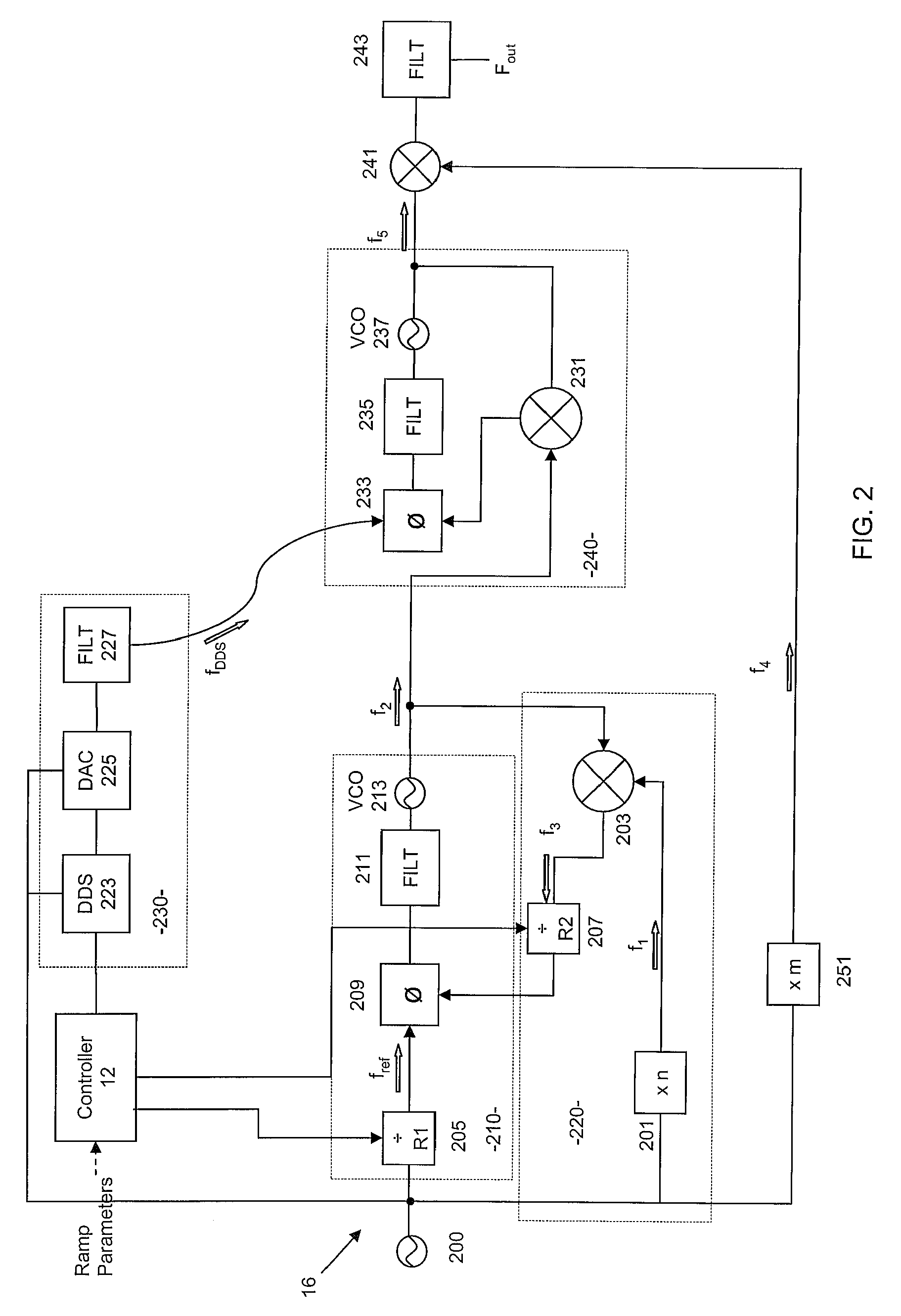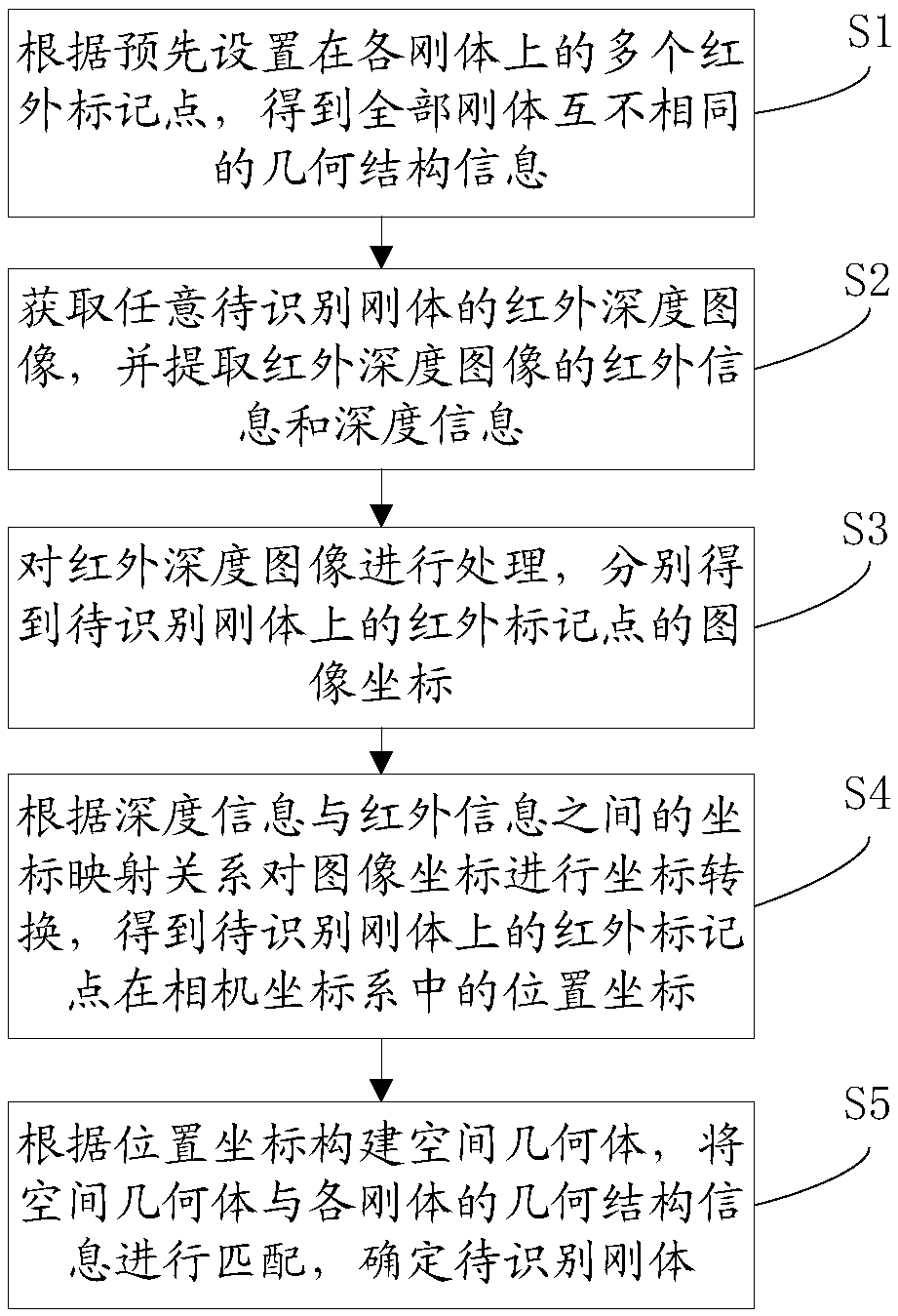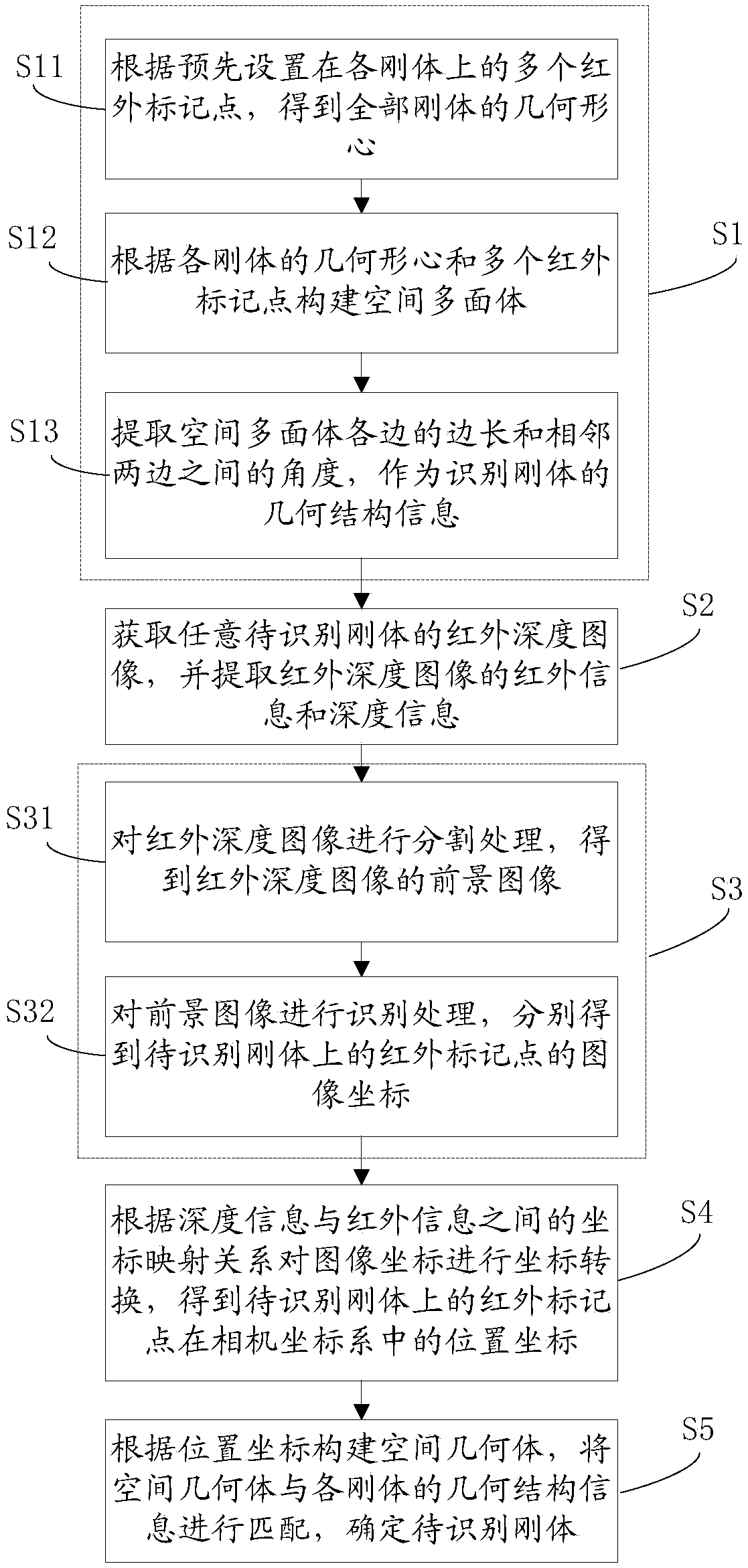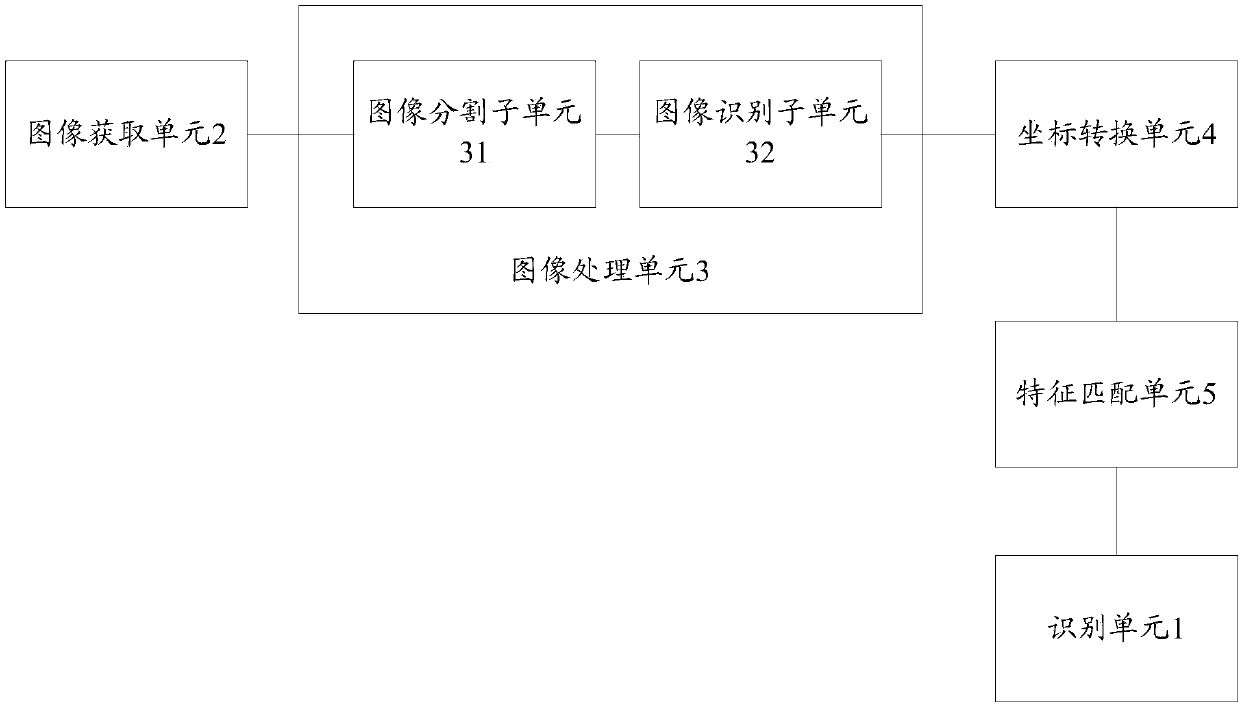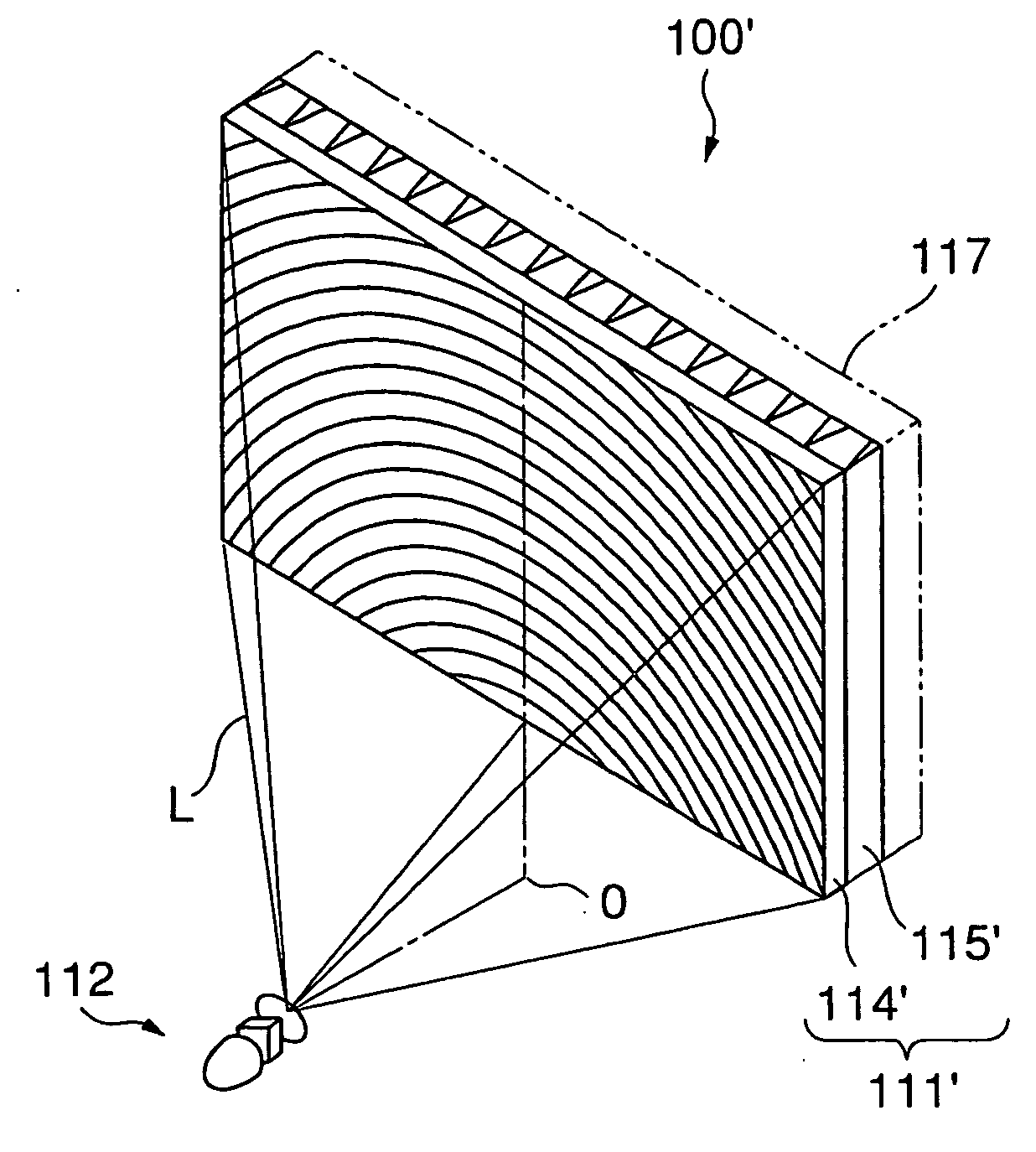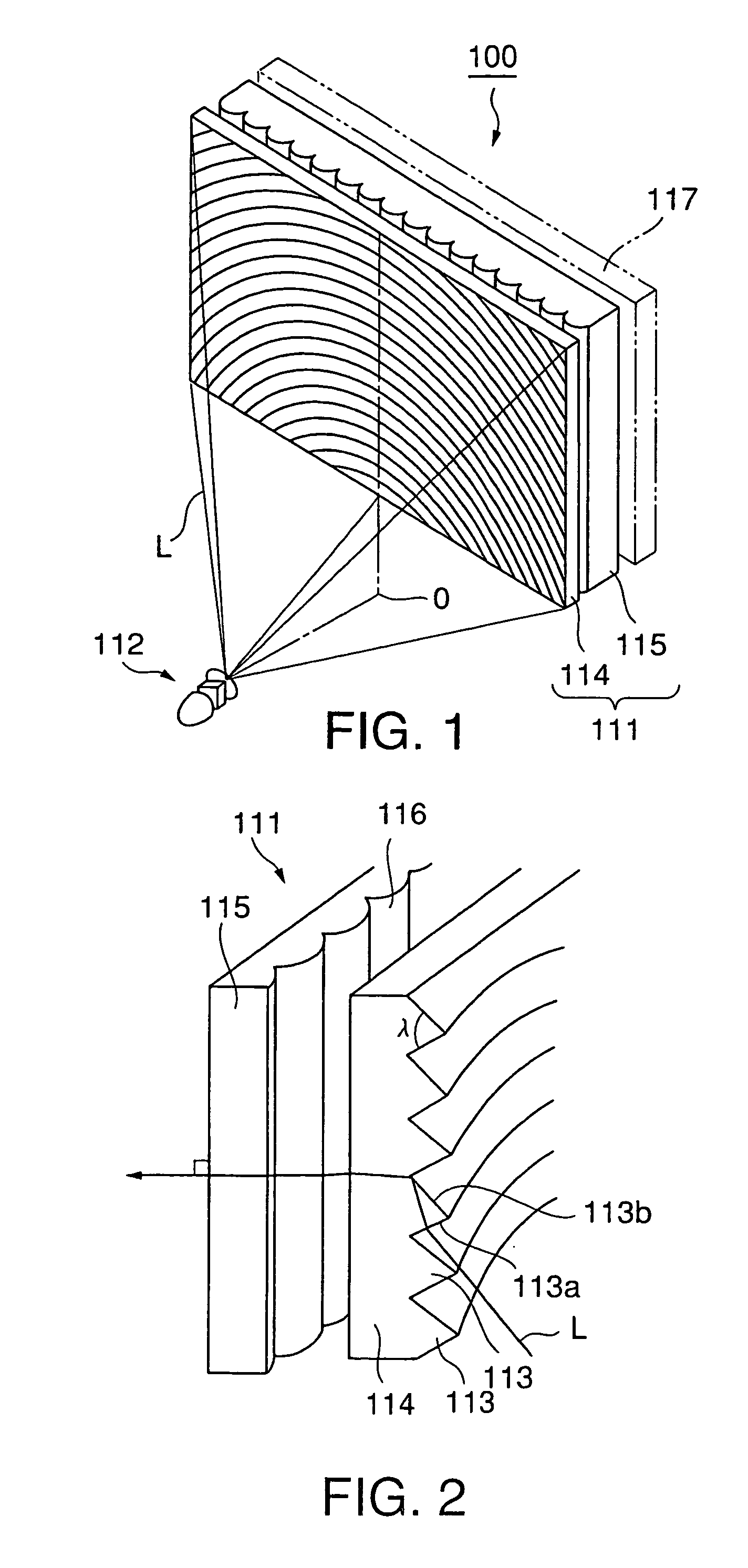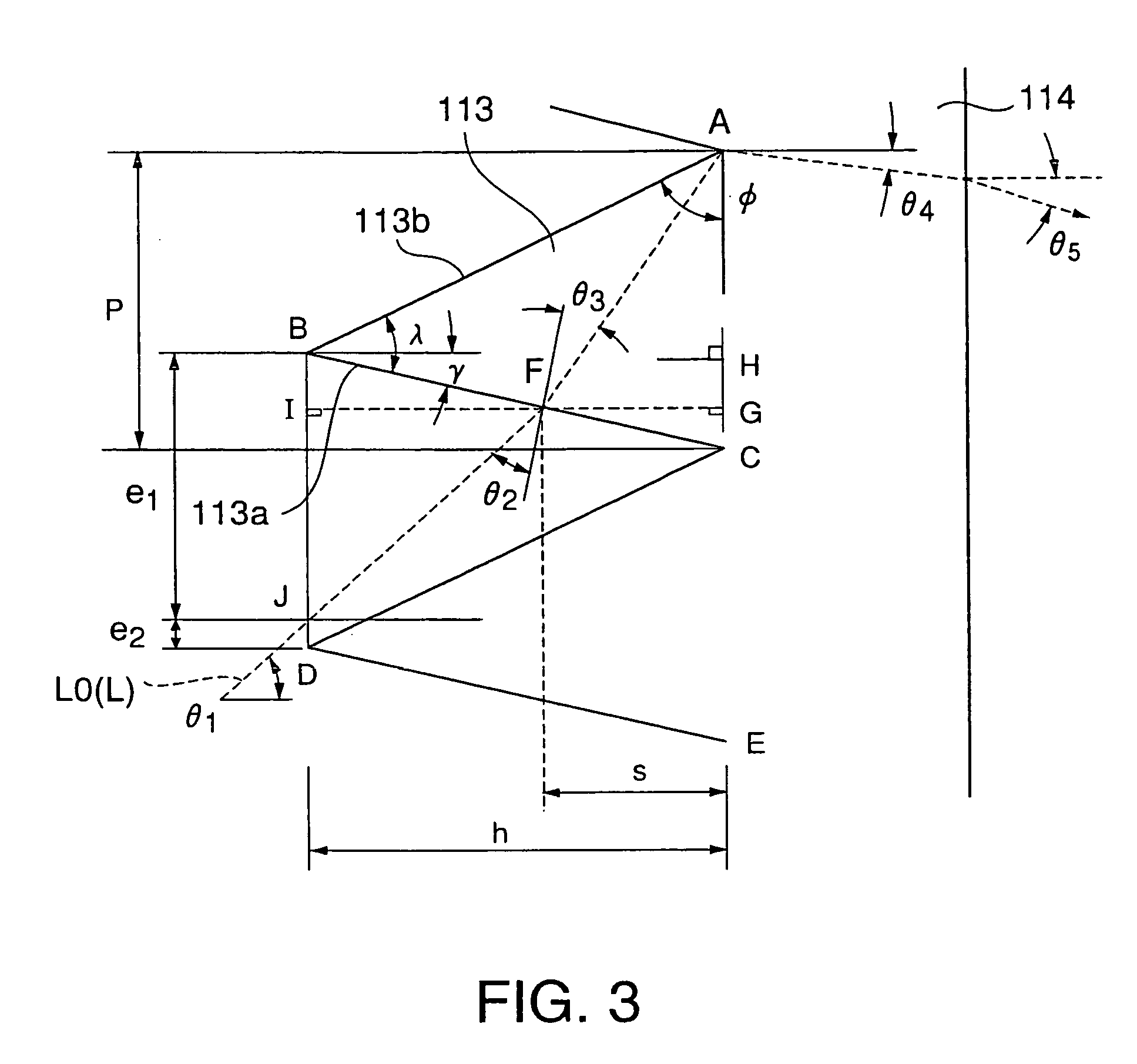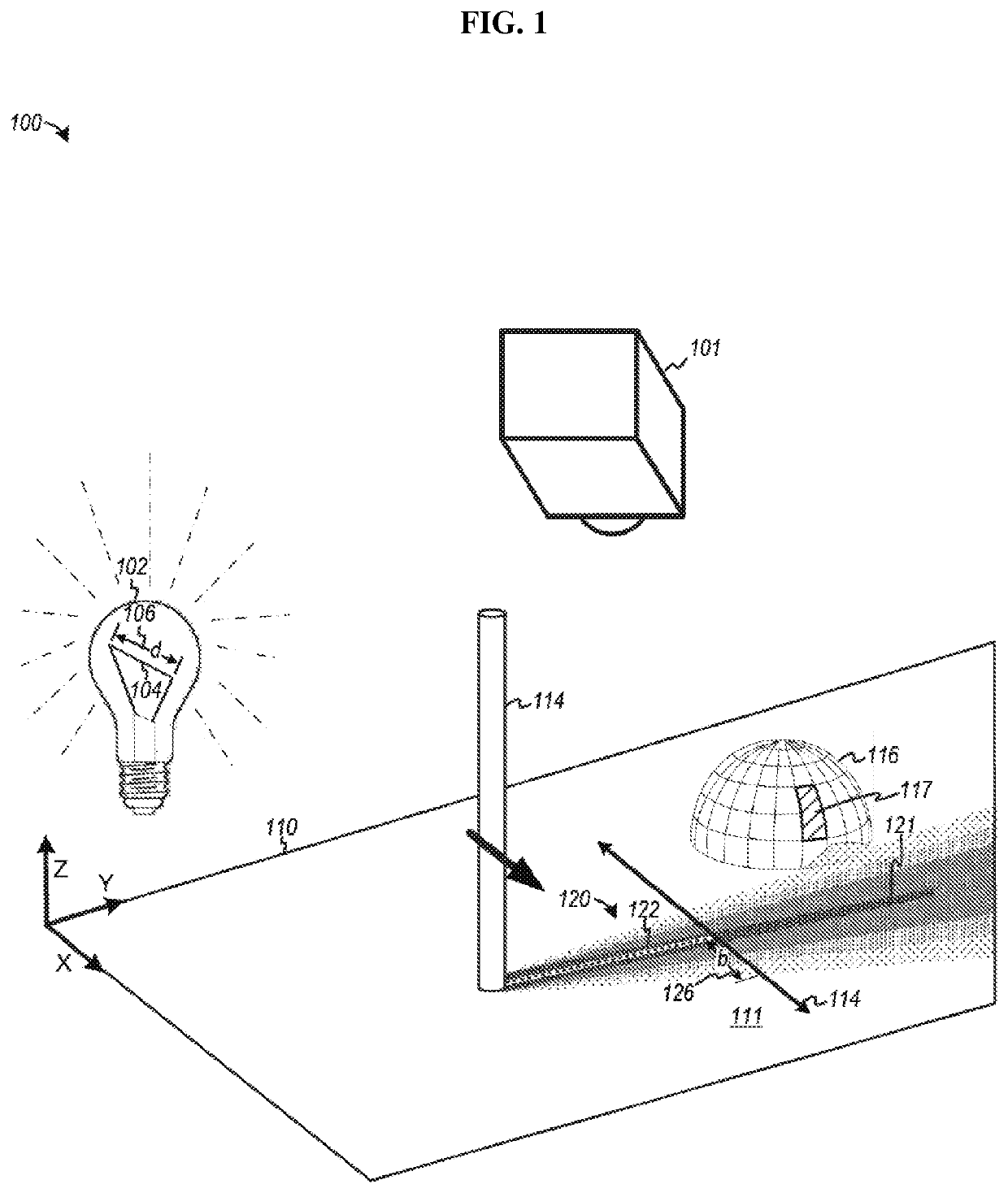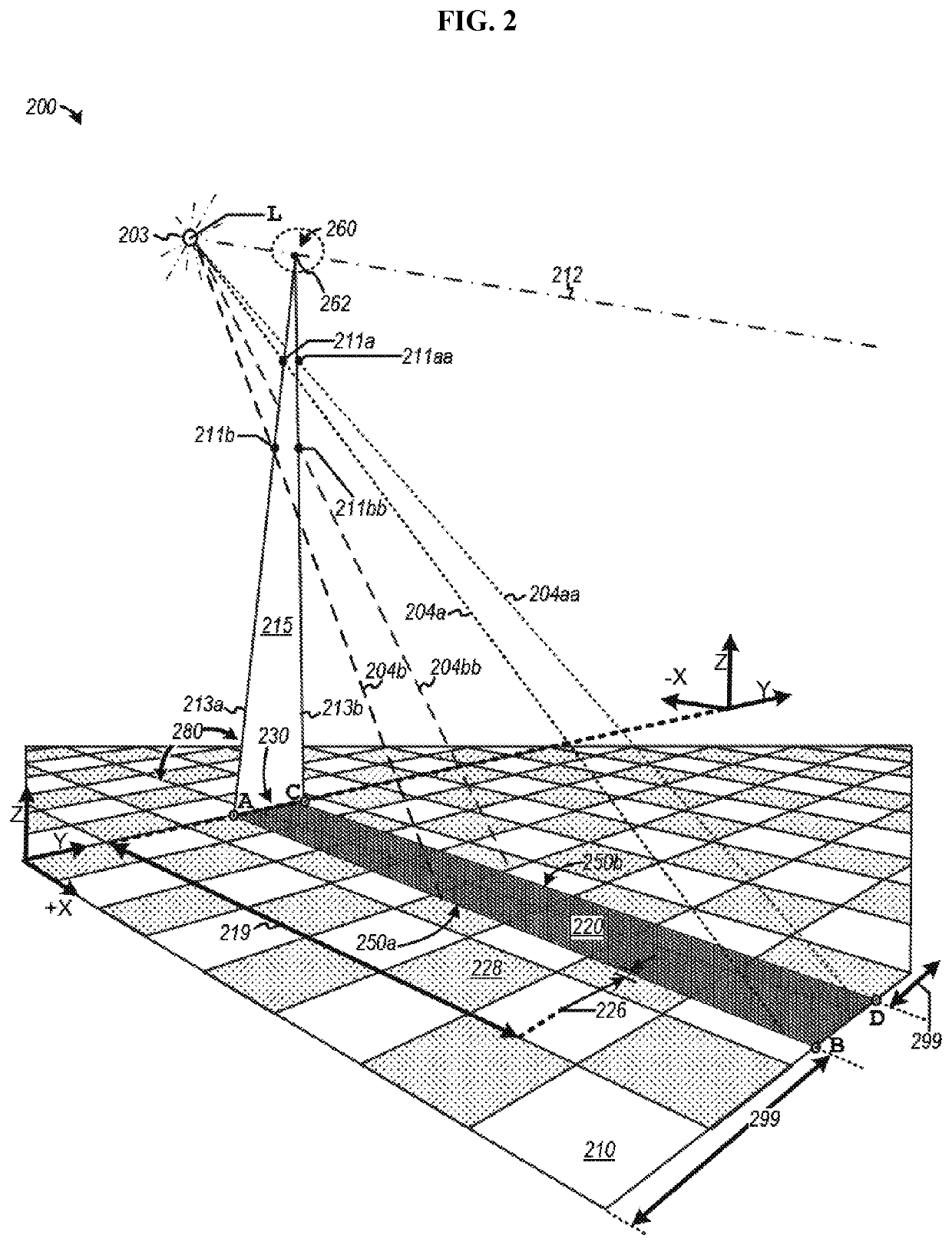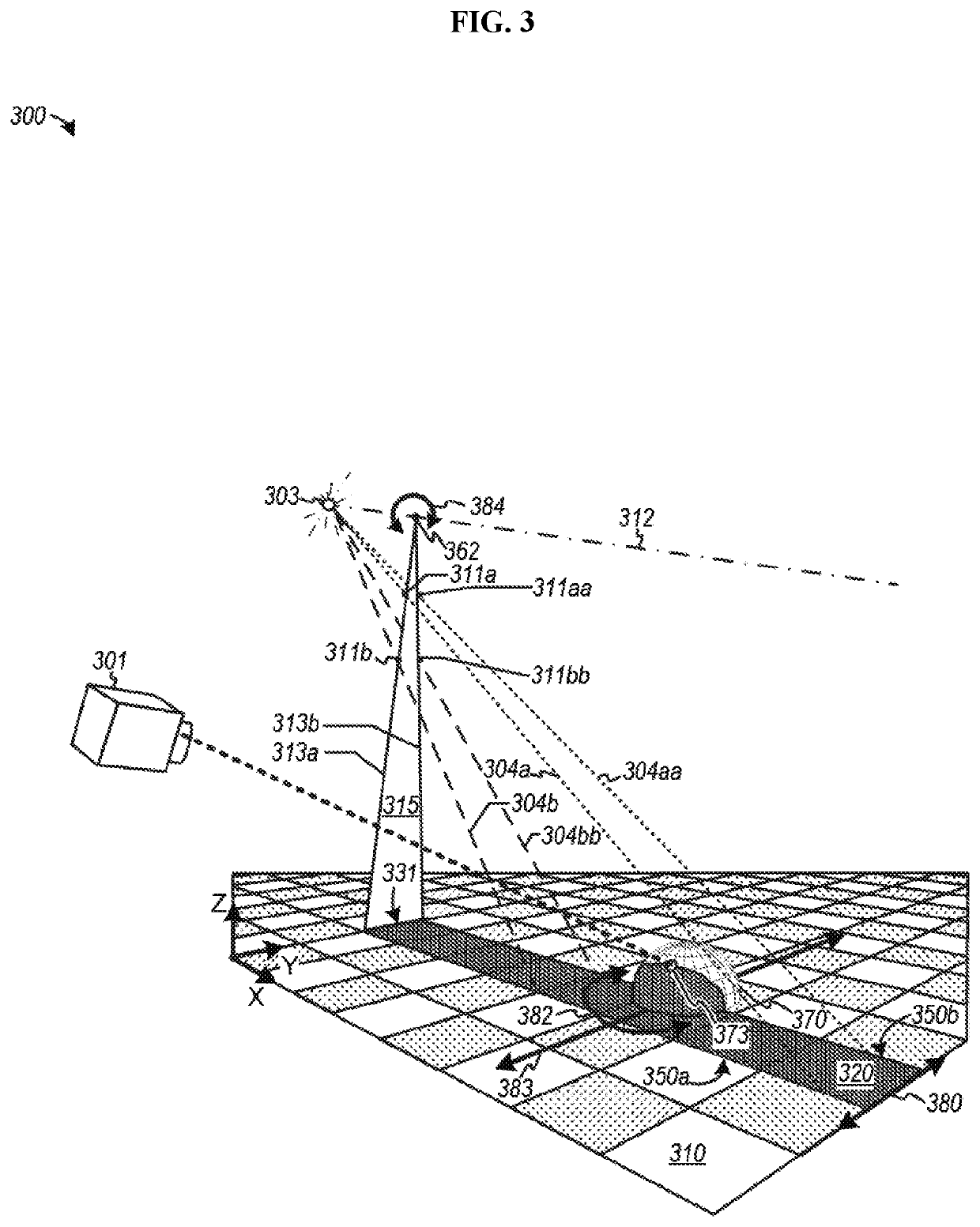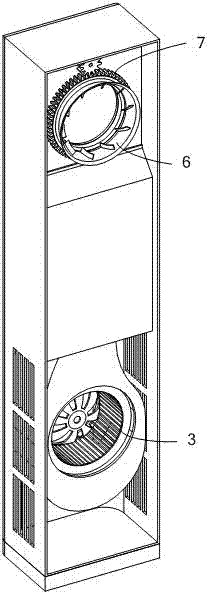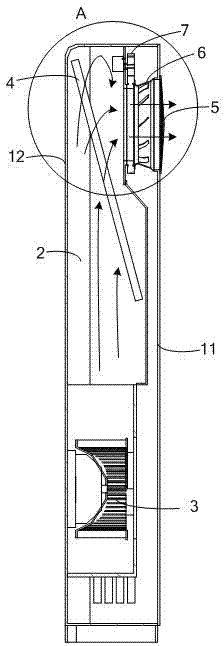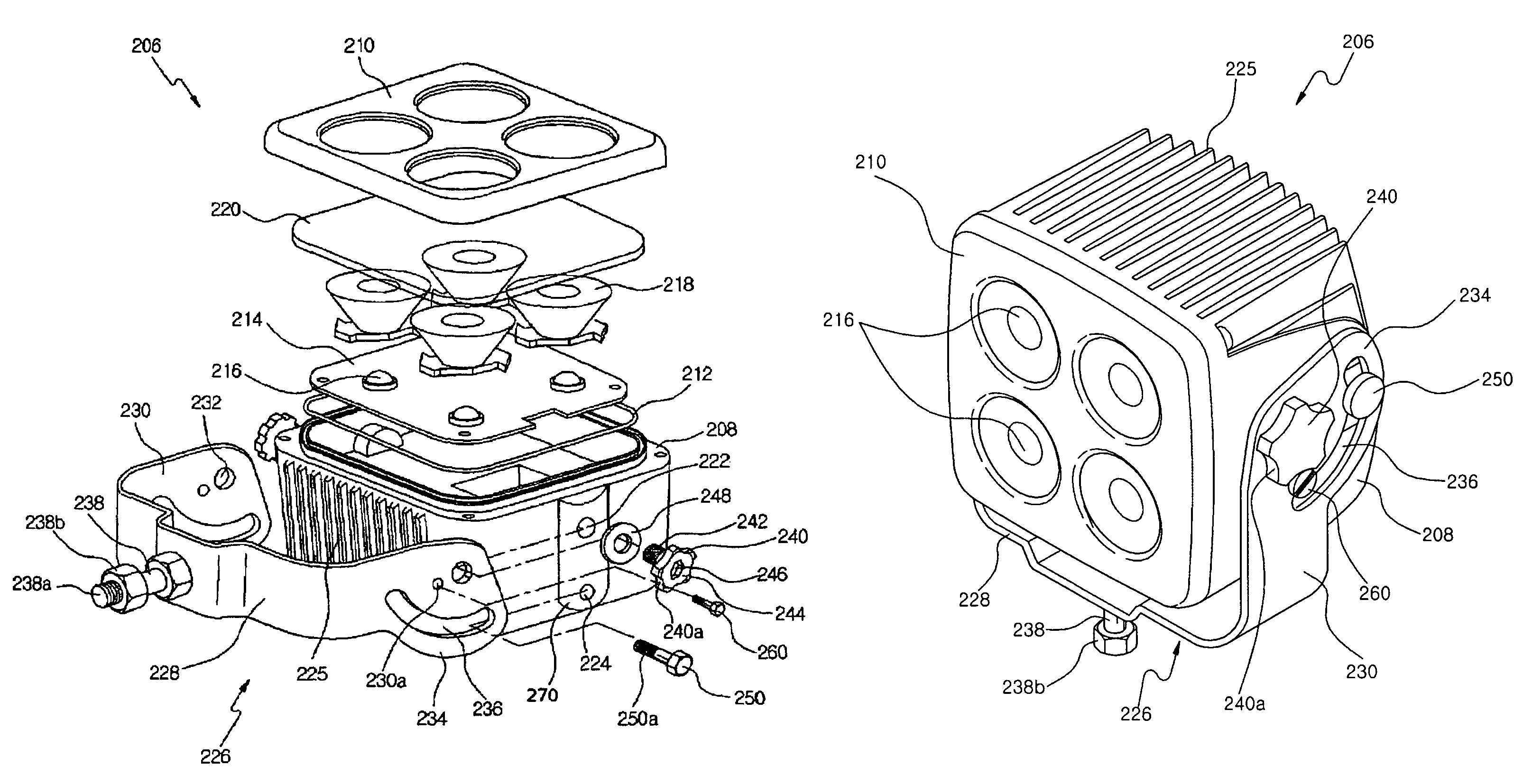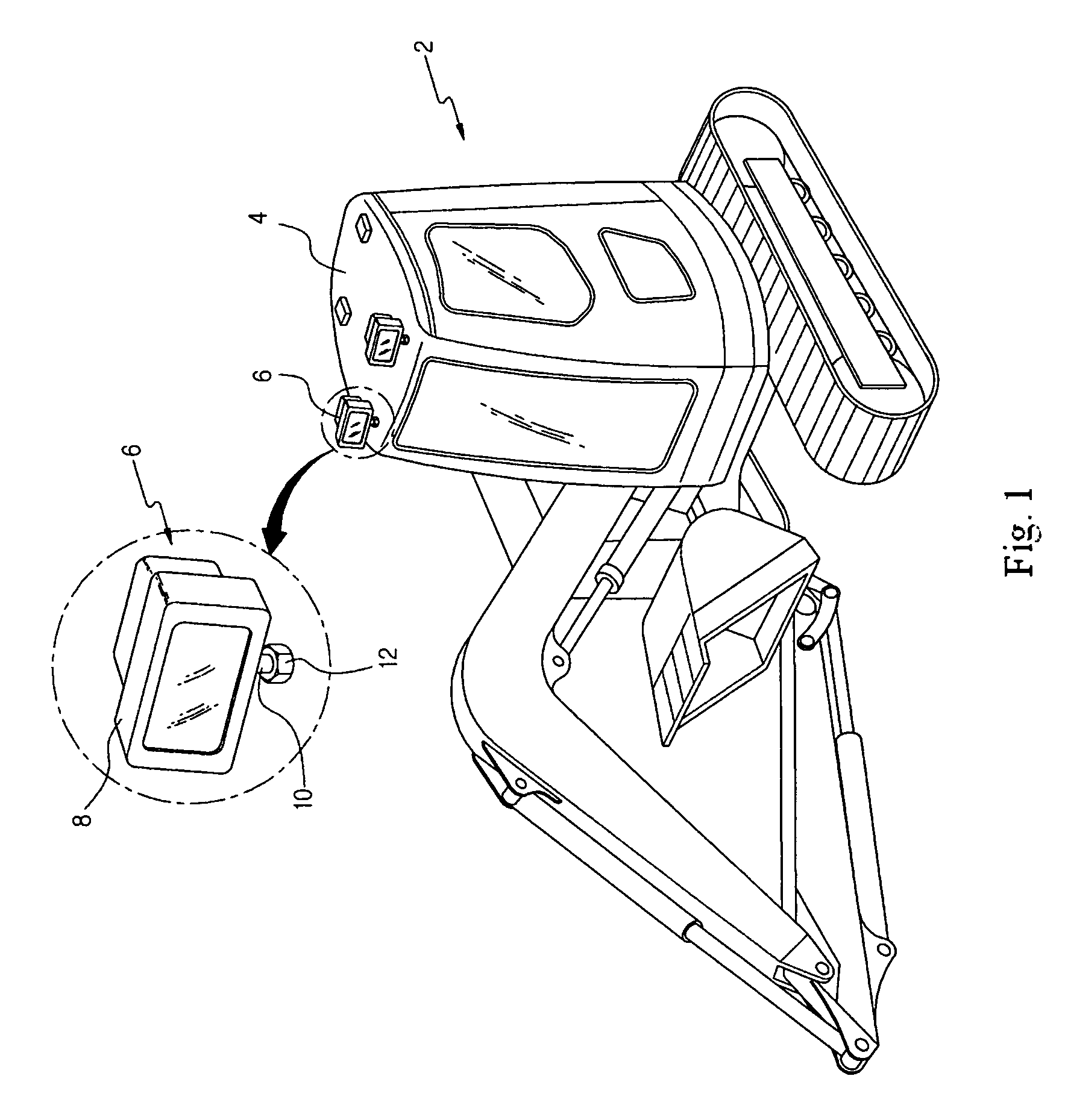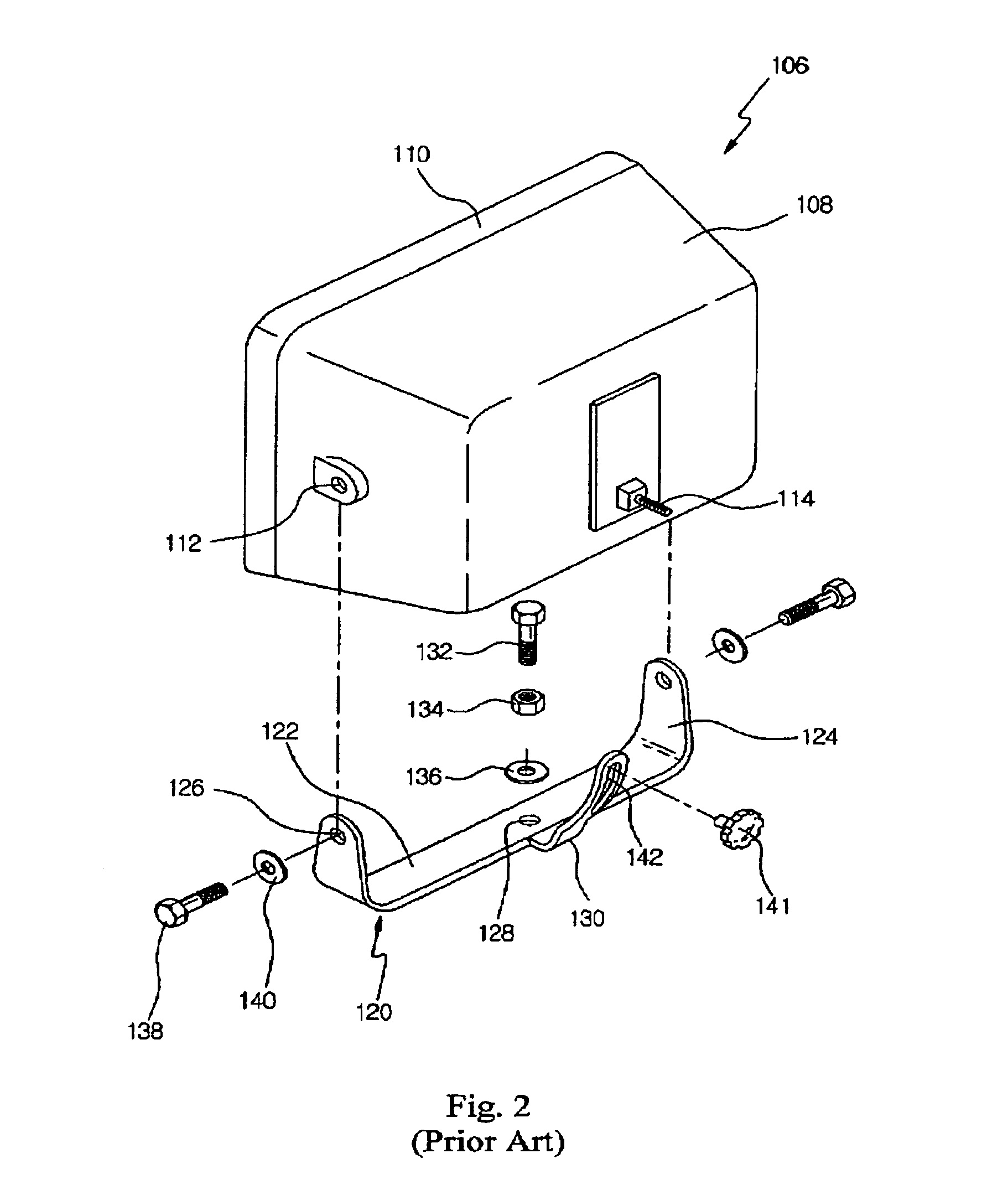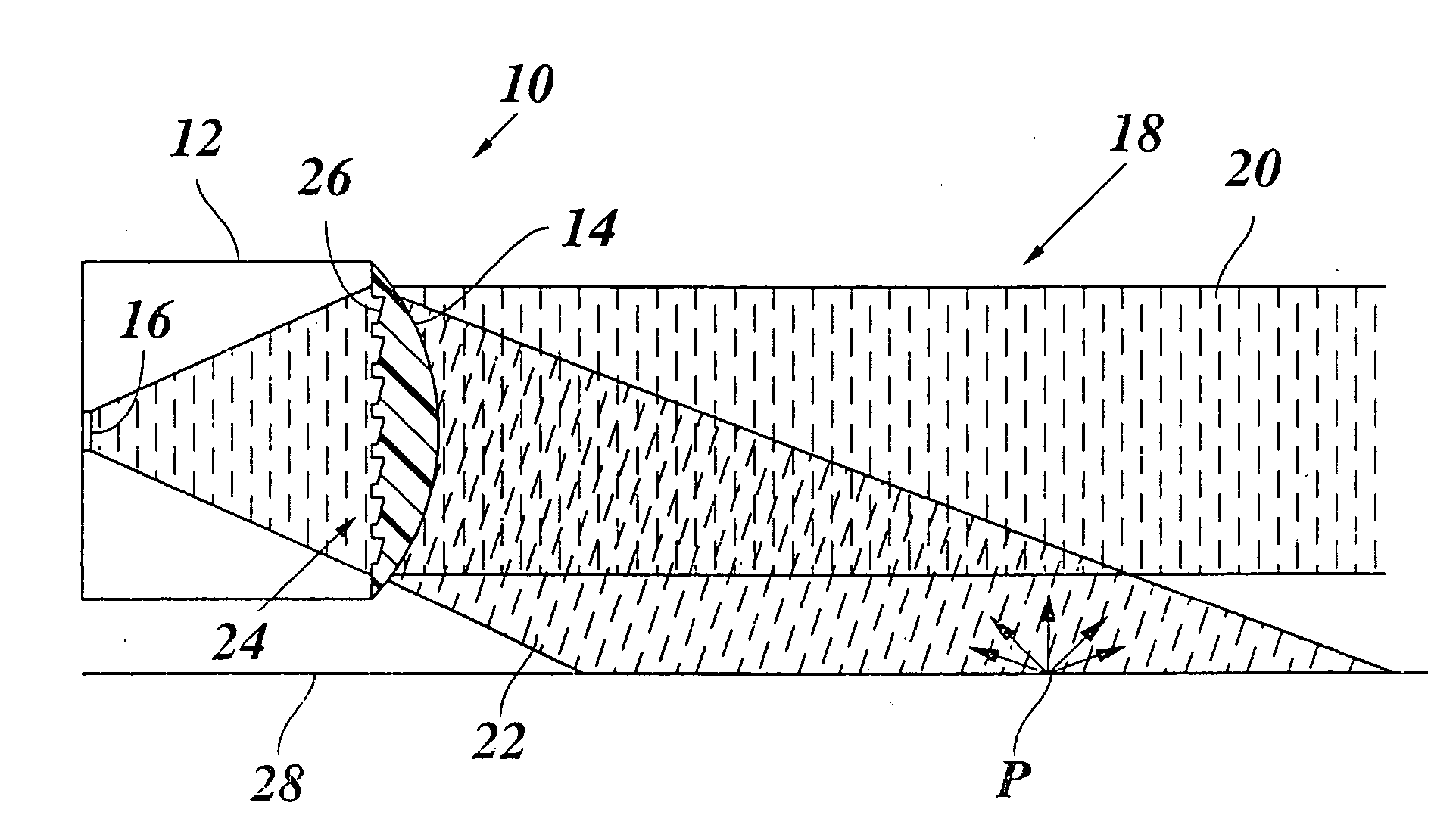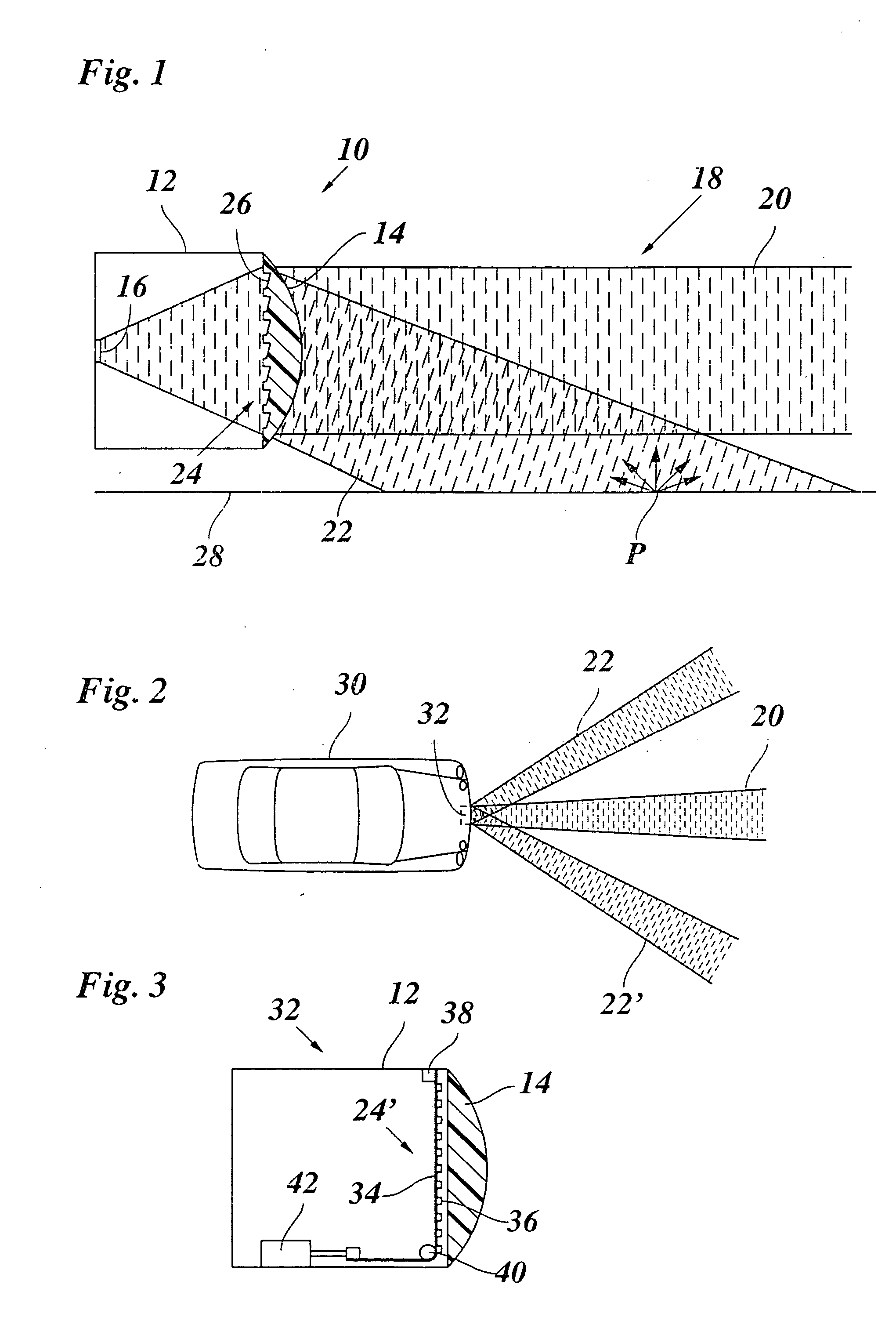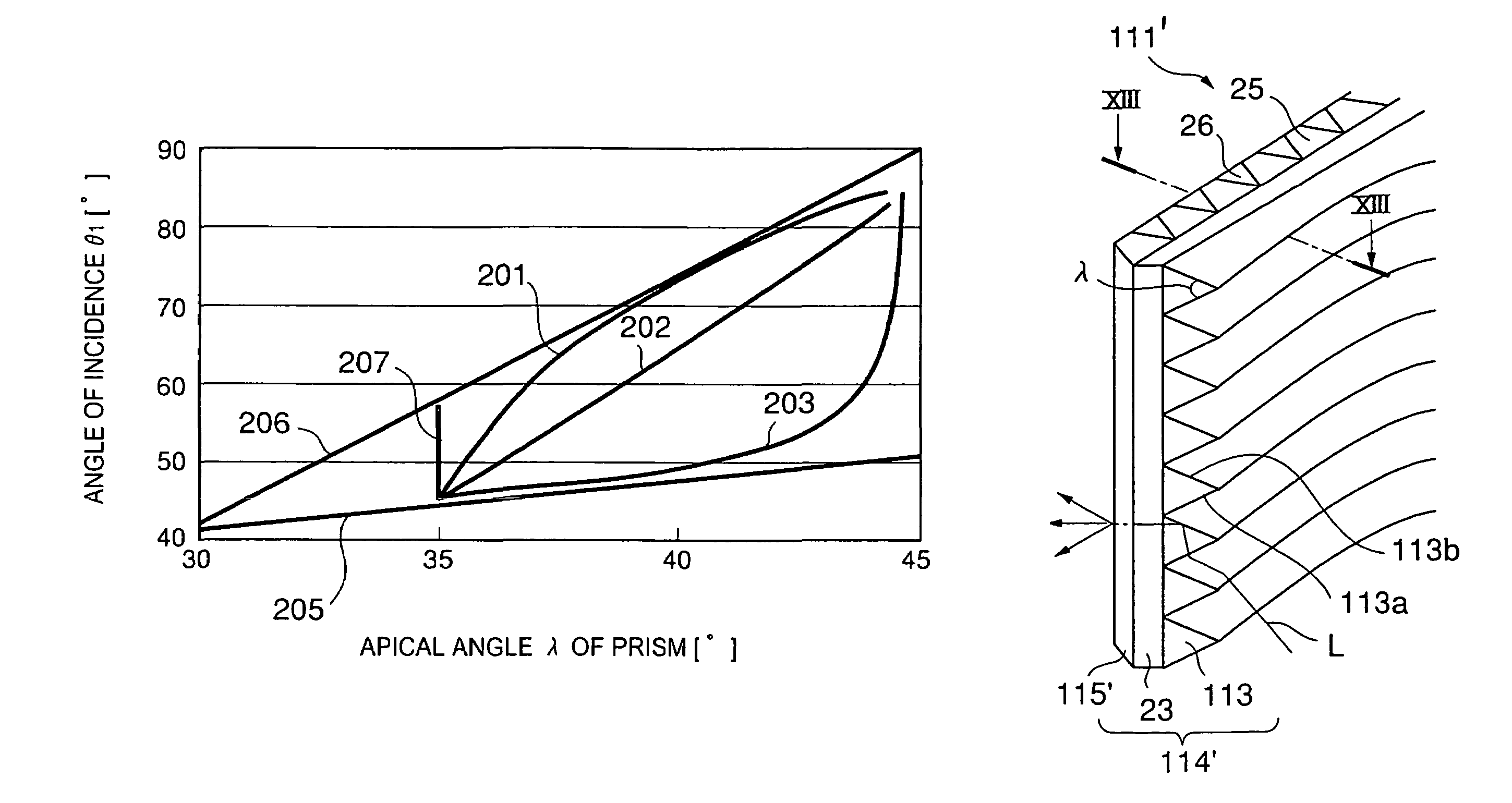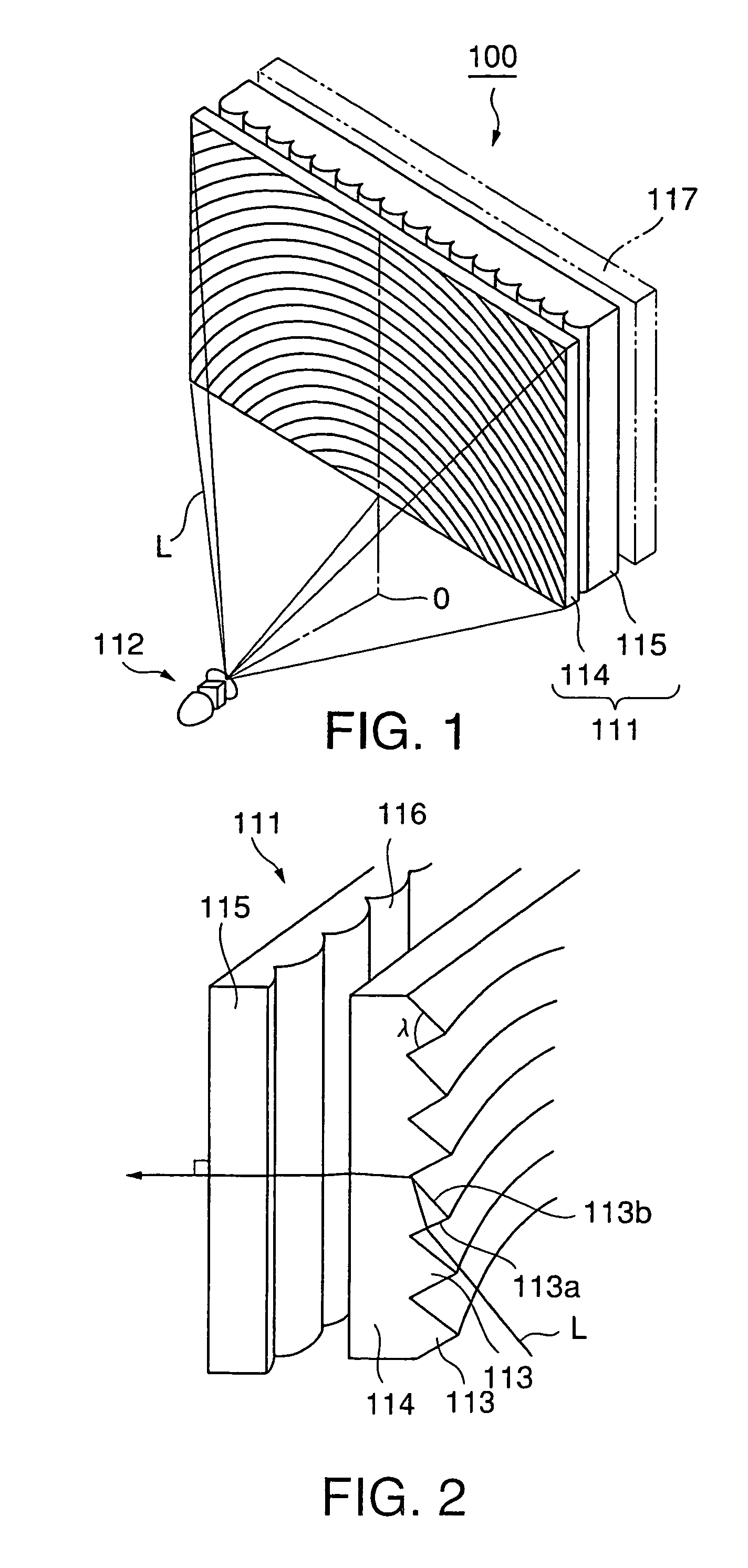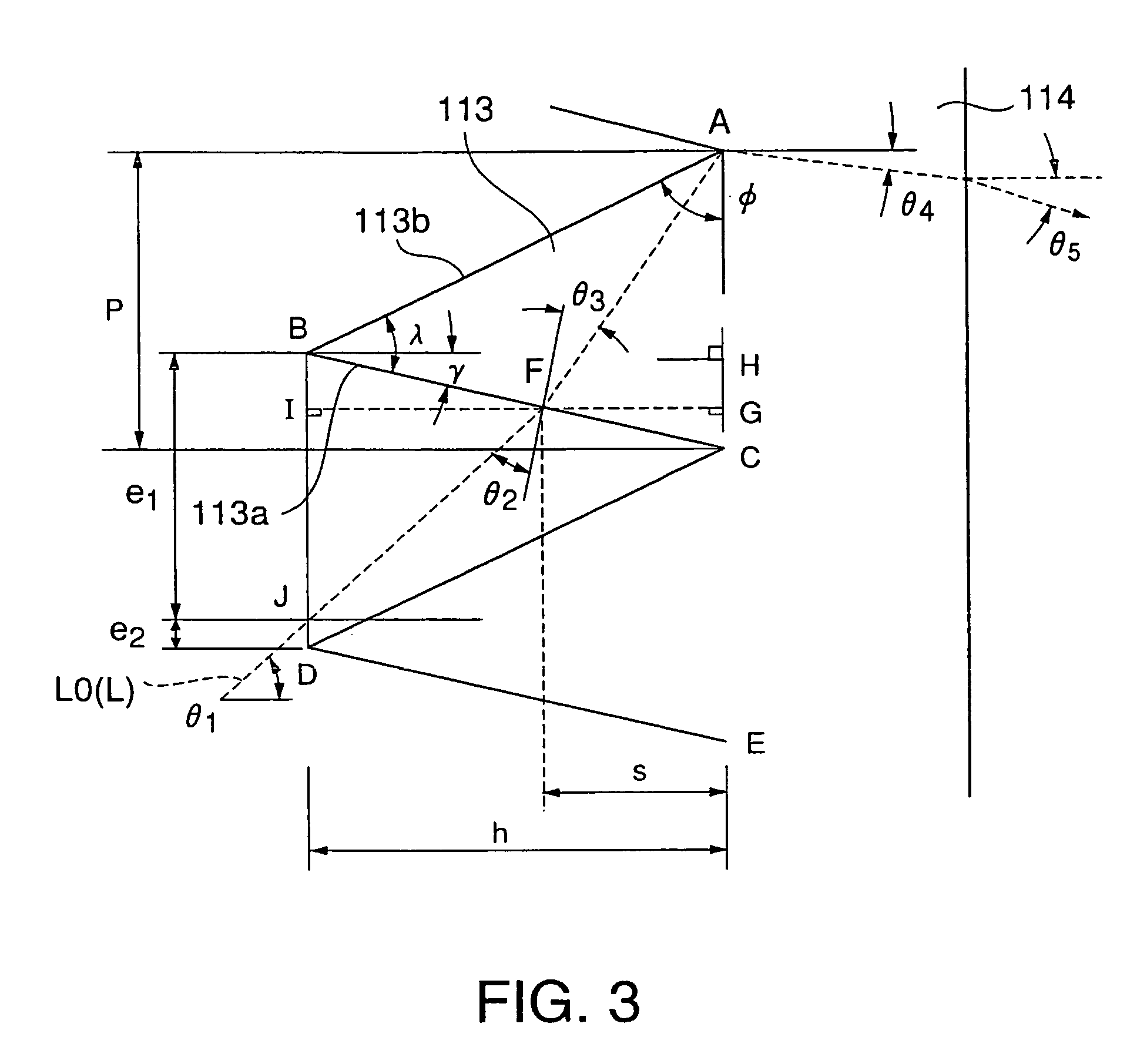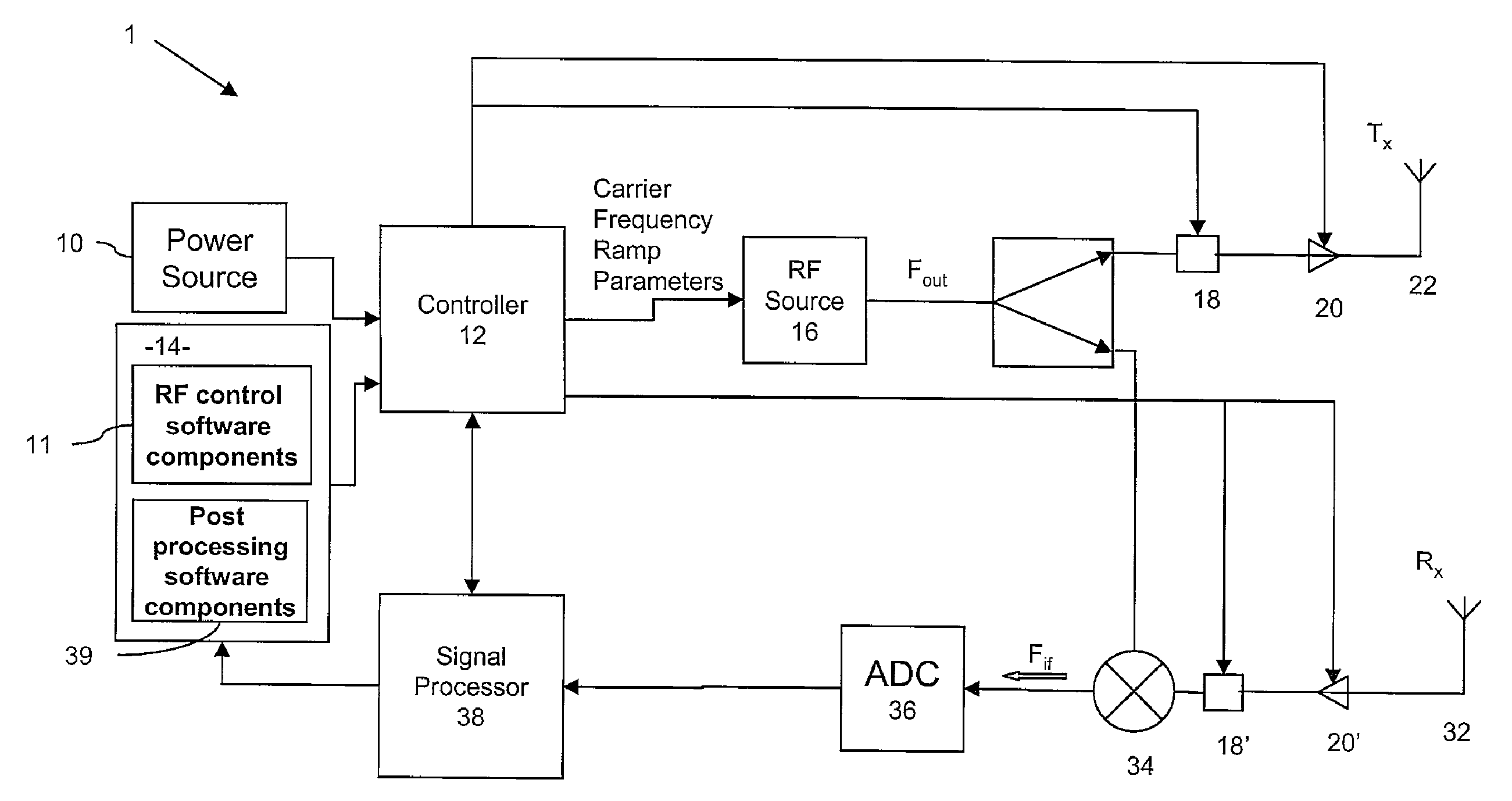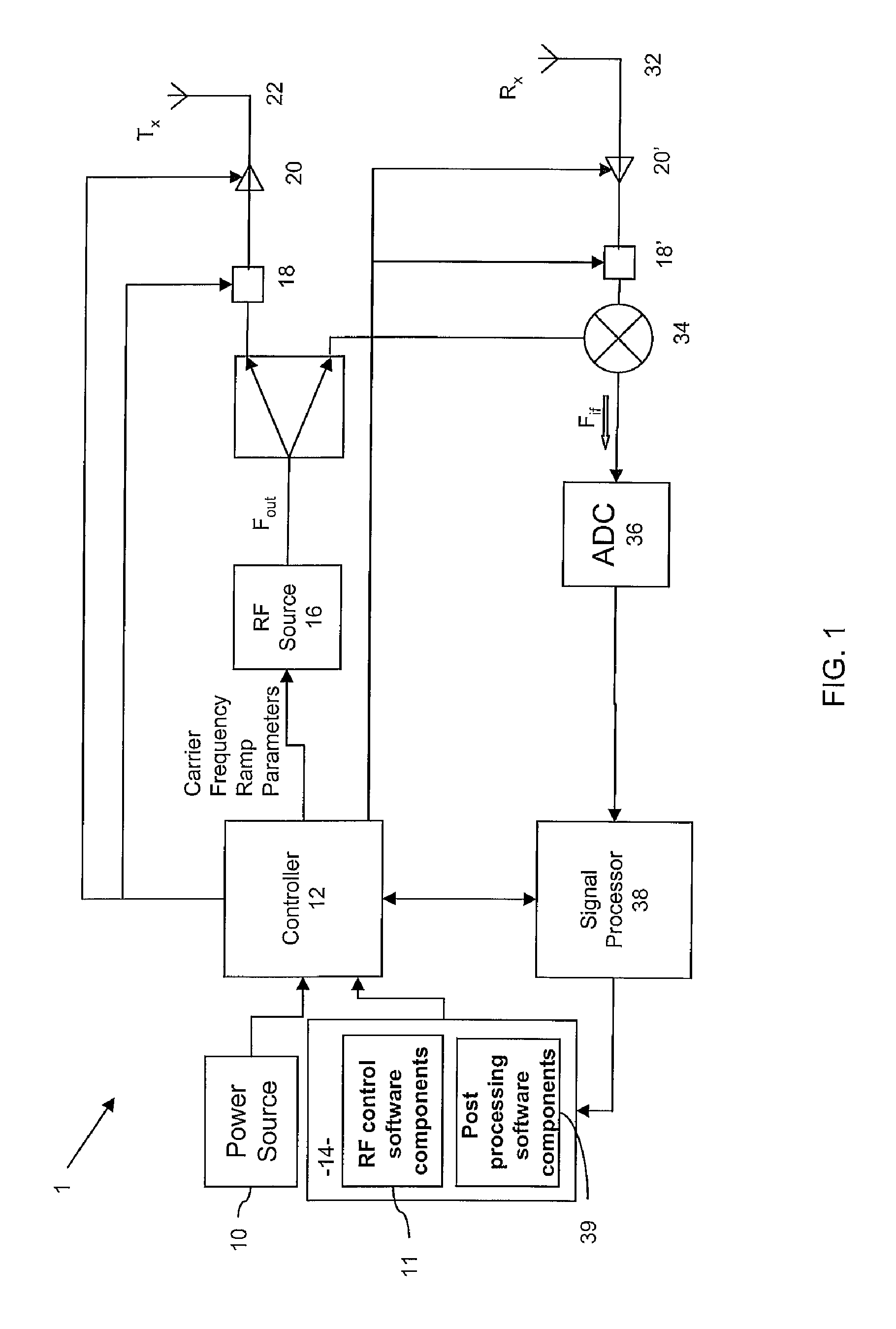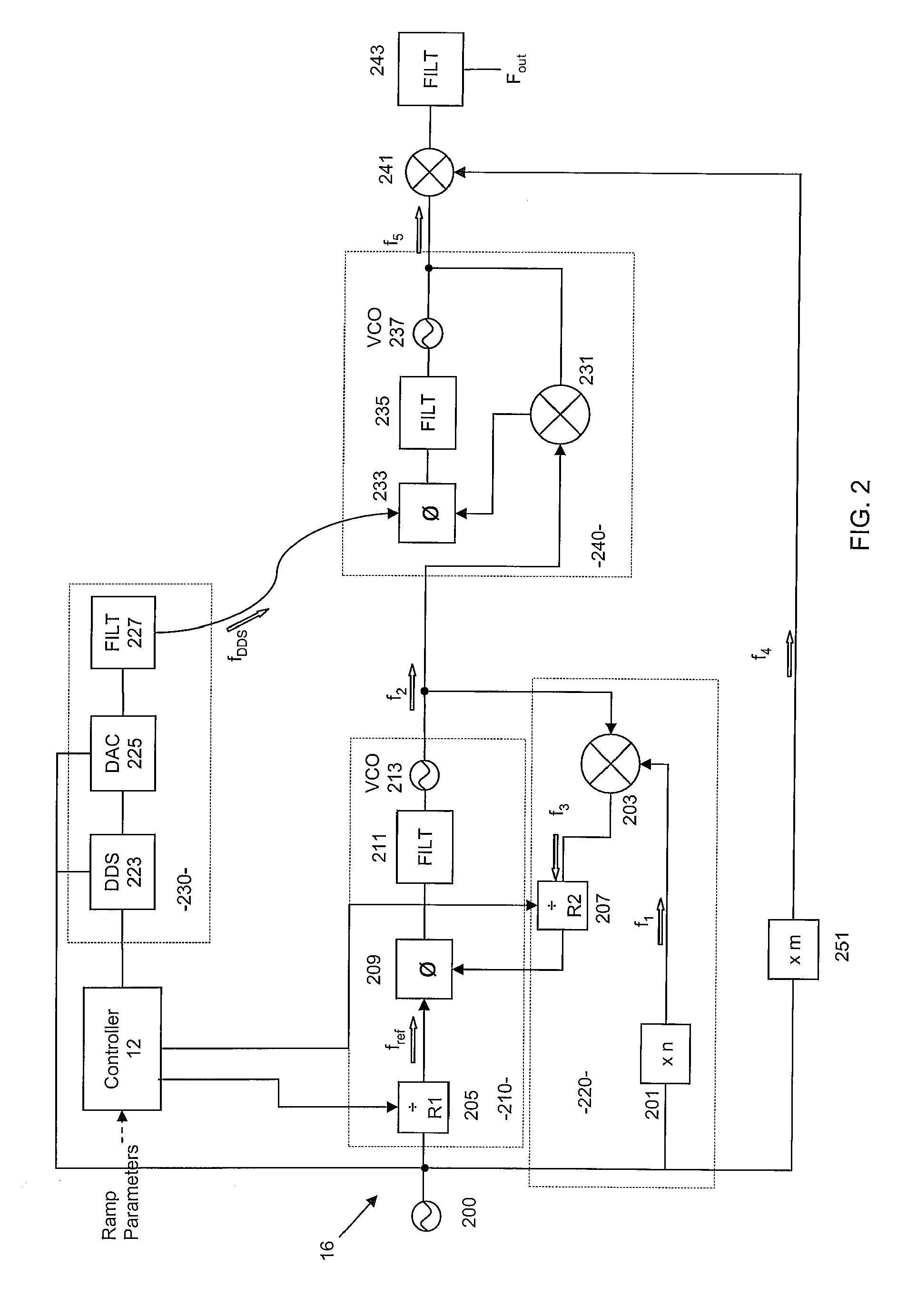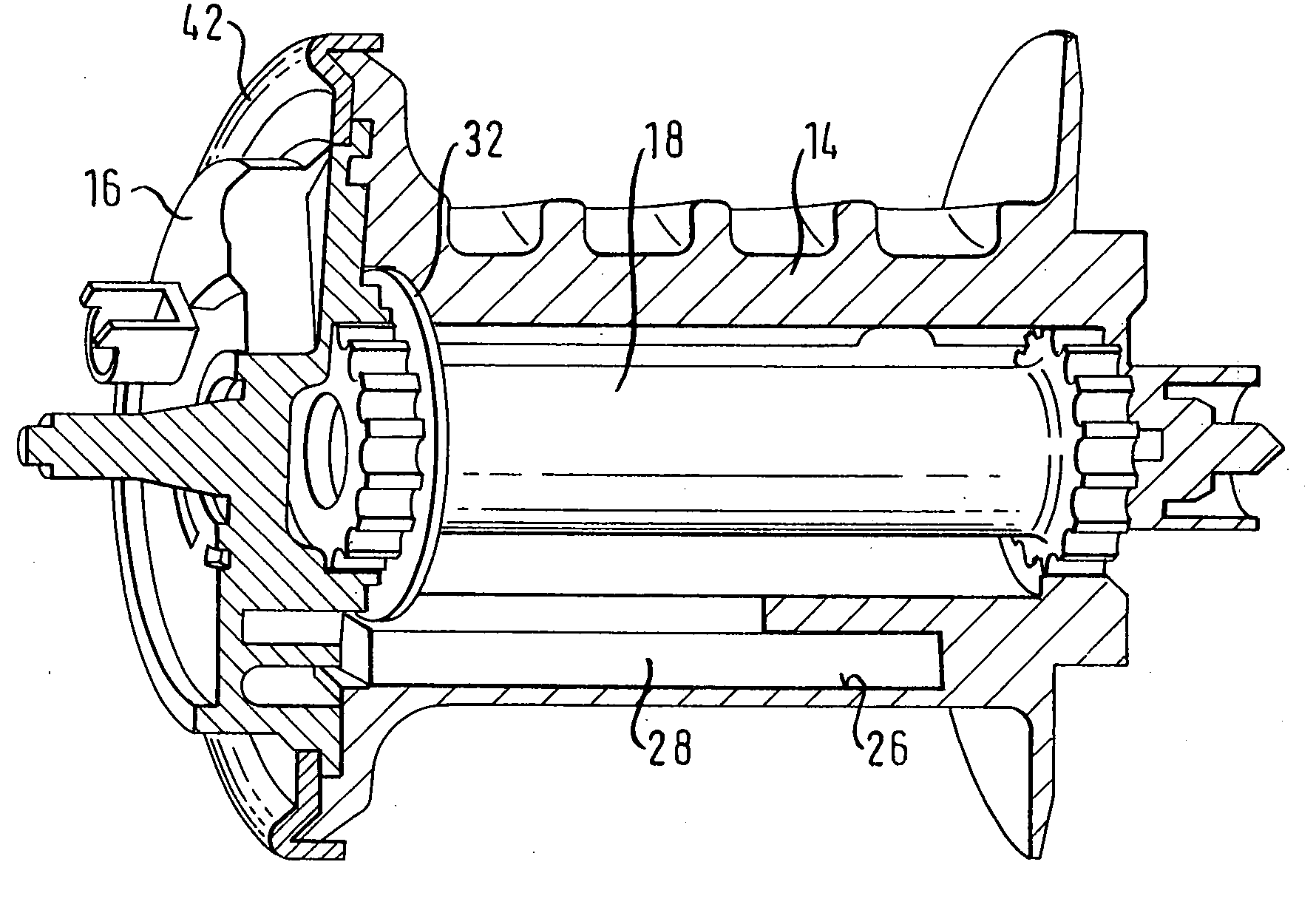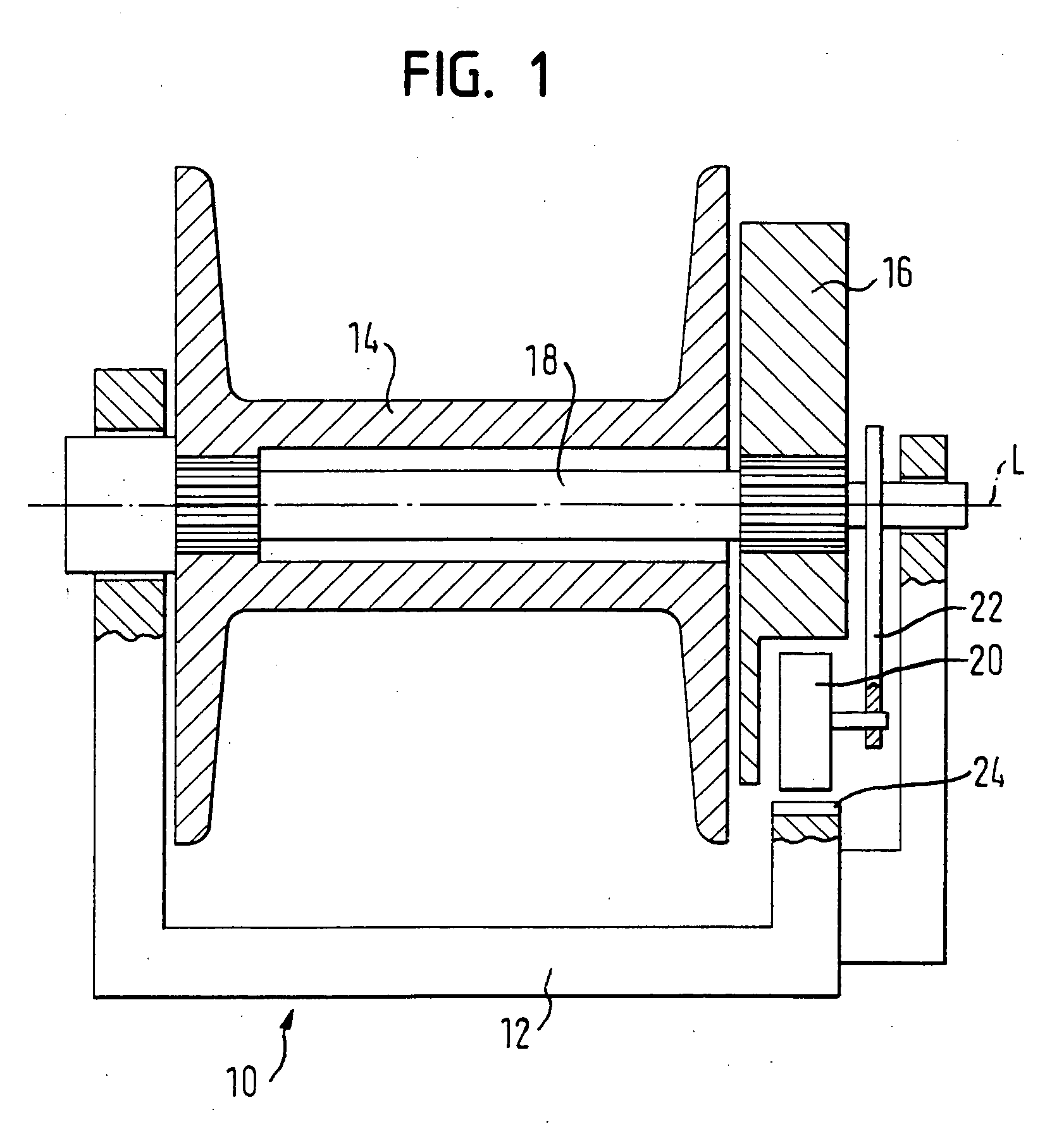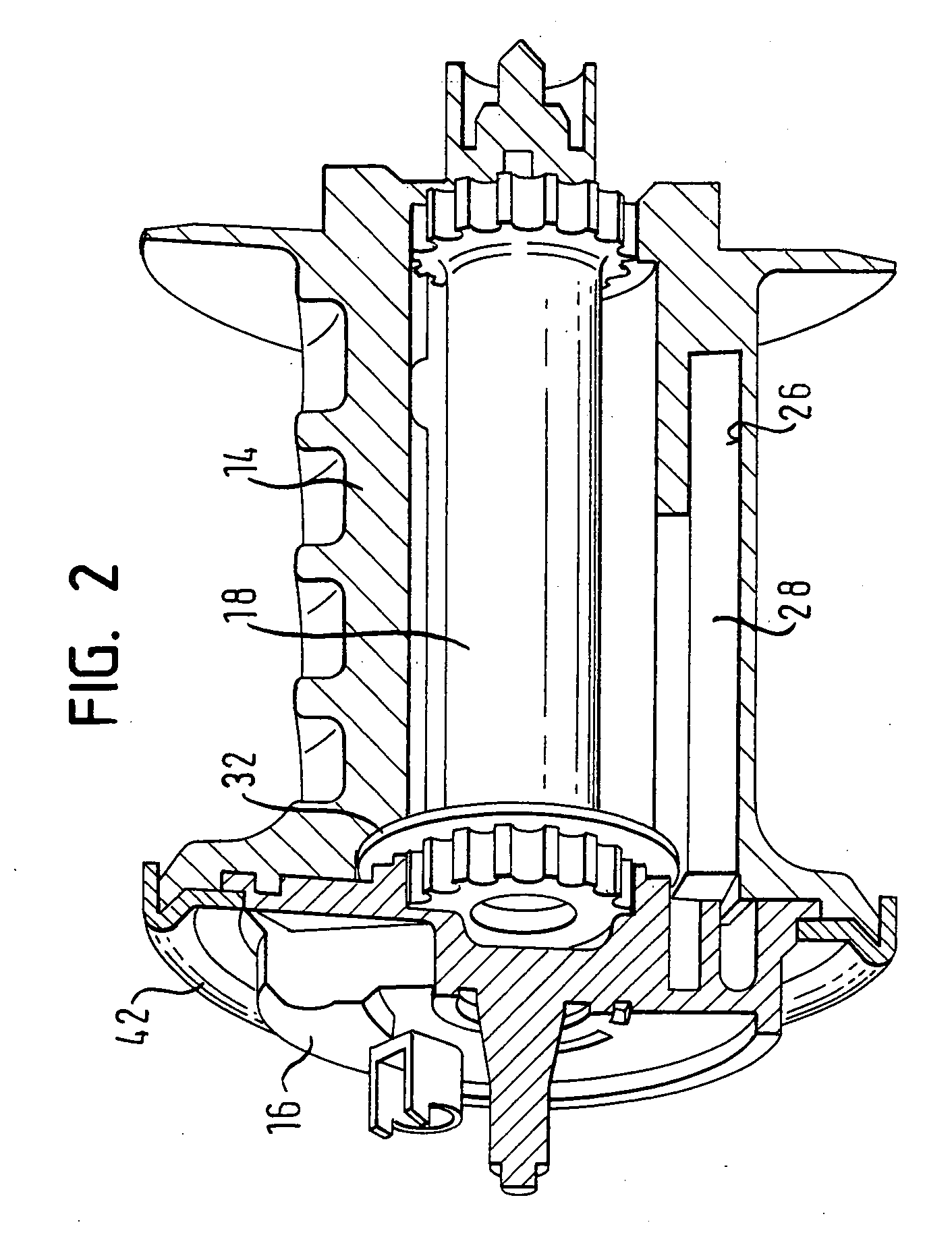Patents
Literature
143results about How to "Extended angle range" patented technology
Efficacy Topic
Property
Owner
Technical Advancement
Application Domain
Technology Topic
Technology Field Word
Patent Country/Region
Patent Type
Patent Status
Application Year
Inventor
Method of inserting an expandable intervertebral implant without overdistraction
InactiveUS20050273171A1Increase the separation distanceExtended angle rangeInternal osteosythesisBone implantSurgical approachMedicine
An artificial functional spinal unit including an expandable intervertebral implant that can be inserted via a posterior surgical approach and used with one or more facet replacement devices to provide an anatomically correct range of motion is described. Lordotic and non-lordotic expandable, articulating implants and cages are described, along with embodiments of facet replacement devices and instruments for insertion. Methods of insertion are also described.
Owner:FLEXUSPINE INC
Expandable articulating intervertebral implant with spacer
ActiveUS20050273174A1Increase the separation distanceExtended angle rangeInternal osteosythesisBone implantSurgical approachFunctional spinal unit
An artificial functional spinal unit including an expandable intervertebral implant that can be inserted via a posterior surgical approach and used with one or more facet replacement devices to provide an anatomically correct range of motion is described. Lordotic and non-lordotic expandable, articulating implants and cages are described, along with embodiments of facet replacement devices and instruments for insertion. Methods of insertion are also described.
Owner:FLEXUSPINE INC
Expandable articulating intervertebral implant with cam
ActiveUS20050273173A1Increase the separation distanceExtended angle rangeInternal osteosythesisBone implantSurgical approachFunctional spinal unit
Owner:FLEXUSPINE INC
LED lighting lamp tube
InactiveUS7476004B2Increase lumen outputLong lastingNon-electric lightingPoint-like light sourceInternational standardEffect light
A LED lighting lamp tube comprises a transparent tube body, lamp caps, electrode pins, pedestals mounted at the connection position of the transparent tube body and the lamp caps, a power supply converter located adjacent to the lamp caps and inside the tube body, a PCB and a plurality of LED mounted on the PCB. These LED are connected in parallel or in series, and a light-scattering plate may be disposed over these LED. A plurality of LED chips can be directly mounted on the light-scattering plate. The lamp caps and the electrode pins possess the same international standards as common lamp tubes.
Owner:CHAN KK
Implant system and fastening element for an implant system
InactiveUS20060195098A1Easy to optimizeStable supportSuture equipmentsInternal osteosythesisAxis of symmetryEngineering
The present invention relates to a fastening element for an implant system, which comprises at least two fastening elements fixable to bone parts or the like and at least one connecting element fixable to the at least two fastening elements, wherein the fastening element comprises a fastening part with a fastening portion at the distal end as well as a receiving part connected to the fastening part, wherein the receiving part comprises a connecting-element receiver for receiving the connecting element as well as a fixing element for fixing the fastening element in the connecting-element receiver, wherein the connecting-element receiver is designed asymmetrically in relation to an axis of symmetry or longitudinal axis of the fixing element.
Owner:AESCULAP AG
LED Lighting Lamp Tube
InactiveUS20080037245A1Increase lumen outputLong life-timeNon-electric lightingPoint-like light sourceInternational standardEffect light
Owner:CHAN KK
Expandable articulating intervertebral implant
ActiveUS20050273175A1Increase the separation distanceExtended angle rangeInternal osteosythesisBone implantSurgical approachMedicine
An artificial functional spinal unit including an expandable intervertebral implant that can be inserted via a posterior surgical approach and used with one or more facet replacement devices to provide an anatomically correct range of motion is described. Lordotic and non-lordotic expandable, articulating implants and cages are described, along with embodiments of facet replacement devices and instruments for insertion. Methods of insertion are also described.
Owner:FLEXUSPINE INC
Structure of light bulb
InactiveUS20100148650A1Extended angle rangeImprove practicalityPoint-like light sourceLamp incadescent bodiesLight guideElectrical connection
A light bulb includes a bulb body, a light guide, and at least one light-emitting diode (LED). The bulb body includes a light-transmitting shell and a conductive base. The light-transmitting shell is mounted to the base. A circuit board is fixed at one side of the base and is in electrical connection with the base. The LED is mounted to the circuit board that is arranged at one side of the base, and the LED is in electrical connection with the circuit board to provide an internal light source. The light guide is arranged inside the bulb body and has an end forming a cavity that receives the LED therein, whereby the light guide is set erect on the base. As such, advantages of easy manufacturing, reduced costs, operation safety, increased angular range of illumination, and extended lifespan can be provided.
Owner:U HOW
Surface inspection apparatus
ActiveUS20100091272A1Quickly and easily detecting defectImprove accuracyScattering properties measurementsCharacter and pattern recognitionLight beamLength wave
A surface inspection apparatus includes an irradiating unit that has a plurality of light sources that respectively emit a plurality of illumination light beams having different wavelength ranges, and irradiates an inspection surface as a surface of a body to be inspected with the illumination light beams, in a condition where the light sources are located adjacent to each other and arranged in a given order along the inspection surface, an imaging unit that images reflected light when the illumination light beams are reflected by the inspection surface, so as to obtain a plurality of items of image data corresponding to the respective wavelength ranges, and a control unit that detects a detection object on the inspection surface, based on the items of image data corresponding to the respective wavelength ranges which are obtained by the imaging unit.
Owner:TOYOTA JIDOSHA KK
Rotary electric shaver
InactiveUS20070124936A1Extended angle rangeImprove contact tightnessMetal working apparatusElectric machineryEngineering
A rotary electric shaver including a plurality of substantially disc-shaped outer cutters, which are provided in the upper part of a shaver main body housing therein a motor, and inner cutters, which engage the outer cutters from below and are rotationally driven by the motor so as to cut hair entering into the hair introduction openings formed in the outer cutters; and in addition, substantially cylindrical cutter frames 18 for respectively holding the outer cutters in a depressible manner are provided so that cutter frames 18 can pivot in the upper surface of the shaver main body.
Owner:IZUMI PROD CO
LED illumination apparatus
ActiveUS20120134133A1Extended angle rangeWide light distributionPlanar light sourcesPoint-like light sourceOptoelectronicsLight source
An LED illumination apparatus realizes wide light distribution by increasing the angular range of radiation, and achieves uniform intensity of light through the arrangement of the position of a plurality of light sources. The LED illumination apparatus includes a substrate, a first light source disposed on a peripheral area of the substrate, a second light source disposed on an inner area of the substrate, and a reflector disposed between the first light source and the second light source, wherein the reflector is configured to reflect light that is generated by the first light source.
Owner:SEOUL SEMICONDUCTOR
Backlight and display
InactiveUS20100157577A1Expand the range of displayThinner backlightPlanar/plate-like light guidesIlluminated signsSpatial light modulatorEdge surface
A backlight is provided for a transmissive spatial light modulator such as a liquid crystal device (1). The backlight comprises a light source (5), which supplies light through an input edge surface (12) of a non-flat light guide (4) having a front surface (4a) and a rear surface (4b). The rear surface (4b) comprises a plurality of concave features (10), each of which has a surface (11) which faces the input surface (12) and which is oriented so as to direct light towards and out of the front surface (4a). The surfaces (11) have slope angles with respect to a tangent plane to the rear surface (4b) at the feature (10) which vary with distance from the input surface (12) so as to concentrate output light from the light guide (4) into a desired angular output range.
Owner:SHARP KK
Forming 3D models using periodic illumination patterns
InactiveUS20120176380A1Simple computationHigh accuracyUsing optical means3D modellingImage sequencePattern recognition
A method for determining a three-dimensional model for a scene comprising: projecting a sequence of binary illumination patterns onto a scene; capturing a sequence of binary pattern images of the scene from a plurality of capture directions; projecting a sequence of periodic grayscale illumination patterns onto the scene, each periodic grayscale pattern having the same frequency and a different phase; capturing a sequence of grayscale pattern images from the plurality of capture directions; determining a range map for each capture direction by analyzing the captured binary pattern images and the captured grayscale pattern images; and determining the three-dimensional model for the scene responsive to the range maps determined for each capture direction.
Owner:KODAK ALARIS INC
Valve control device of internal combustion engine
InactiveUS20010025615A1Extended angle rangeSignificant changeValve arrangementsMachines/enginesInlet valveEngineering
A first variable valve actuating mechanism varies an operating angular range of an intake valve, a second variable valve actuating mechanism varies a center angle of the operating angular range, and a control unit controls, through the first and second variable valve actuating mechanisms, the operating angular range and the center angle in accordance with an operation condition of the engine. The control unit is configured to carry out, in a low-output operation range of the engine, advancing the center angle with increase of the engine output while making the variation of the center angle larger than that of the operating angular range; and in a middle-output operation range of the engine, increasing the operating angular range with increase of the engine output while making the variation of the operating angular range larger than that of the center angle.
Owner:NISSAN MOTOR CO LTD
Electro-optic guest-host liquid crystal variable transmission filter with wide viewing angle
ActiveUS20170276960A1Good viewing angleReduce contrastNon-linear opticsOptical partsTransmittanceLight filter
A variable transmission filter combines in optical series first and second guest-host liquid crystal devices arranged such that one of them is rotated 180° about its normal axis with respect to the other one. The reverse arrangement of the liquid crystal directors of the first and second guest-host liquid crystal devices improves the viewing angle range of the variable transmission filter but, without compensation, introduces a diminution of contrast ratio. A polarization state-changing device positioned between the first and second guest-host liquid crystal devices changes the polarization states of light exiting the first guest-host_liquid crystal device such that transmittance of light in first and second orthogonal polarization states incident on the first guest-host liquid crystal device responds to electric fields applied to the first and second liquid crystal devices and thereby counteracts the diminution of contrast ratio while maintaining the improved viewing angle range.
Owner:LC TEC DISPLAY
System and method for rotatably positioning a camera or similar article about two orthogonal axes
InactiveUS7046295B2Extended angle rangeTelevision system detailsColor television detailsRotational axisHorizontal axis
A positioning device is provided for rotatably positioning a camera or other article about orthogonal rotational axes. The positioning device includes a carriage supported for rotation about a horizontal axis by a yoke. The yoke is in turn rotatably coupled to a base assembly for rotation of the yoke about a vertical axis. Rotation of the camera about the horizontal and vertical axes is respectively effected by first and second voice coil actuators, each comprising a pair of magnets and at least one coil to which current is supplied. The amplitude and direction of the current supplied to the coil determines the speed and direction of rotation of the camera. The second voice coil actuator preferably includes a coil assembly comprising two opposed coils. This design overcomes the angular range limitations associated with prior art voice coil actuators and enables rotation of the camera about an extended angular range. The device can be advantageously utilized for adjustment of the pan and tilt angles of a video camera in a conferencing system.
Owner:POLYCOM INC
Inclination Sensor Based on Fiber Bragg Grating and Its Inclination Measurement Method
InactiveCN102288162AHigh measurement accuracyImprove machining accuracyIncline measurementGratingFiber Bragg grating
The invention relates to a tilt angle sensor based on optical fiber Bragg gratings and a method for measuring a tilt angle of the tilt angle sensor and belongs to the technical field of measurement of a structural tilt angle. The tilt angle sensor comprises a fixed base plate (12), a fixed pressing block (6), a thin-wall type uniform-section metal beam (9) and a quality block (7), wherein the upper end of the thin-wall type uniform-section metal beam (9) is arranged on the fixed base plate (12) in a mode of fitting with the fixed pressing block through a first movable pressing block (10) and a fifth screw (11); the quality block (7) is fixed at the lower end of the thin-wall type uniform-section metal beam (9) through a sixth screw (15) and a second movable pressing block (16); and a first optical fiber Bragg grating (13) and a second optical fiber Bragg grating (14) are respectively adhered to opposite positions on two sides of the thin-wall type uniform-section metal beam (9). By the method, the size and direction of the tilt angle can be detected according to a correspondence relation between the change of central wavelengths of the two optical fiber Bragg gratings and the tiltangle. The invention is high in measurement accuracy and has a temperature self-compensation function.
Owner:NANJING UNIV OF AERONAUTICS & ASTRONAUTICS
Surface light source device and liquid crystal display
InactiveUS6894740B2Improved angular extentExcellent angular extent and isotropy of viewing fieldMechanical apparatusElongate light sourcesDiffusionReverse order
Provided are surface light source devices and LCDs having isotropic and wide viewing angles. A surface light source device for illuminating an LCD comprises a light guide plate hiving a back face provided with a great number of micro-reflectors. Light beams P1, P2 representing an inner input light are inner-reflected by first and then second inner reflection faces or in inverse order, respectively to become a first and second inner output lights Q1 and Q2 which are non-parallel to each other, providing an emission having angular intensity characteristics showing two peaks. Peak splitting of the emission is dissolved by a light diffusion sheet disposed along an emission face of the light guide plate, causing an LCD panel to be illuminated by an isotropic and wide-view-angled illumination output light. The first and second inner reflection faces may be inclined oppositely and symmetrically to each other with respect to an imaginary reference plane that passes a valley bottom of a micro-reflector and extends perpendicularly to the emission face.
Owner:ENPLAS CORP
Structure of light bulb
InactiveUS7976206B2Extended angle rangeImprove practicalityPoint-like light sourceLamp incadescent bodiesElectricityLight guide
Owner:U HOW
Resin molded body
ActiveUS20130004722A1Extended angle rangeDifficult to observeLiquid surface applicatorsScattering properties measurementsSurface layerInter layer
A resin molded body comprises a front surface layer disposed on a front surface side, a back surface layer disposed on a back surface side, and an intermediate layer disposed between the front surface layer and the back surface layer, each of the layers has a micro-phase separated structure including lamellar micro domains, each of the micro domains of the layers has a wave-like shape having amplitudes in the opposite direction of the front surface and the back surface, a maximum value of predetermined distances in the micro domains of the front surface layer and a maximum value of predetermined distances in the micro domains of the back surface layer are larger than the wavelength in the visible light range, and predetermined distances in the micro domains of the intermediate layer are equal to or less than the wavelength in the visible light range.
Owner:HAMAMATSU PHOTONICS KK
Radar system
ActiveUS7567202B2Easy to controlGenerate accuratelyAntennasRadio wave reradiation/reflectionRadar systemsSignal-to-noise ratio (imaging)
Embodiments of the invention are concerned with a radar system, and relates specifically to scanning radar systems that are suitable for detecting and monitoring ground-based targets.In one aspect, the radar system is embodied as a scanning radar system comprising a frequency generator, a frequency scanning antenna, and a receiver arranged to process signals received from a target so as to identify a Doppler frequency associated with the target, wherein the frequency generator is arranged to generate a plurality of sets of signals, each set having a different characteristic frequency, the frequency generator comprising a digital synthesiser arranged to modulate a continuous wave signal of a given characteristic frequency by a sequence of modulation of patterns whereby to generate a said set of signals, and wherein the frequency scanning antenna is arranged to cooperate with the frequency generator so as to transceive radiation over a region having an angular extent dependent on the said generated frequencies.Embodiments of the invention thus combine digital synthesiser techniques, which are capable of precise frequency generation and control, with passive frequency scanning and Doppler processing techniques. This enables accurate control of range and of scan rates, and enables optimisation of range cell size for factors such as slow and fast target detection and Signal to Noise ratio, and thus enables detection of targets located at distances considerably farther away than is possible with known systems having similar power requirements.
Owner:BLIGHTER SURVEILLANCE SYST LTD
Rigid body identification method and system
The invention relates to a rigid body identification method and system. The method comprises steps that according to multiple infrared mark points pre-arranged on each rigid body, the mutually-different geometric information of all the rigid bodies are acquired; an infrared depth image of any to-be-identified rigid body is acquired, and the infrared information and the depth information are extracted; the infrared information is processed to acquire image coordinates of the infrared mark points; coordinate transform of the image coordinates is carried out to acquire position coordinates of theinfrared mark points on the to-be-identified rigid body in a camera coordinate system; a space geometric body is constructed, the space geometric body and the geometric structure information of eachrigid body are matched, and the to-be-identified rigid body is determined. The method is advantaged in that the multiple rigid bodies can be simultaneously identified and accurately tracked, a crosstalk phenomenon in the tracking process can be avoided, and the tracking result of the multiple rigid bodies in different types can be acquired.
Owner:BEIJING ZHIZHEN ZHIZAO TECH CO LTD
Projection screen and projection display device
InactiveUS20050030620A1Quality improvementExtended angle rangePrismsDiffusing elementsProjection screenPrism
A projection screen 111 comprises a total reflection prism lens 114 and a lenticular lens 115 provided on the viewer's side of the total reflection prism lens 114. The total reflection prism lens 114 has a plurality of unit prisms 113 on its back surface (the outermost plane of incidence) on which imaging light L is incident. Each unit prism 113 has an apical angle λ that corresponds to the angle between the plane of incidence 113a and the plane of total reflection 113b, and the apical angles λ of the unit prisms 113 vary with the position of each unit prism 113 on the screen plane. In particular, the unit prisms 113 have apical angles λ varying continuously from 30° to 45° so that the apical angles λ on the side distant from the center O of the concentric circles are greater than the apical angles λ on the side close to this center O.
Owner:DAI NIPPON PRINTING CO LTD
Generation of one or more edges of luminosity to form three-dimensional models of objects
ActiveUS20200041261A1Increase contrastExtended angle rangeElongate light sourcesEndoscopesPattern recognitionGraphics
Disclosed herein are various embodiments relate generally to computer vision, graphics, image scanning, and image processing as well as associated mechanical, electrical and electronic hardware, computer software and systems, and wired and wireless network communications to form at least three-dimensional models or images of objects and environments.
Owner:ADVANCED SCANNERS INC
Air conditioner with rotating air outlet structure
ActiveCN104515284AExtended angle rangeExpand the range of air supplyLighting and heating apparatusAir conditioning systemsEngineering
The invention discloses an air conditioner with a rotating air outlet structure. The air conditioner comprises an air conditioner shell, wherein an internal air way of the air conditioner is defined by the shell; an air outlet is formed in the shell; the rotating air outlet structure is arranged in the internal air way, and comprises a first annular air guide body and a rotating driving mechanism; the first annular air guide body is provided with a front opening, a back opening and a hollow cavity positioned between the front opening and the back opening; and the rotating driving mechanism is in driven connection with the first annular air guide body for driving the first annular air guide body to rotate in the peripheral direction. As the rotating air outlet structure is arranged in the air conditioner, the peripheral air outlet of the air conditioner is realized, the air blowing range is widened, and the air blowing speed is accelerated.
Owner:HAIER GRP CORP +1
Structure of overhead lamp and mounting bracket for constructional vehicle
InactiveUS8029173B2Extended angle rangeFixed securityNon-electric lightingPoint-like light sourcePosition controlTroffer
Owner:VISION MOTOR SPORTS
Radar sensors for motor vehicles
InactiveUS20070002305A1Early detectionExtended angle rangeOptical rangefindersRoad vehicles traffic controlMotorized vehicleOptic system
A radar sensor for motor vehicles, having an optical system which subdivides a radar beam generated by a single antenna element into a plurality of beam components that are radiated in different directions, wherein the optical system has a diffraction grating.
Owner:ROBERT BOSCH GMBH
Projection screen and projection display
InactiveUS7072109B2Quality improvementExtended angle rangePrismsDiffusing elementsProjection screenOptoelectronics
A projection screen 111 comprises a total reflection prism lens 114 and a lenticular lens 115 provided on the viewer's side of the total reflection prism lens 114. The total reflection prism lens 114 has a plurality of unit prisms 113 on its back surface (the outermost plane of incidence) on which imaging light L is incident. Each unit prism 113 has an apical angle λ that corresponds to the angle between the plane of incidence 113a and the plane of total reflection 113b, and the apical angles λ of the unit prisms 113 vary with the position of each unit prism 113 on the screen plane. In particular, the unit prisms 113 have apical angles λ varying continuously from 30° to 45° so that the apical angles λ on the side distant from the center O of the concentric circles are greater than the apical angles λ on the side close to this center O.
Owner:DAI NIPPON PRINTING CO LTD
Radar system
ActiveUS20080284651A1Reduce the amount requiredReduce frequencyAntennasRadio wave reradiation/reflectionRadar systemsSignal-to-noise ratio (imaging)
Embodiments of the invention are concerned with a radar system, and relates specifically to scanning radar systems that are suitable for detecting and monitoring ground-based targets.In one aspect, the radar system is embodied as a scanning radar system comprising a frequency generator, a frequency scanning antenna, and a receiver arranged to process signals received from a target so as to identify a Doppler frequency associated with the target, wherein the frequency generator is arranged to generate a plurality of sets of signals, each set having a different characteristic frequency, the frequency generator comprising a digital synthesiser arranged to modulate a continuous wave signal of a given characteristic frequency by a sequence of modulation of patterns whereby to generate a said set of signals, and wherein the frequency scanning antenna is arranged to cooperate with the frequency generator so as to transceive radiation over a region having an angular extent dependent on the said generated frequencies.Embodiments of the invention thus combine digital synthesiser techniques, which are capable of precise frequency generation and control, with passive frequency scanning and Doppler processing techniques. This enables accurate control of range and of scan rates, and enables optimisation of range cell size for factors such as slow and fast target detection and Signal to Noise ratio, and thus enables detection of targets located at distances considerably farther away than is possible with known systems having similar power requirements.
Owner:BLIGHTER SURVEILLANCE SYST LTD
Belt retractor for a vehicle safety belt
ActiveUS20060163410A1Extended angle rangeHigh strengthSafety beltsBelt retractorsEnergy absorptionDetent
A belt retractor for a vehicle safety belt has a frame, a belt spool for the safety belt which is rotatably arranged in the frame, a locking disc which is arranged on the belt spool and is connected therewith through an energy absorption element, and a blocking mechanism which allows to block the locking disc against a rotation in the unwinding direction of the safety belt in the frame. A detent is provided which is movably arranged in the belt spool and can prevent a rotation of the locking disc relative to the belt spool as a function of its position.
Owner:TRW AUTOMOTIVE GMBH
Features
- R&D
- Intellectual Property
- Life Sciences
- Materials
- Tech Scout
Why Patsnap Eureka
- Unparalleled Data Quality
- Higher Quality Content
- 60% Fewer Hallucinations
Social media
Patsnap Eureka Blog
Learn More Browse by: Latest US Patents, China's latest patents, Technical Efficacy Thesaurus, Application Domain, Technology Topic, Popular Technical Reports.
© 2025 PatSnap. All rights reserved.Legal|Privacy policy|Modern Slavery Act Transparency Statement|Sitemap|About US| Contact US: help@patsnap.com
